Spring 2019
VETEMENTS
- REVIEW
- COLLECTION
- VIDEO
Jul 3, 2018
Paris
By Sarah Mower
So many designers have been referencing army uniforms and camouflage in menswear this season, it’s been easy to lose count. The disturbing Vetements show by Demna Gvasalia today took it to a place far and away beyond any superficial referencing—it was cathartic self-disclosure from someone whose childhood was torn apart by civil war. “It was like dressing a documentary of my life,” he said. “I dedicated this collection to Georgia, the Georgia where my brother Guram and I grew up together in the ’90s, and the war that happened where we lived. I tried to face this angst and fear and pain in this show. I didn’t want to remember before, I didn’t want to go that far.”
Gvasalia had been seeing a therapist for two years, and felt ready. “I thought, Let’s just go for it.I’ve never felt so creatively happy, so I think I felt safe enough to put it out there, to get it out on the table.”
So it was, literally: staged on a runway which was a white table, set up like a wedding reception under a bridge over the Périphérique in an area of Paris where migrants, displaced by so many conflicts in the Middle East and Africa, live in encampments along the road. Insensitive irony, or pointing in a direction everyone should be made to look? His answer: “I feel everybody today talks about war, refugees. And I am like, yes, I know exactly what that means. It’s weird. This is about my life, but also it’s about everything you see on CNN, as well.”
Bring on the fashion, then: The first look out was a guy in a tattoo-printed flesh-color body T-shirt, black skinny jeans, and shiny, pointy shoes. Social media kvetching instantly attacked the fact that both Martin Margiela and Jean Paul Gaultier designed tattoo T-shirts in the early ’90s (as if Gvasalia didn’t know everyone knows that). What was significant about it went way beyond first appearances: In the configuration of the tattoos, Gvasalia mimicked the patterns criminals in Georgian prisons have inked to display their mafia authority. More than that: When a phone is waved over it with a Vetements app, he has arranged that the viewer is directed to a Wikipedia page dedicated to “Ethnic Cleansing of Georgians in Abkhazia.”
That is the trauma Gvasalia and his family were caught up in, in 1993, fleeing their home in Sukhumi after bombing and the terror inflicted by marauding soldiers. (Atrocities on both sides of this complicated, largely unreported war, in which children were especially picked out, have been recorded by Human Rights Watch. “Who knows about this?” he exclaimed.) And that terror invaded the Vetements runway: the masked men, the heavies in black flak jackets, the ordinary guys in jogging pants, drafted in haste to kill their neighbors, half-clad in army camouflage.
Before the show, Gvasalia pointed to a woman in a black leather trenchcoat and an S&M mask: “She’s War.” He himself was wearing one of the T-shirts with a target printed on the front. It comes with a “bullet hole” from the front to the back. “Because I’ve been targeted,” he said. As he pointed out, resonances twist through time: The States’ Everytown movement should relate to that.
In many ways, it was an explosive show—what with its bullet heels and jewelry, and the terrifying imagery of nationalism, paraded as flag jackets—Georgia, Ukraine, Turkey, the United States. In others? It was recognizable Vetements fashion as usual. For women: caped, breezy, pleat-y print dresses, continuing the flowered-dress phase Gvasalia set running from his second collection. A dramatic moment of padded-shouldered black velvet drama, inspired by his “Gothic” grandma, who now lives in Dusseldorf. An addition of fringed, rose-printed Russian scarf-dresses.
Still, Gvasalia’s political messages will likely denote with more impact, and more dangerously, in Eastern Europe than the West. The slogans he daubed and printed were all in Georgian and Russian, and fearlessly risky. One: the filthiest swear word in the Russian language—again, the Vetements app helpfully leads to the translation. Two: the pious Georgian saying which reads: “God Forgive Us.” He observed: “They’ve recently closed down clubs in Georgia. A line of priests came out to block the protest against it.”
Gvasalia had brought street-cast Georgian models over to take part. He said he feels empathy for them: “They don’t smile.” Somewhere in the show, there was a bomber jacket—Vetements business as usual—but on the back was his solidarity message written for the generation behind him. “See this clenched fist? Underneath, in Georgian, it says, ‘Enough.’ ”

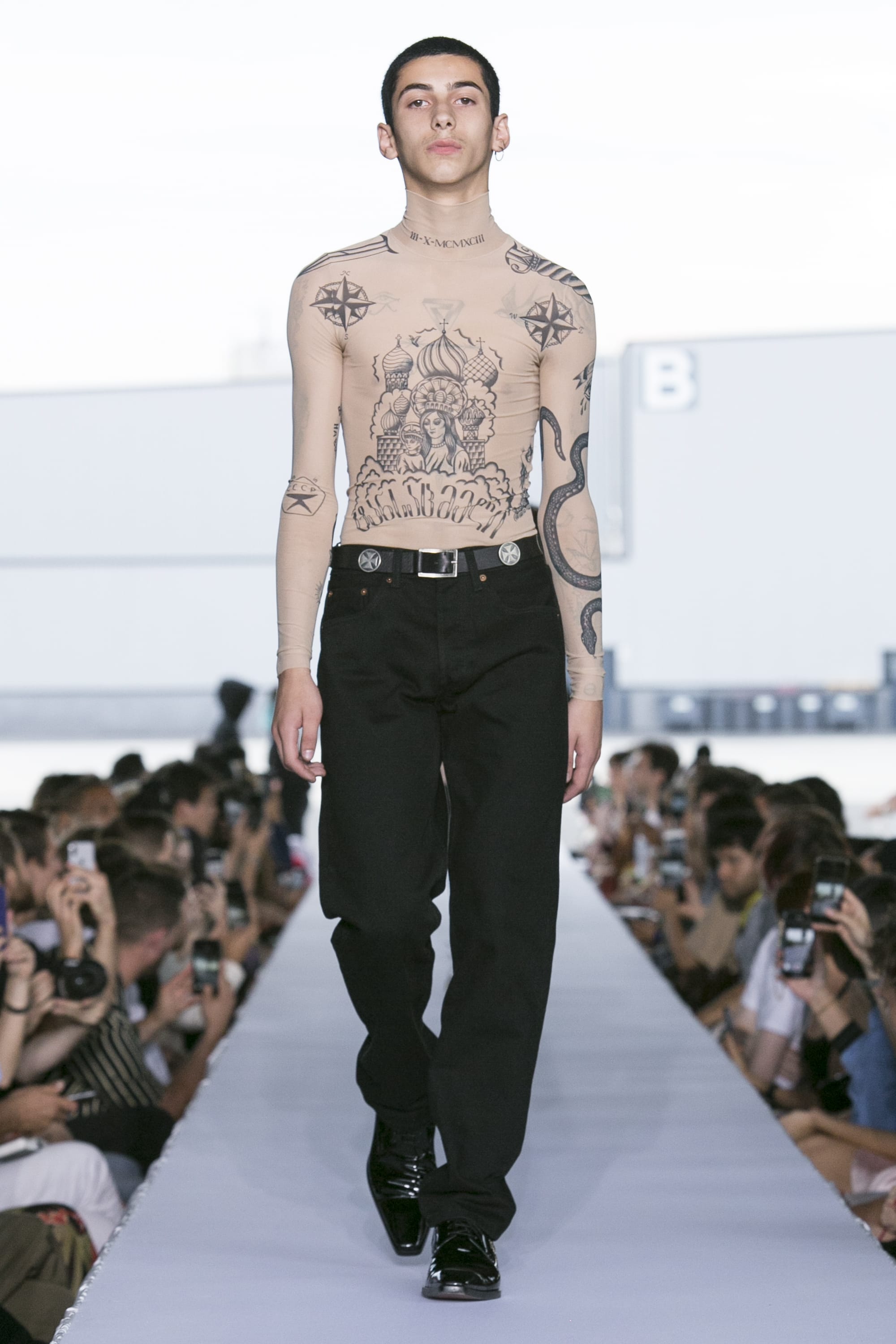
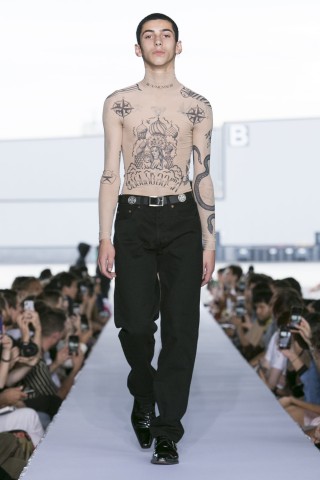
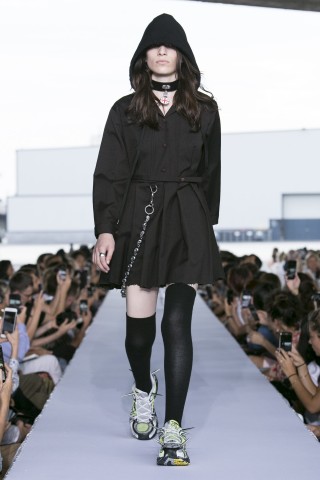
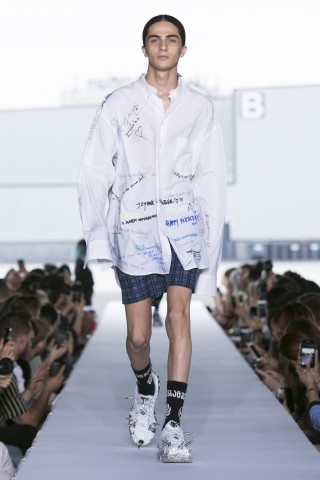
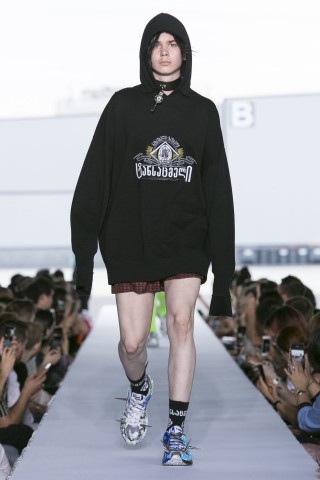
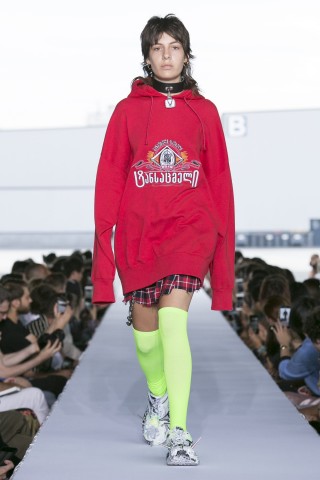
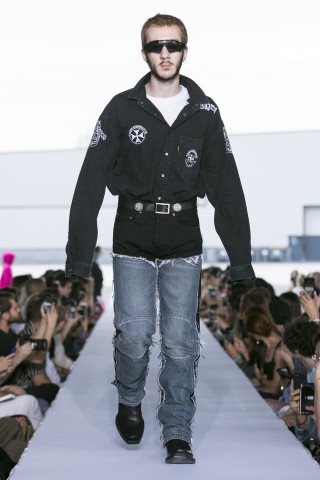
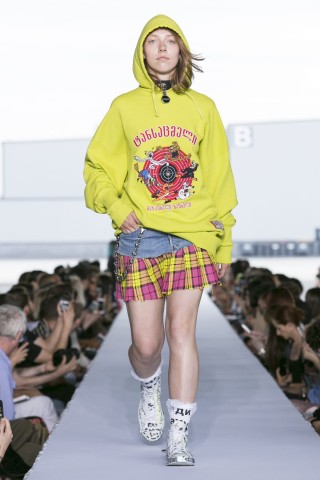
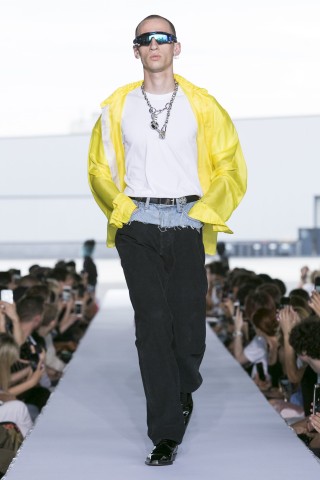
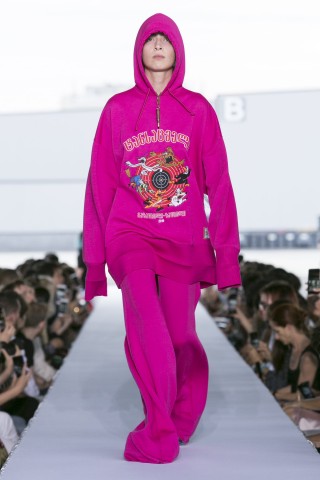
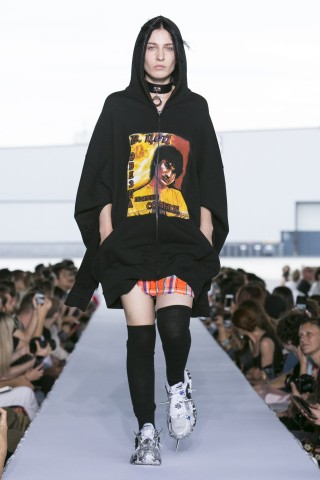
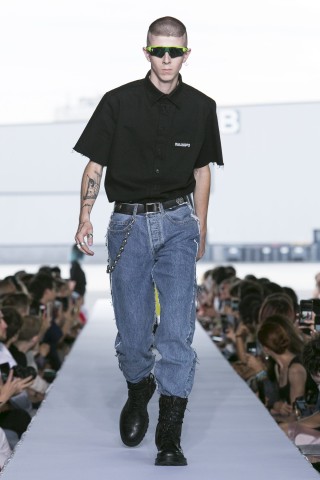
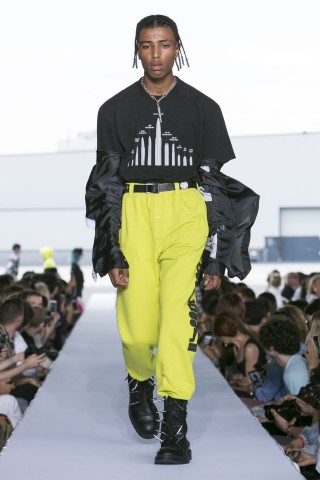
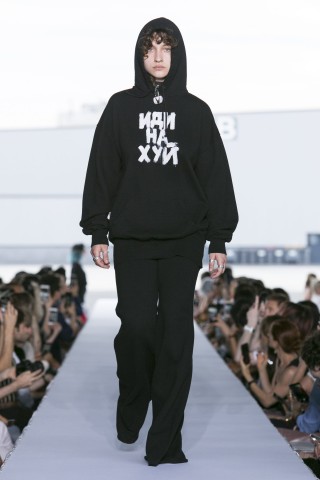
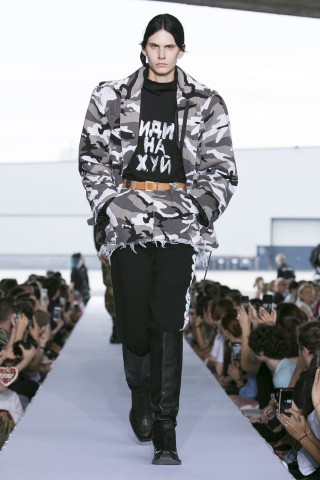
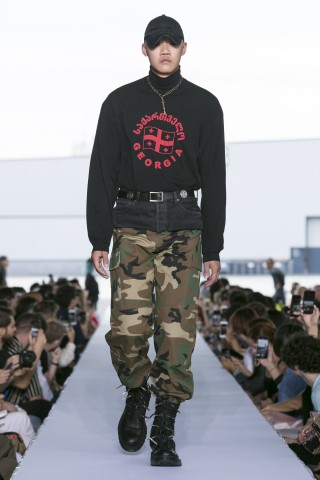
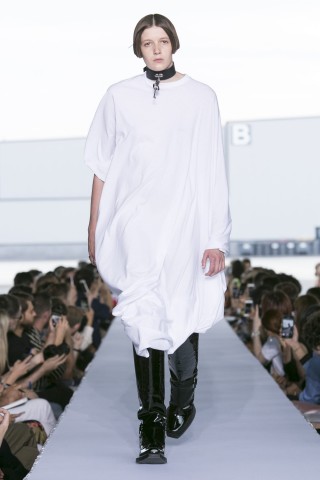
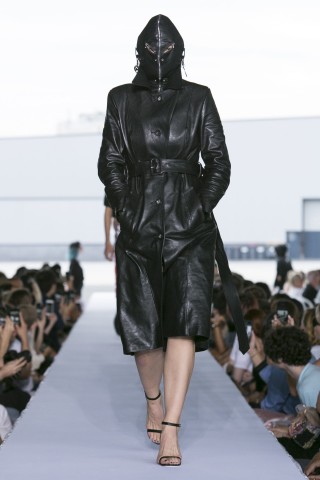
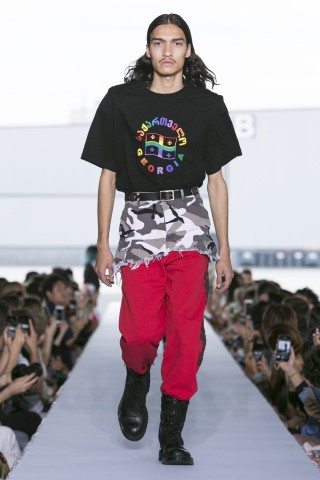
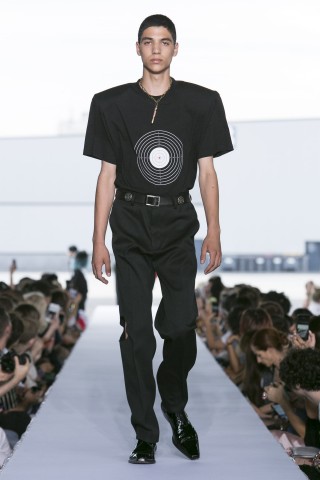
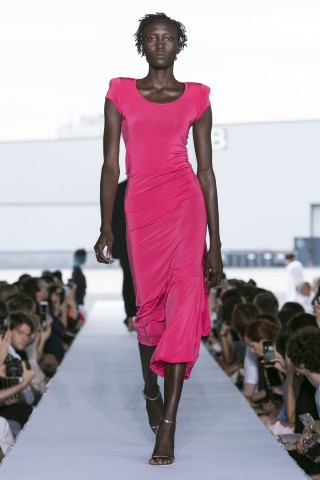
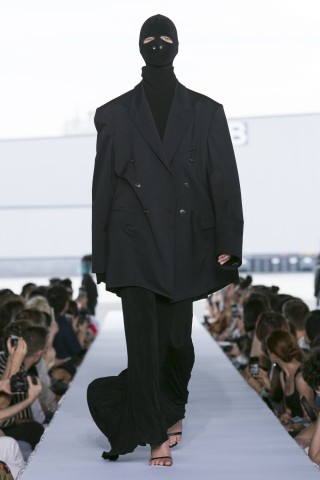
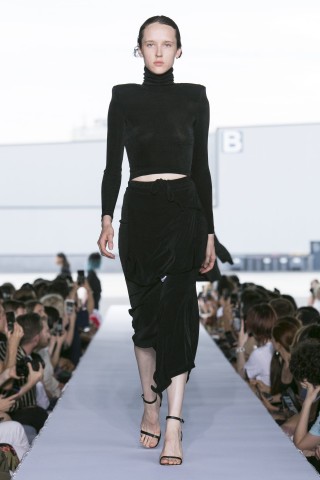
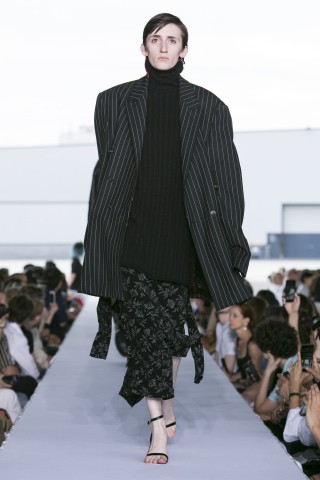
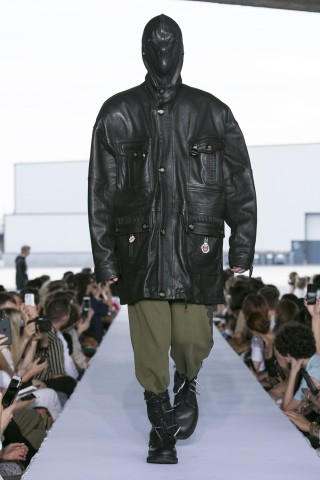
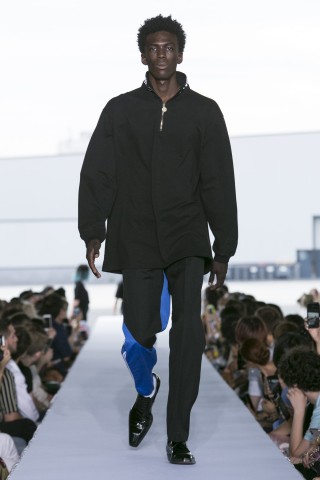
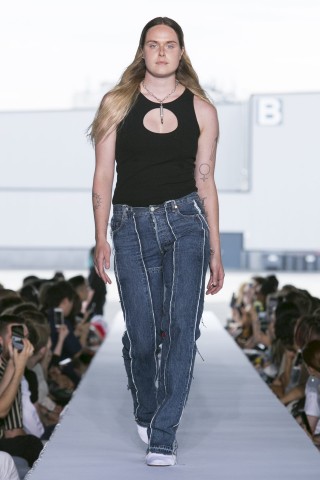
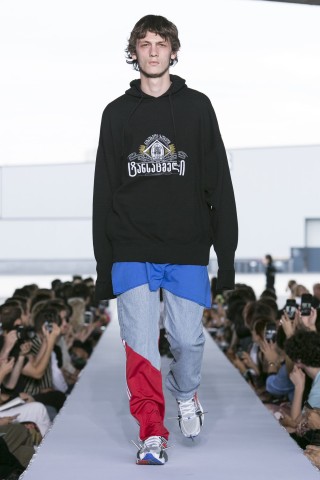
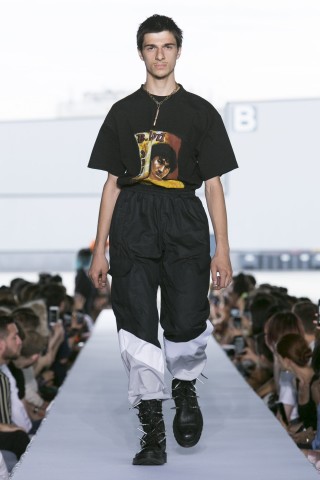

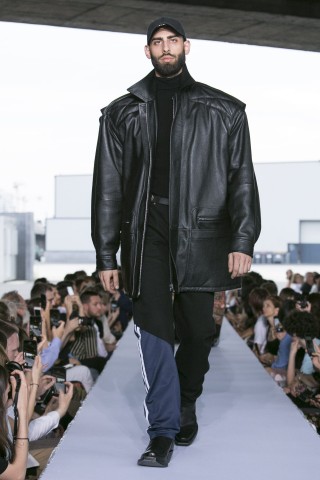
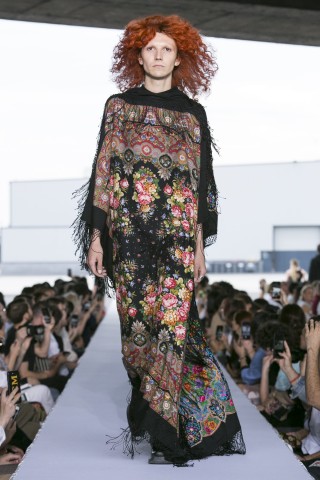
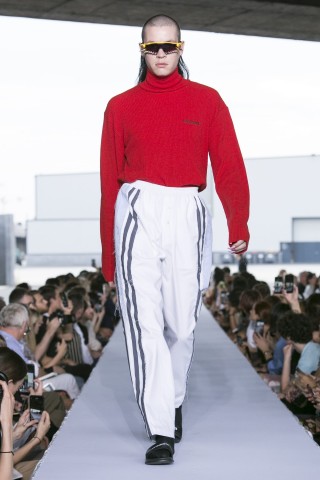
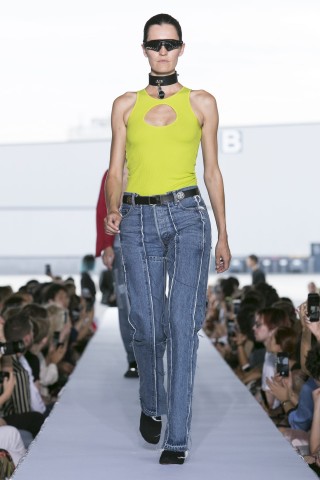
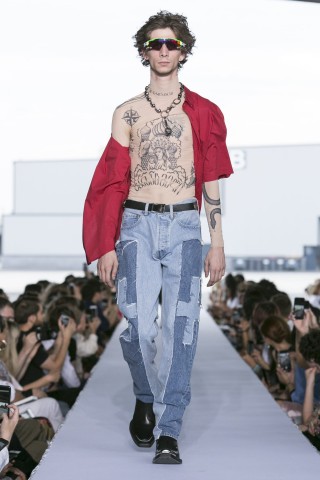
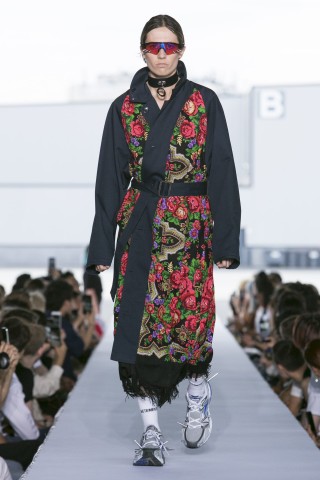
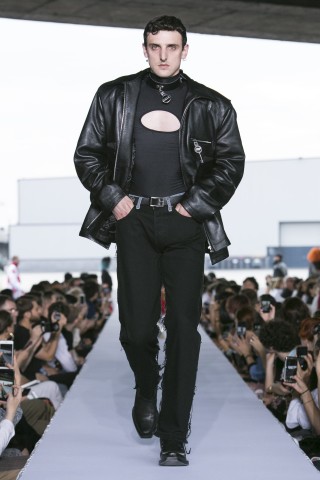
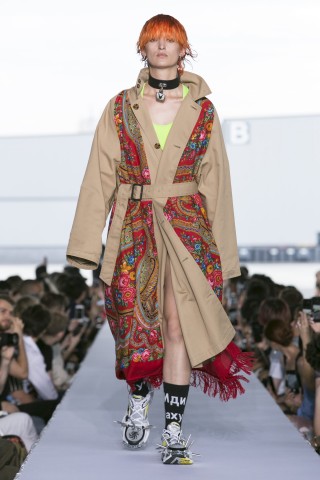
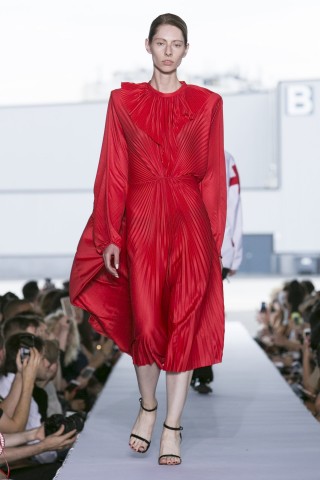
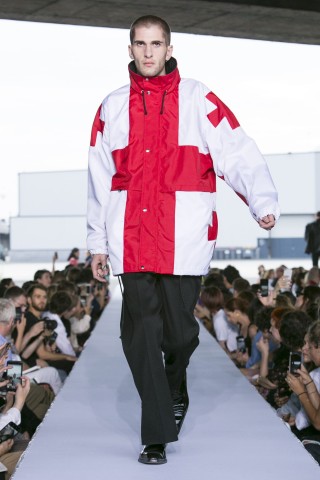
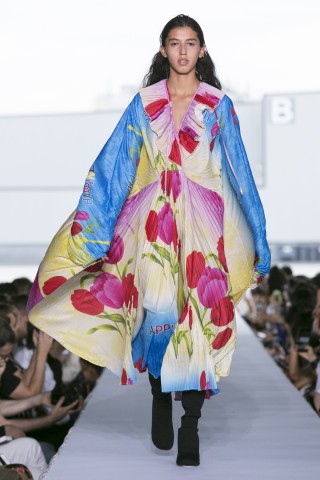
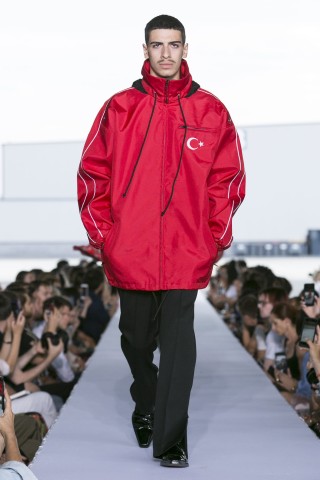
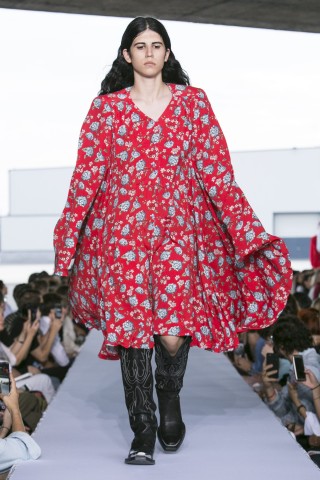
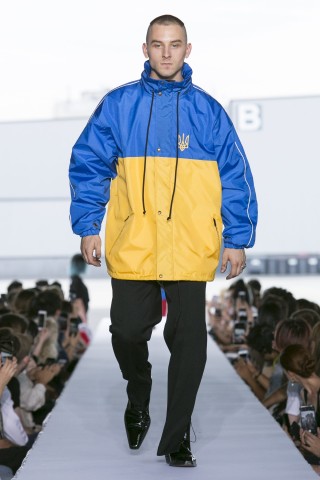
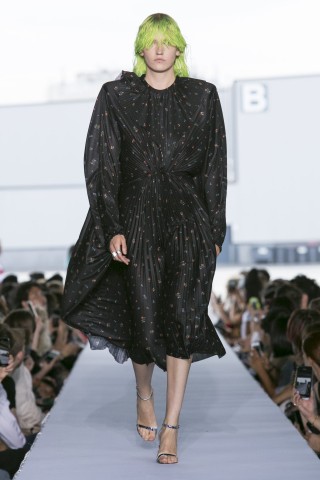
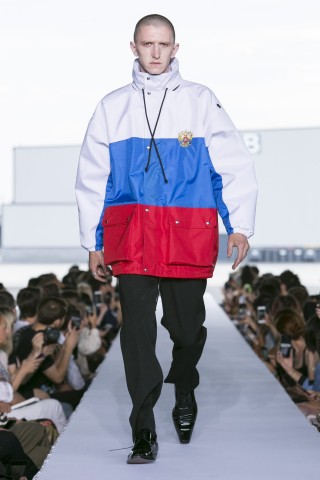
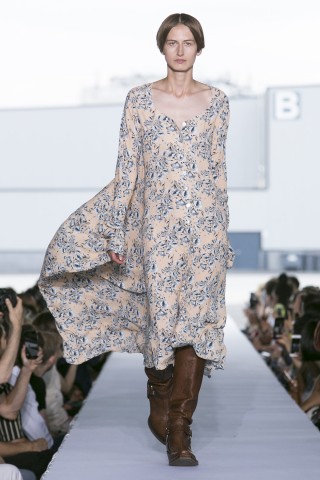
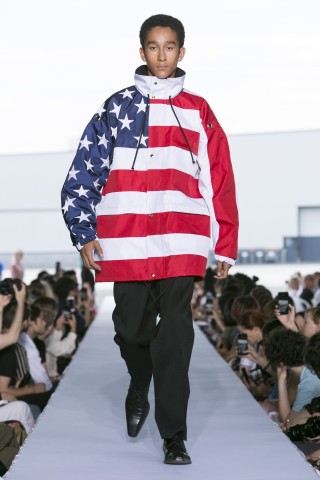
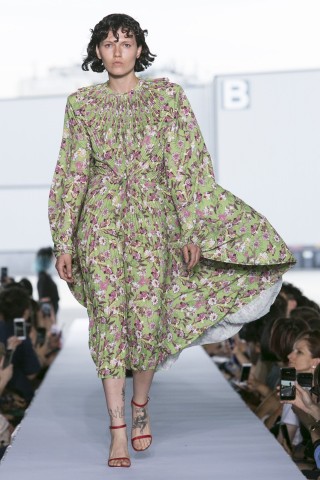
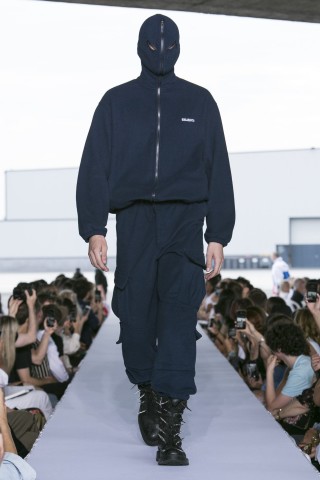
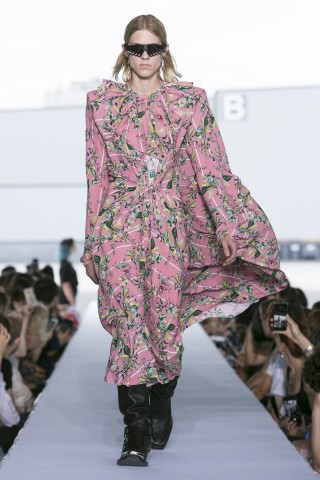
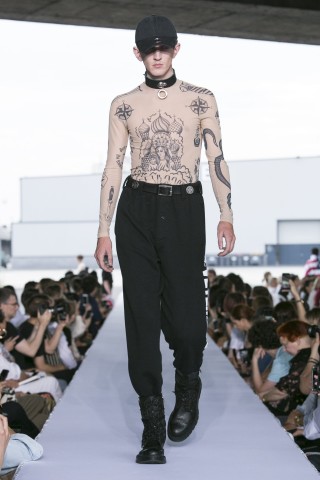
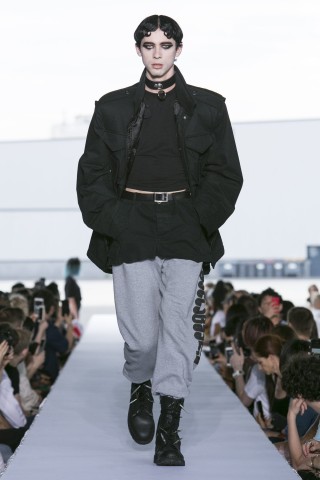
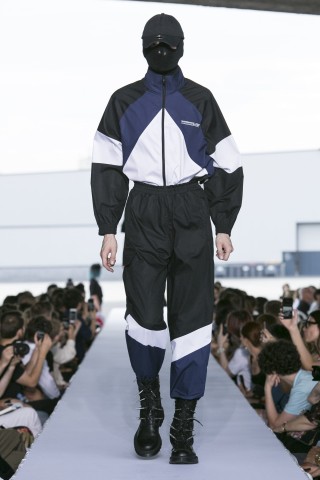
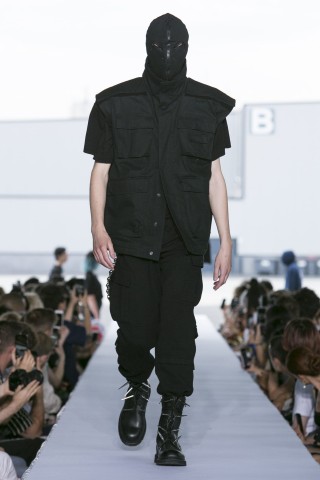
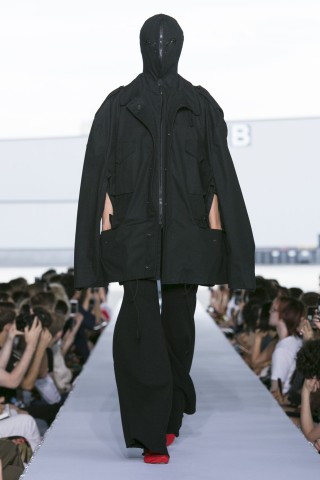
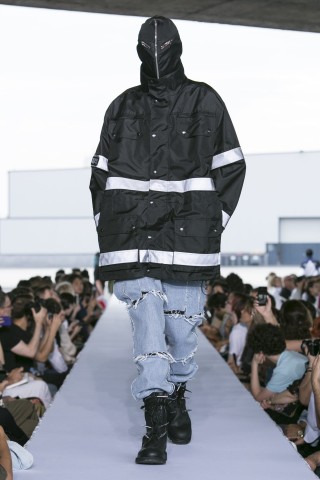
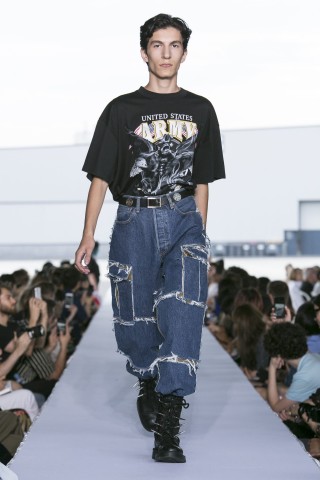
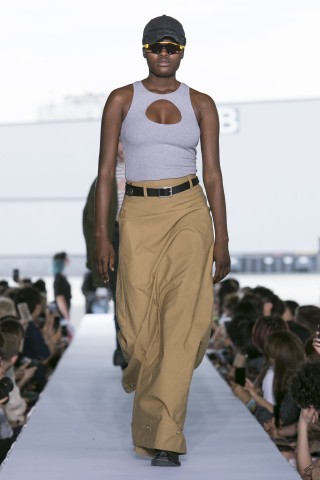
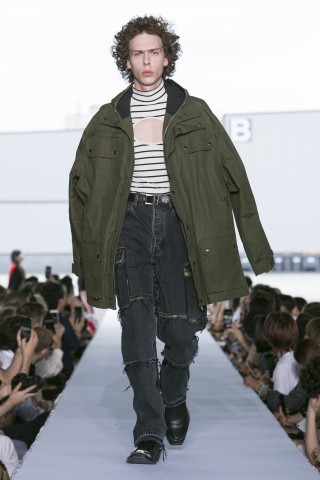
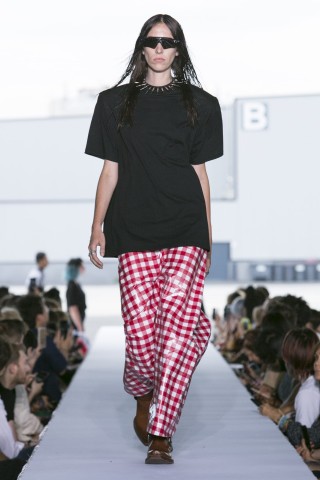
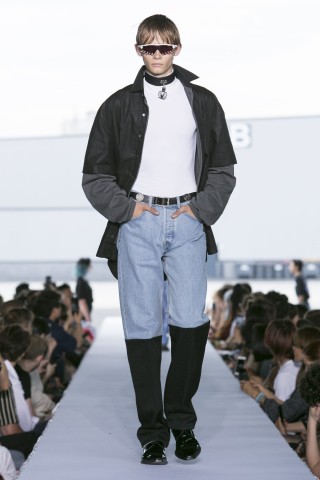
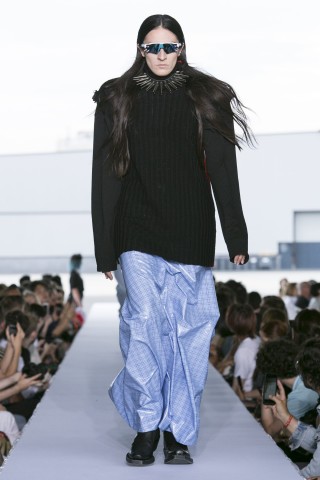
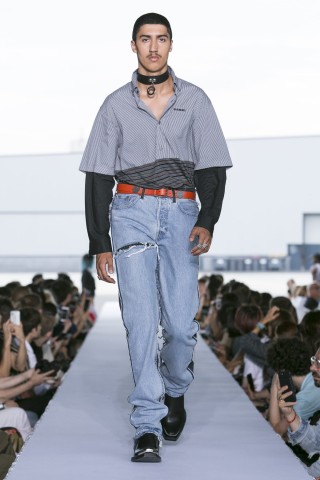
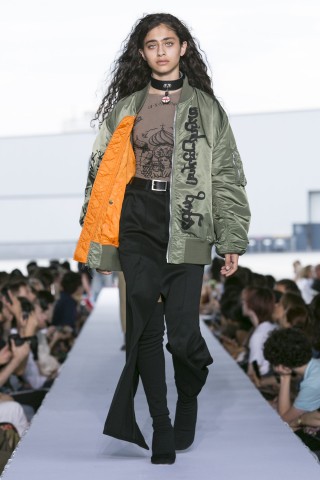
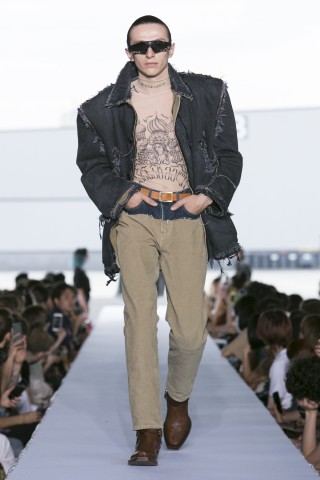
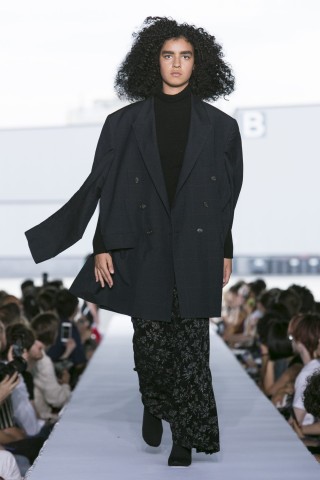
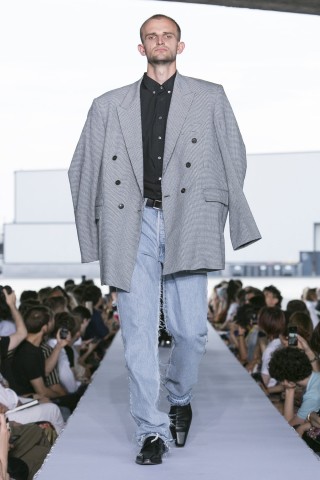
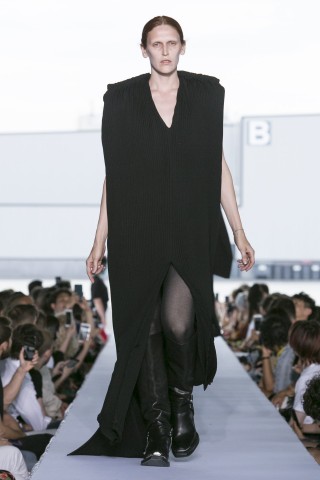
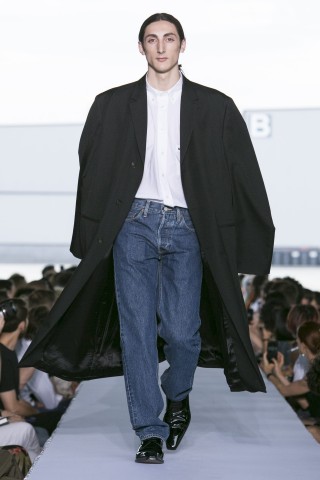
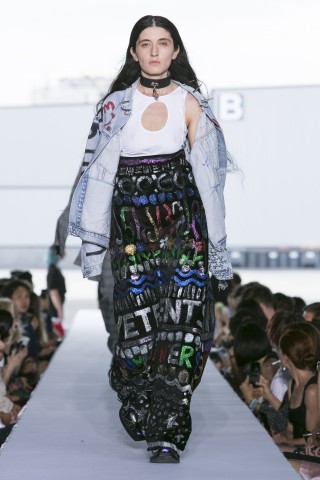
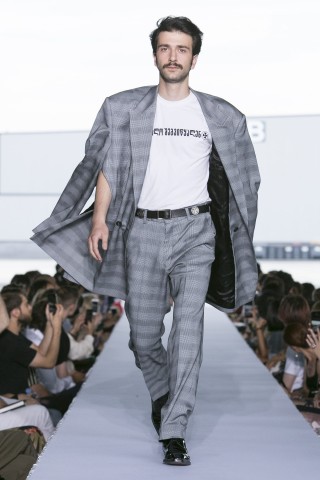
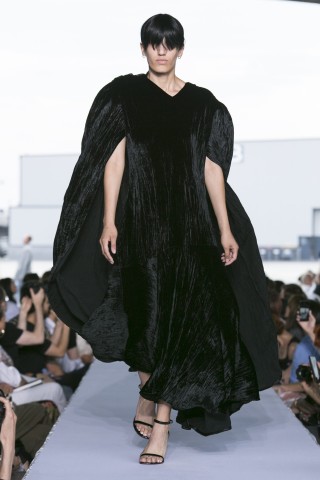
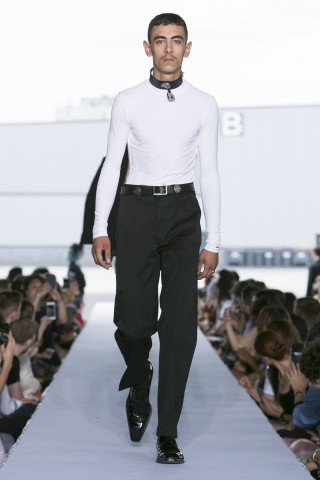
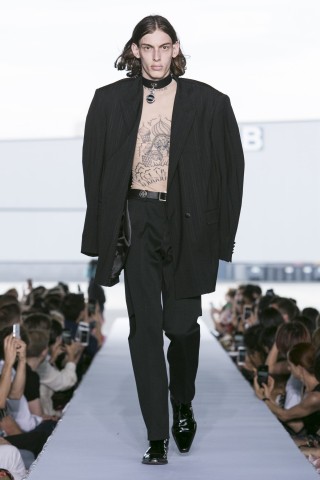
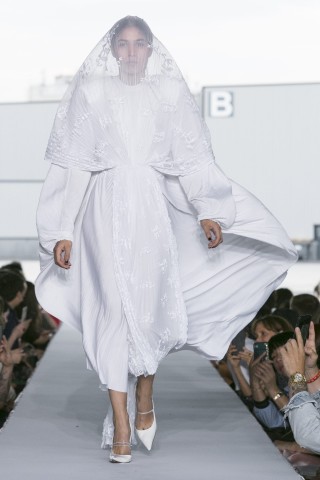










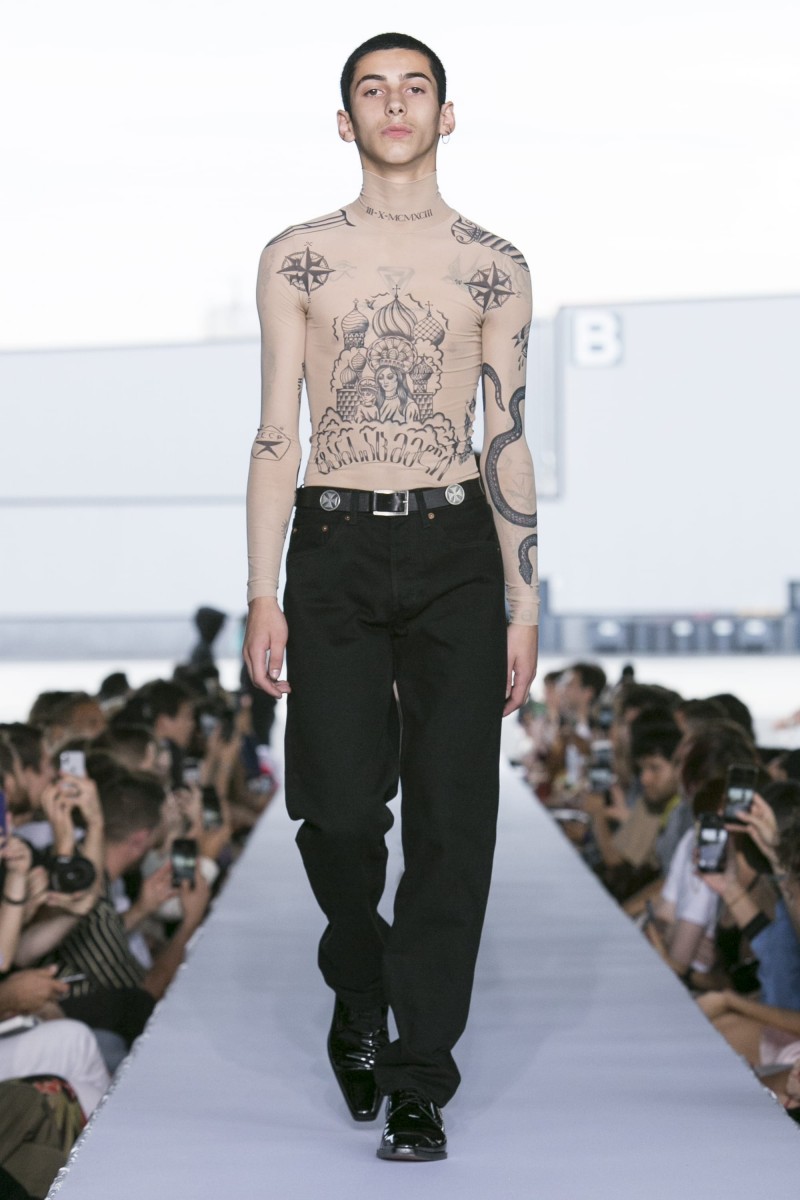
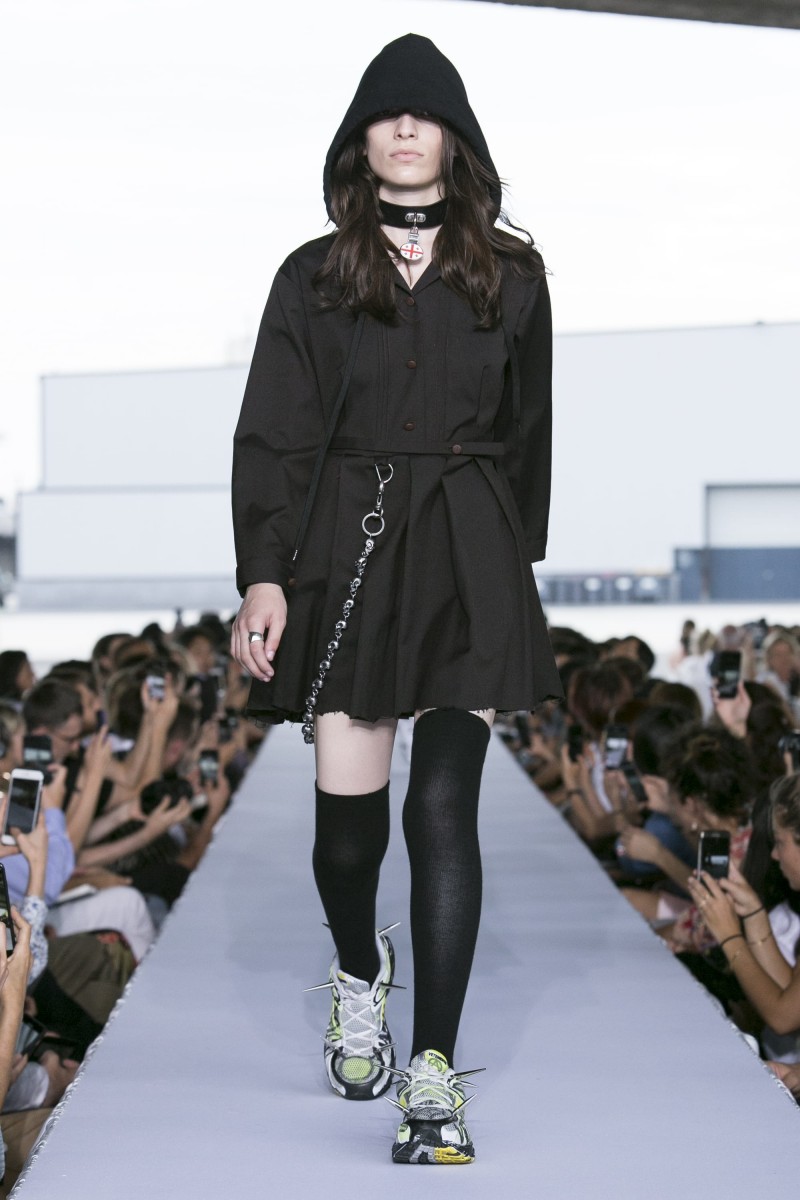
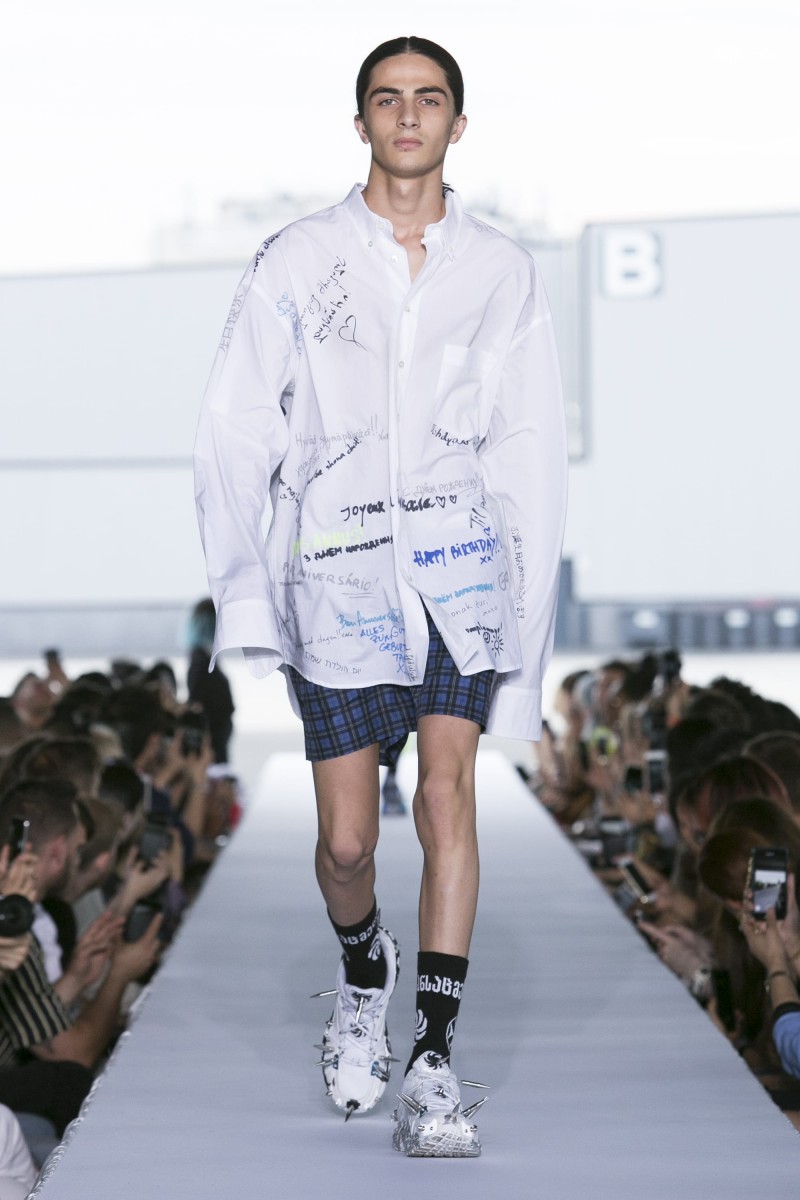
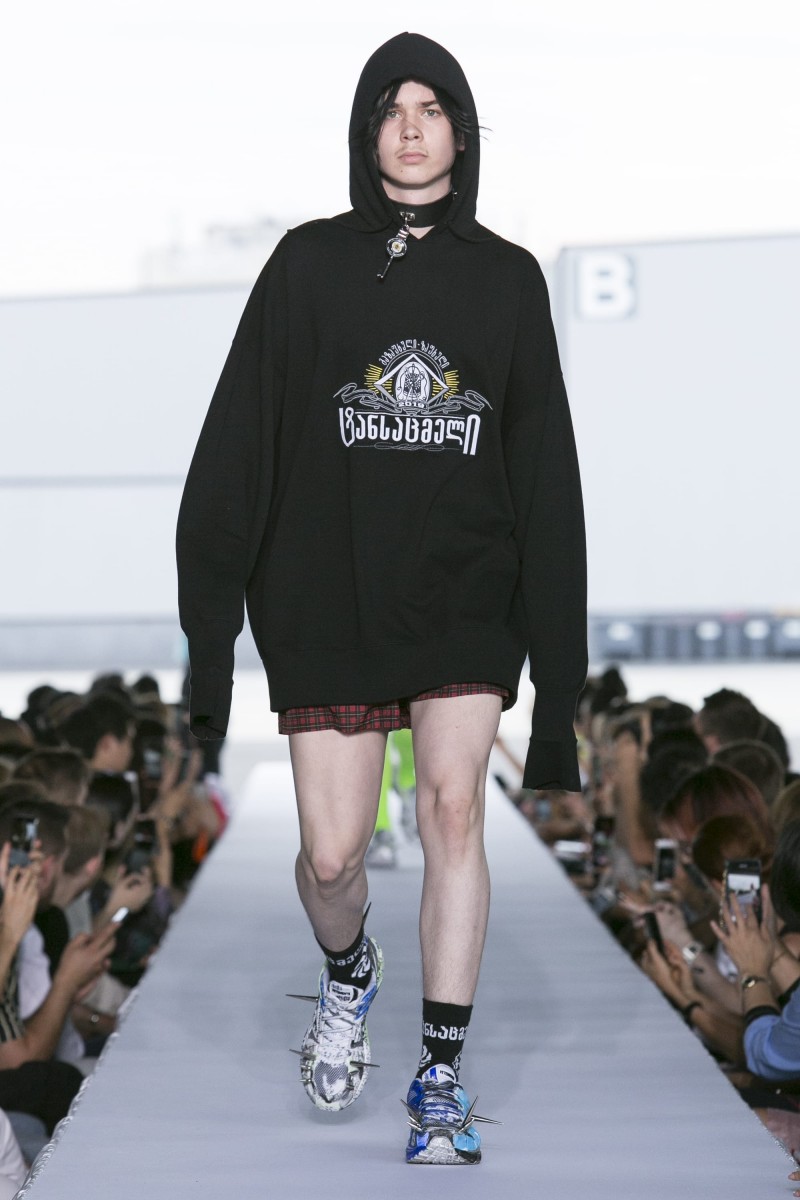
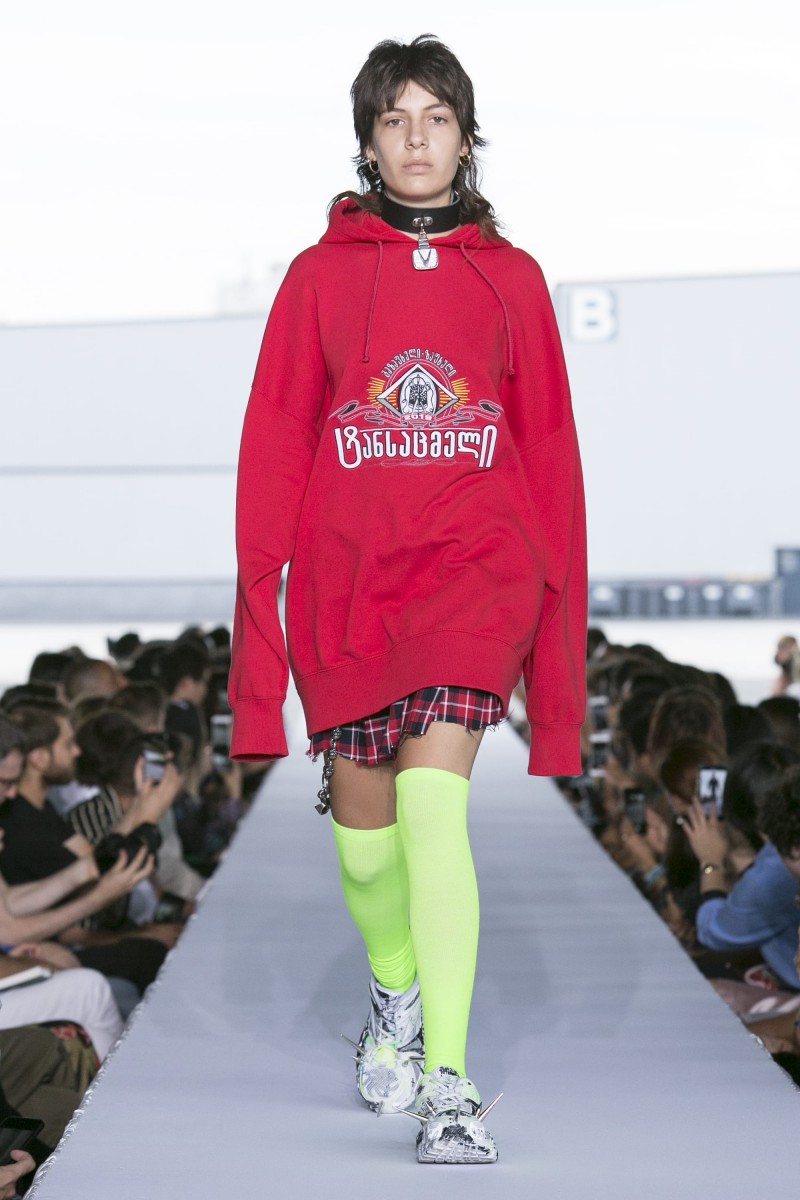
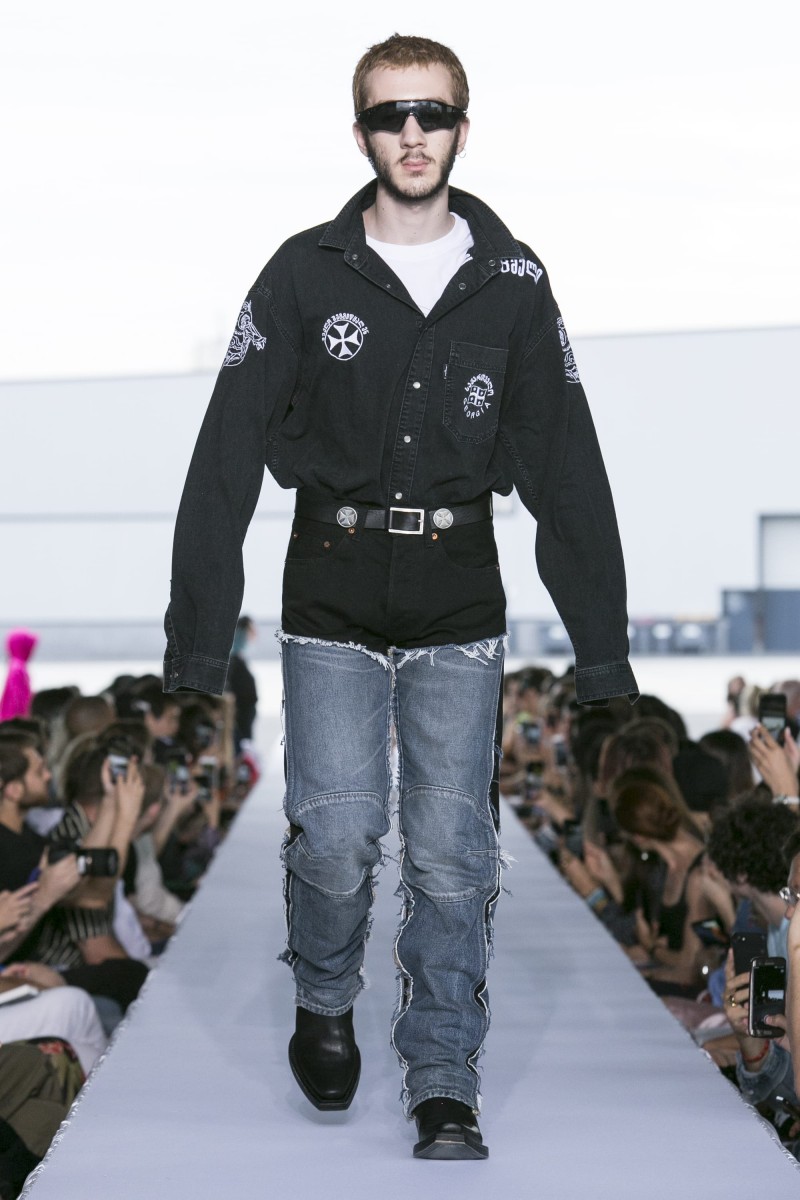
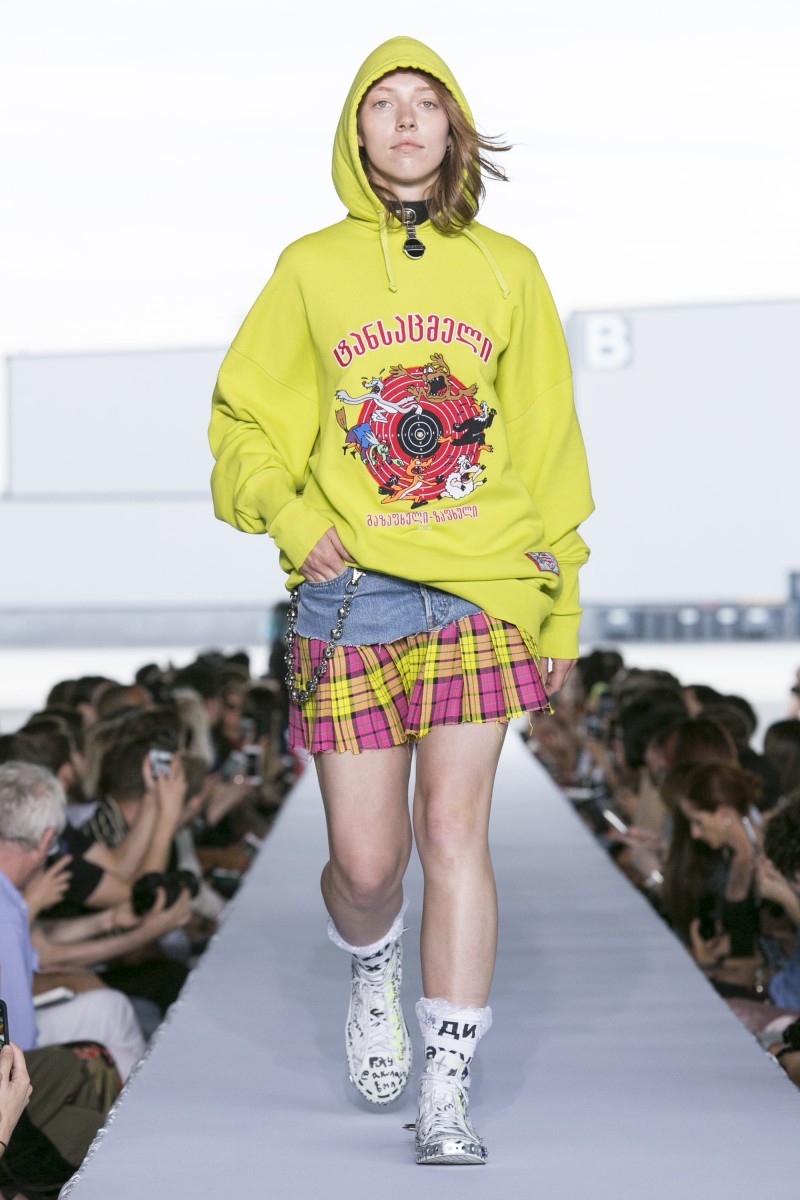
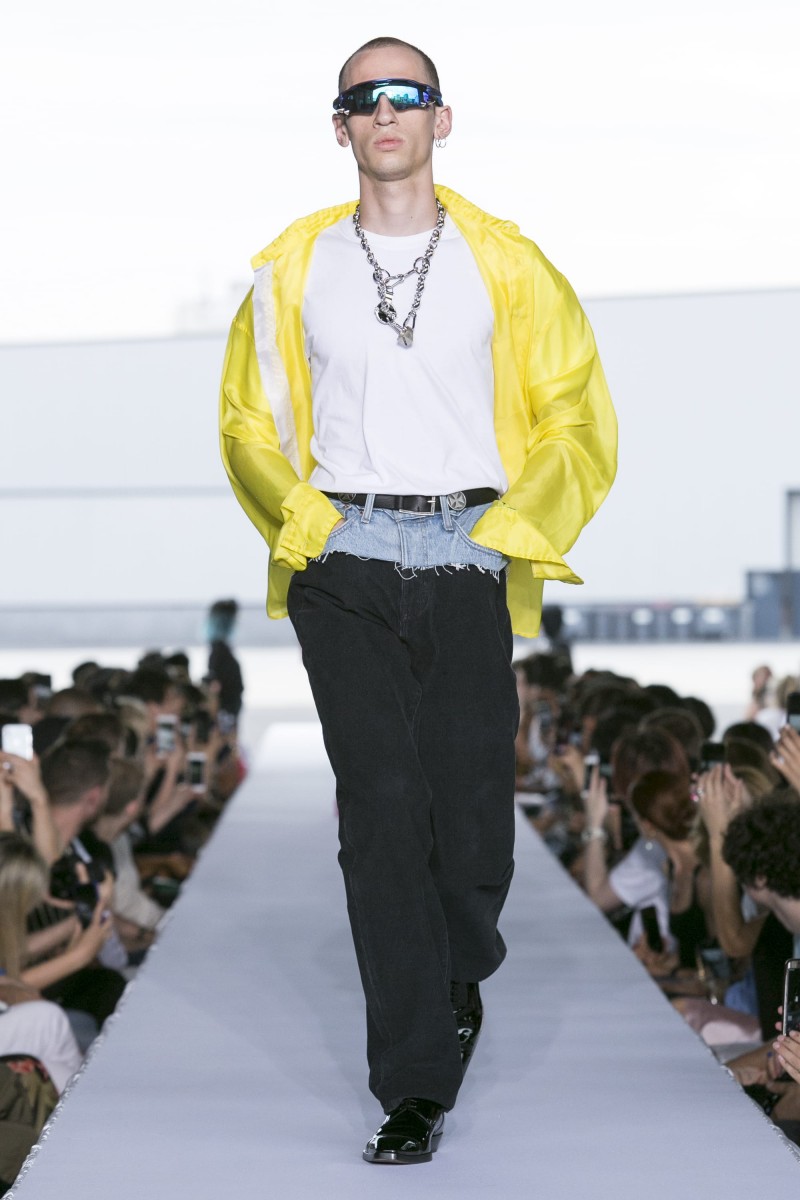
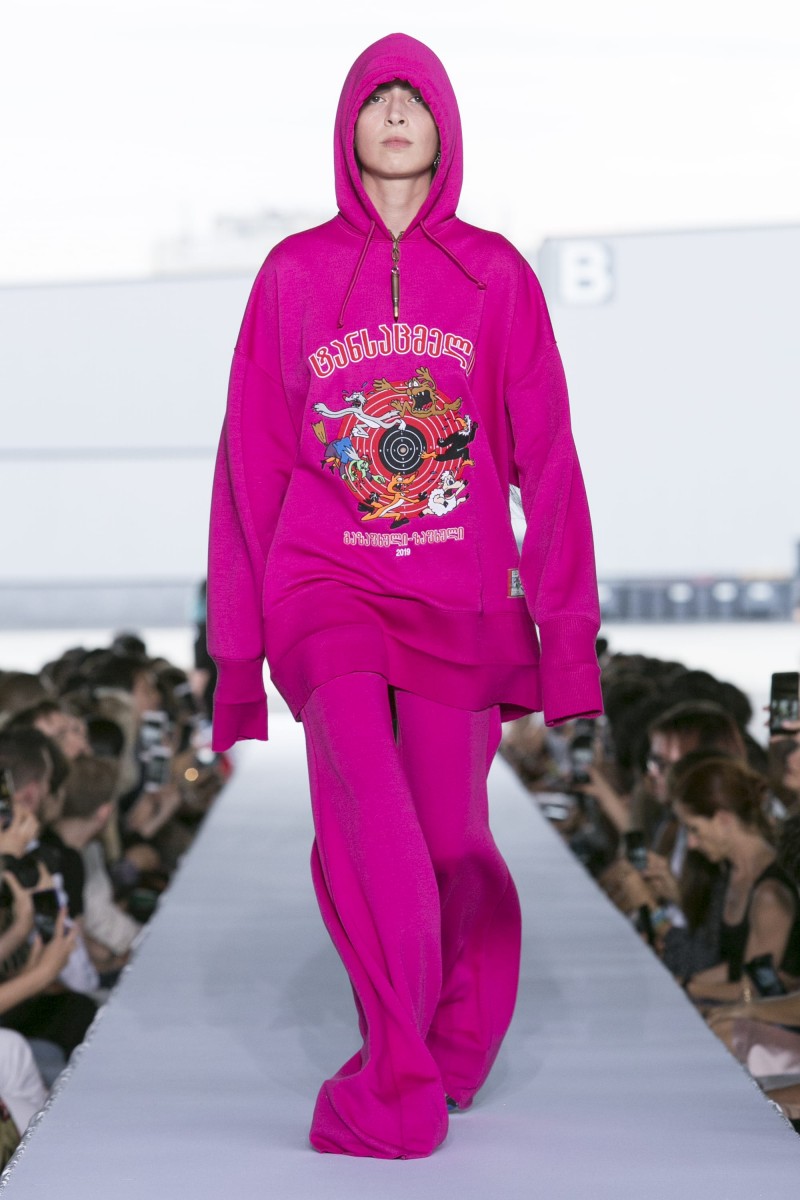
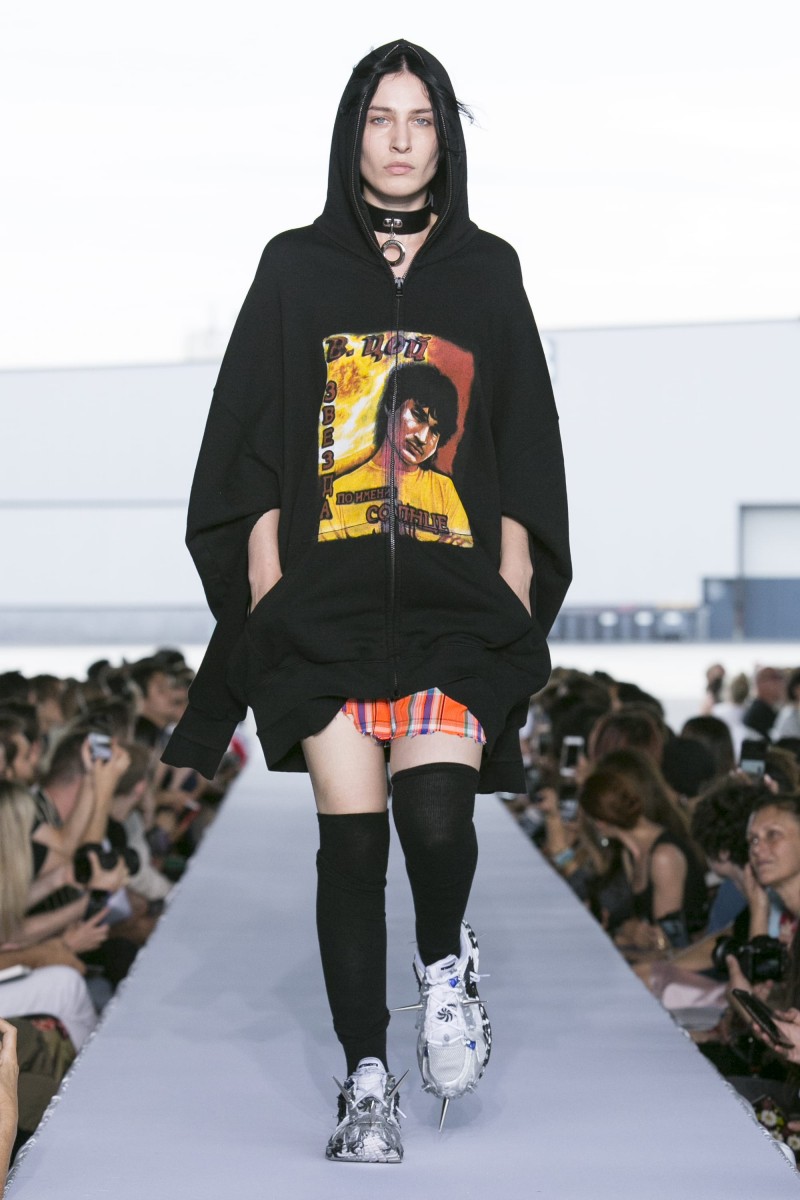
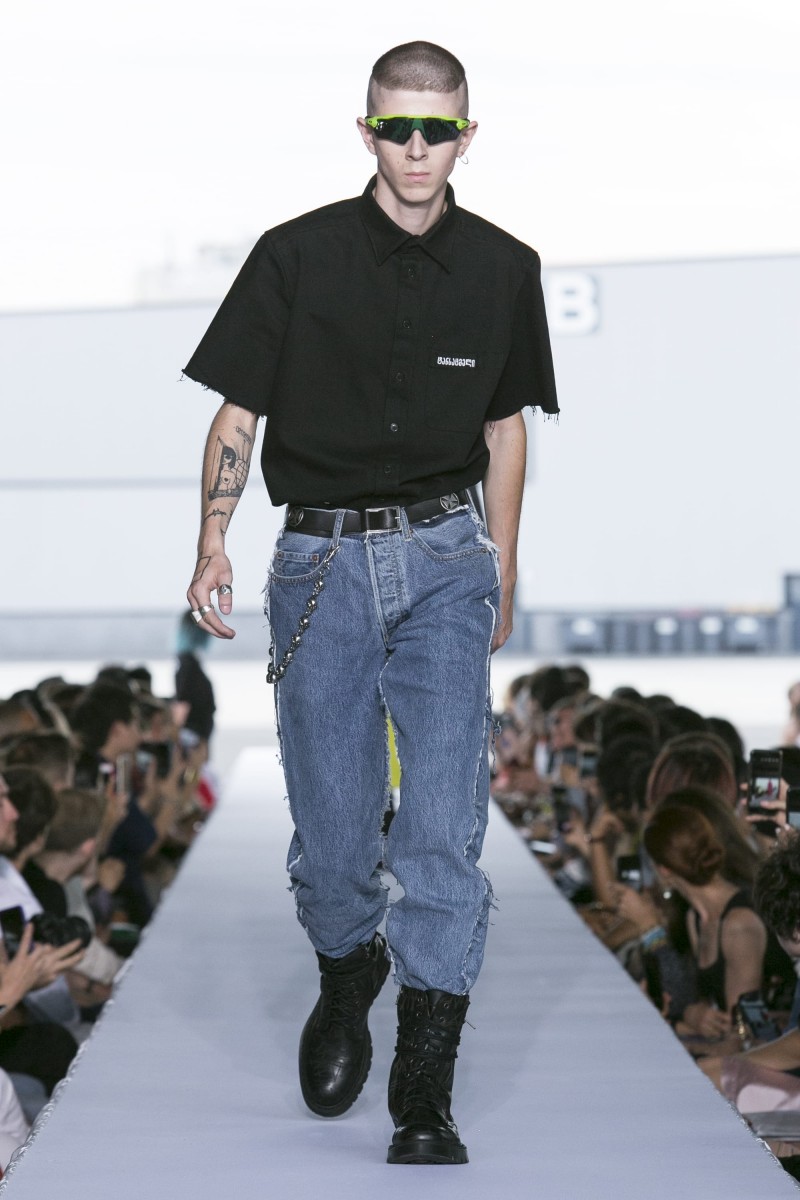
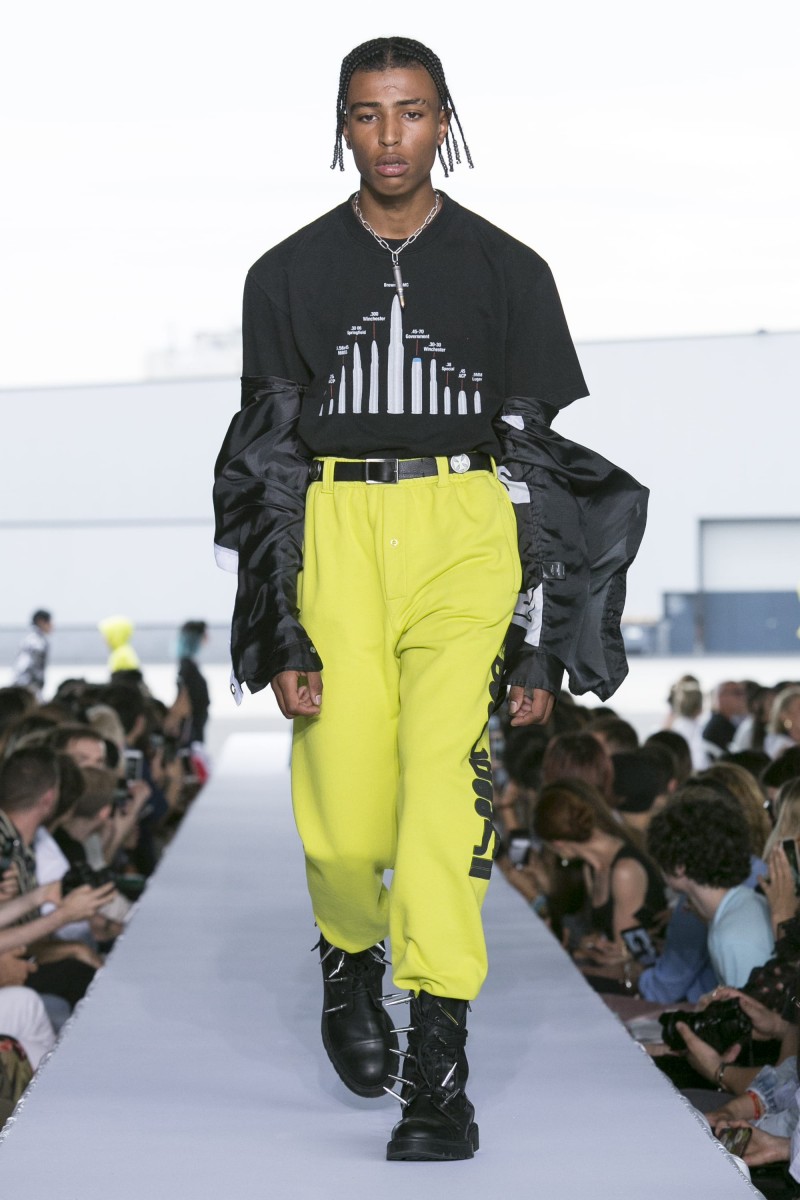
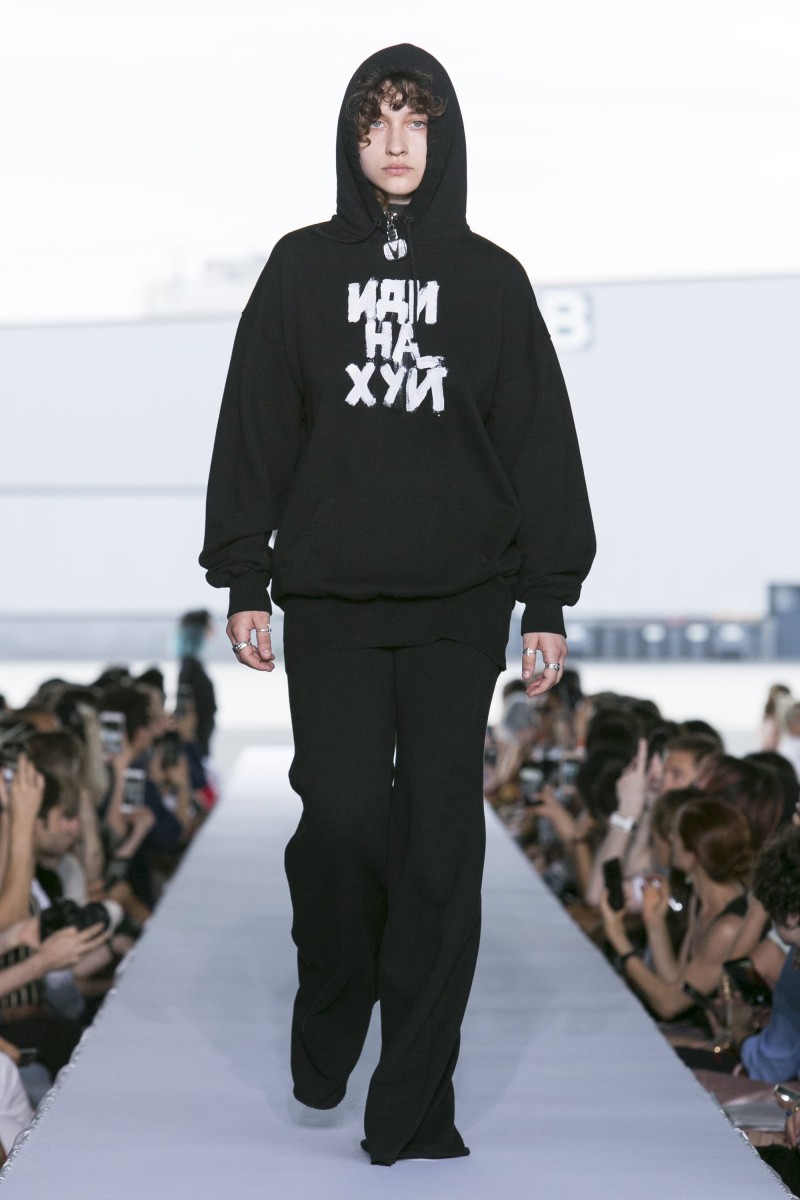
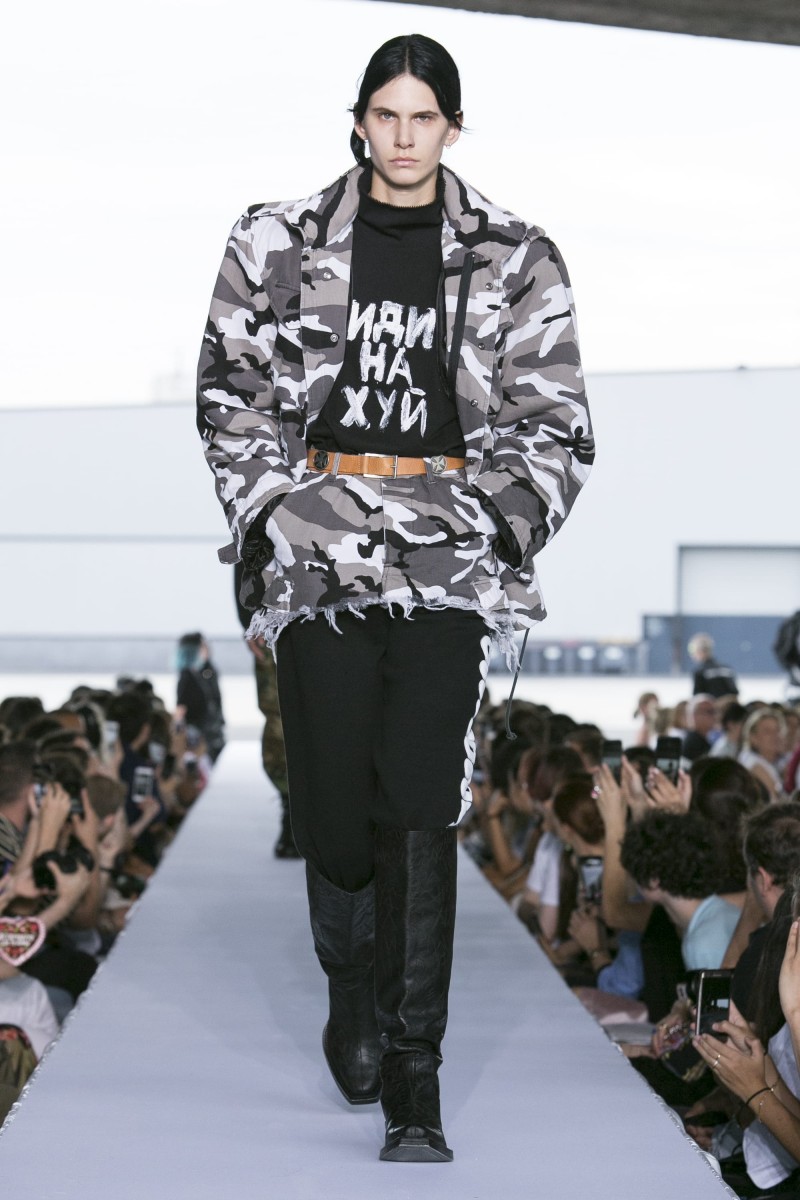
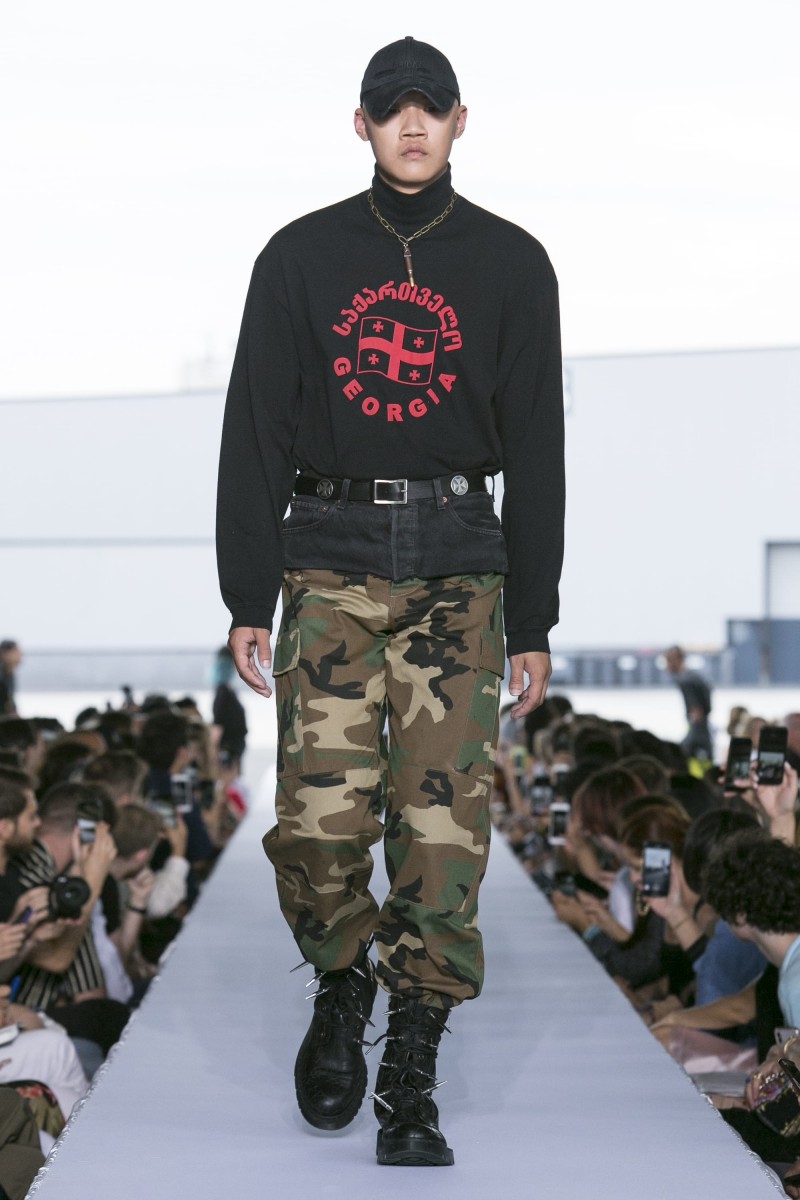
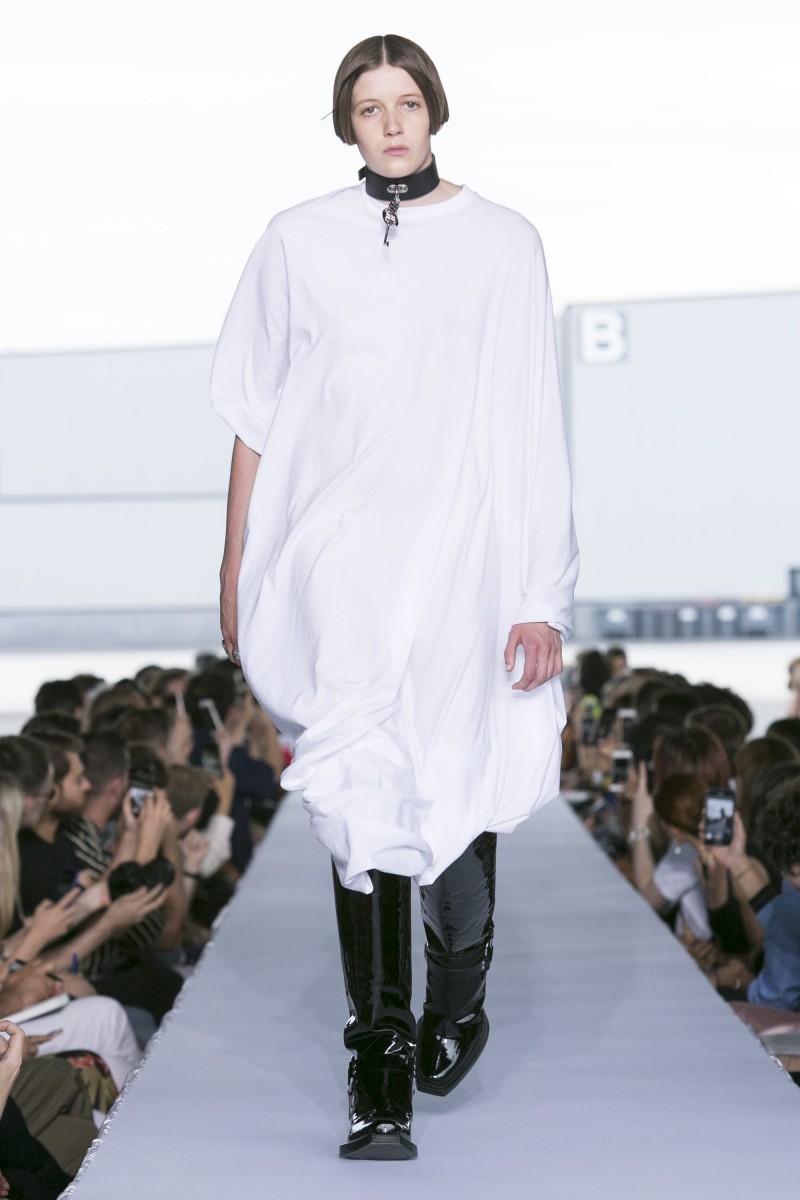
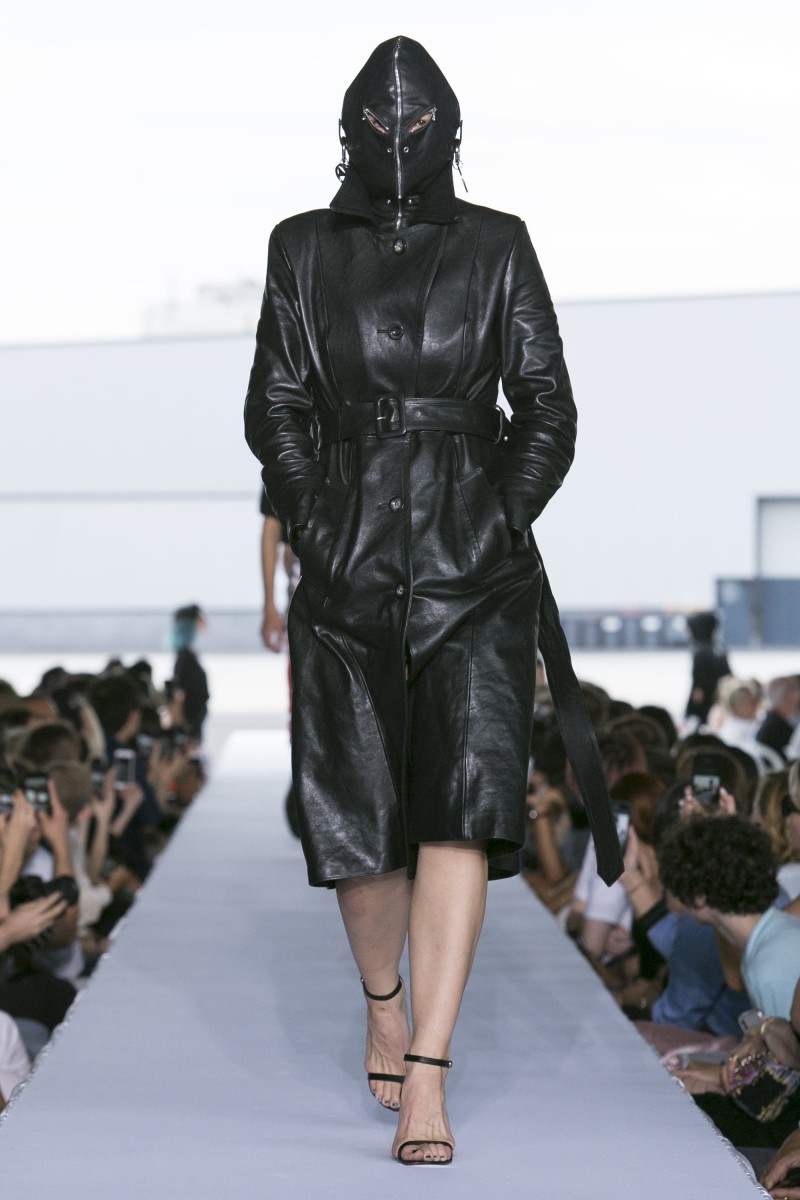
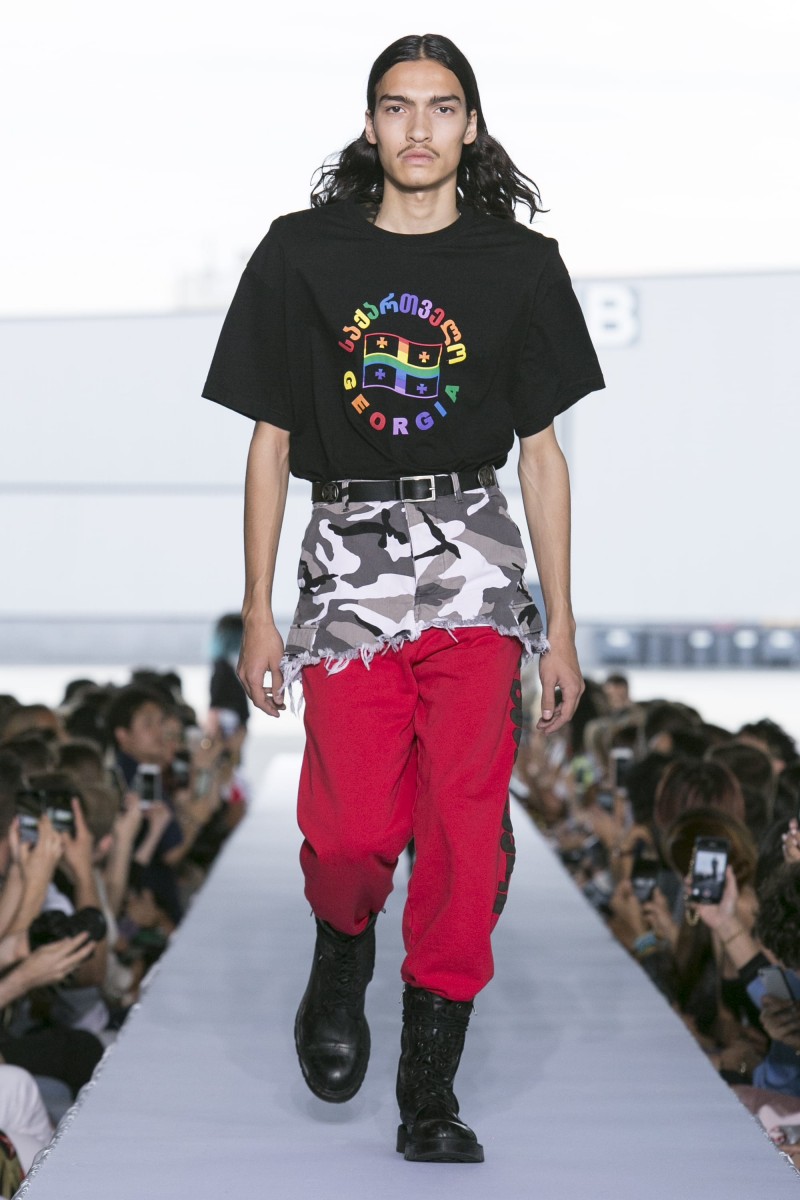
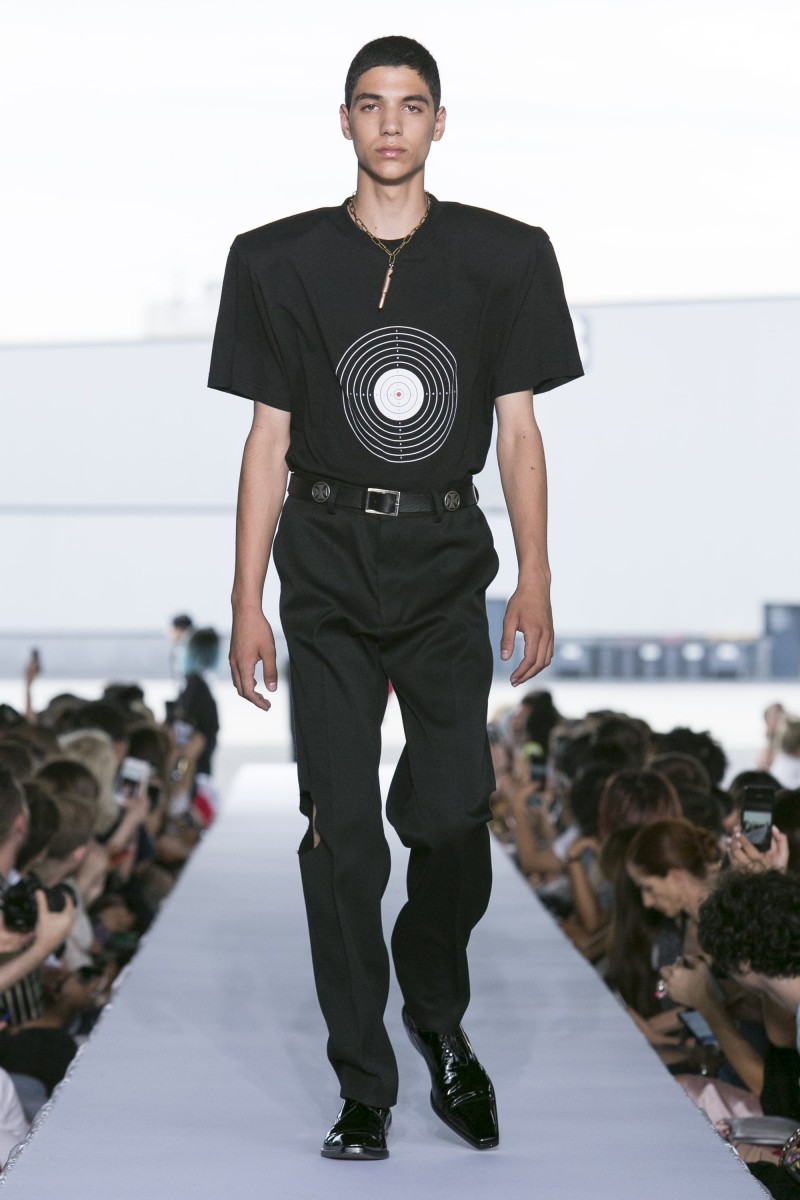
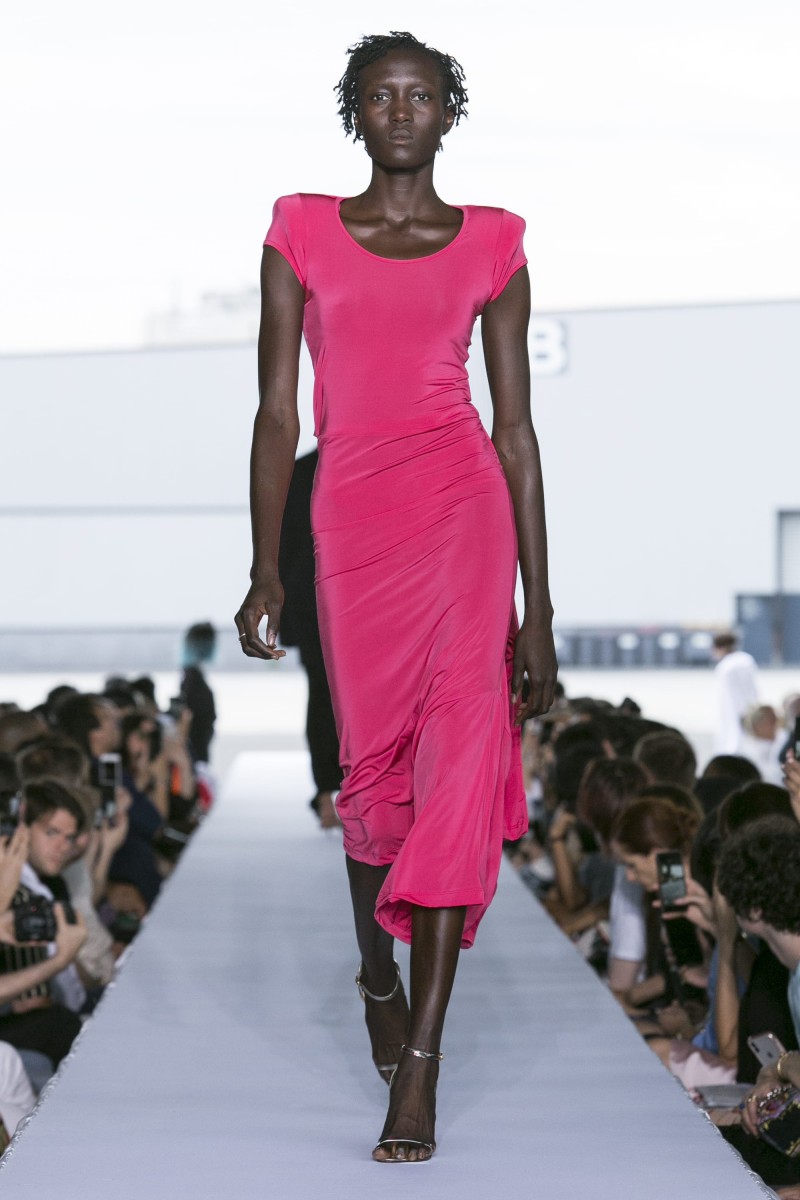
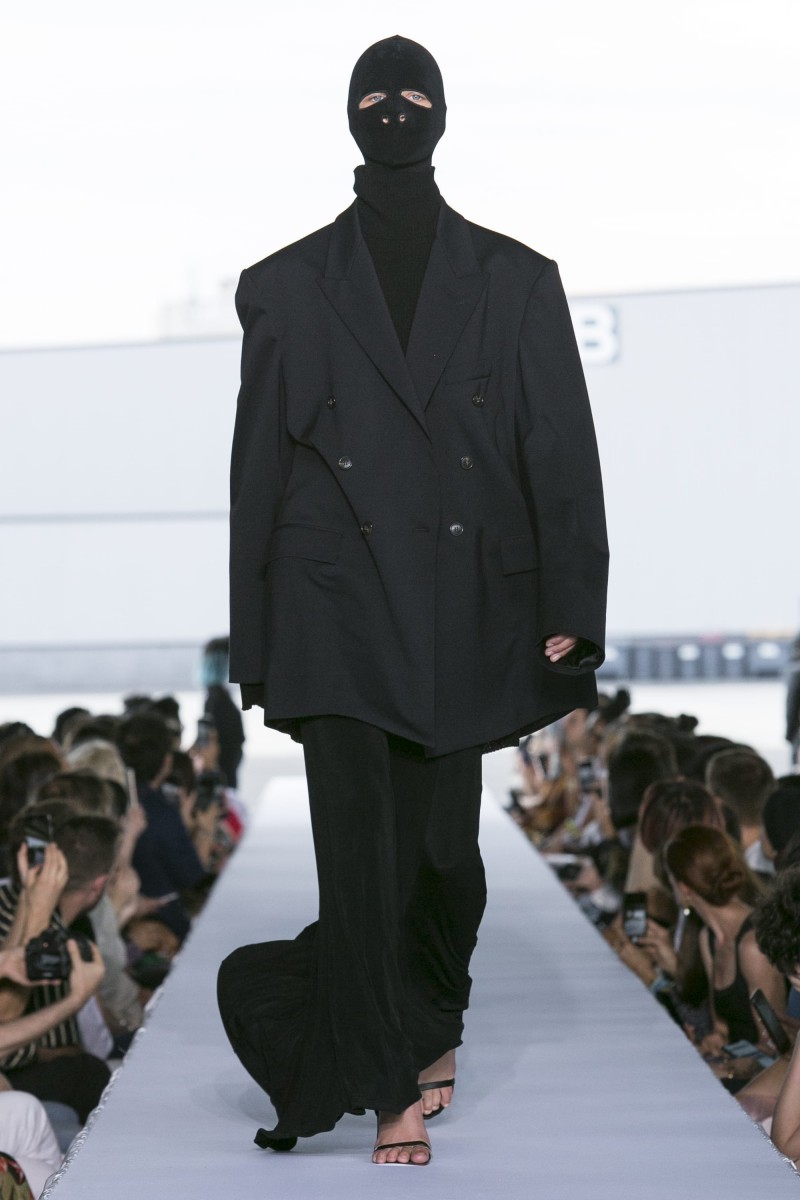
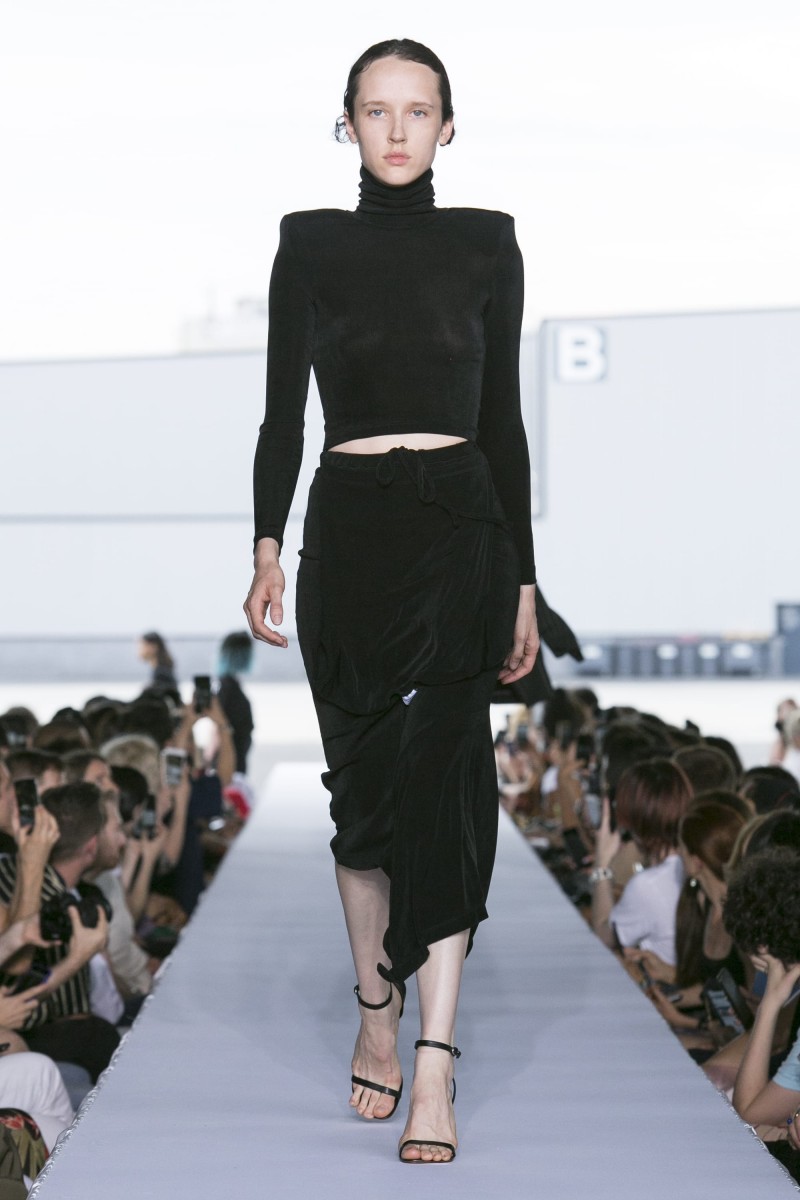
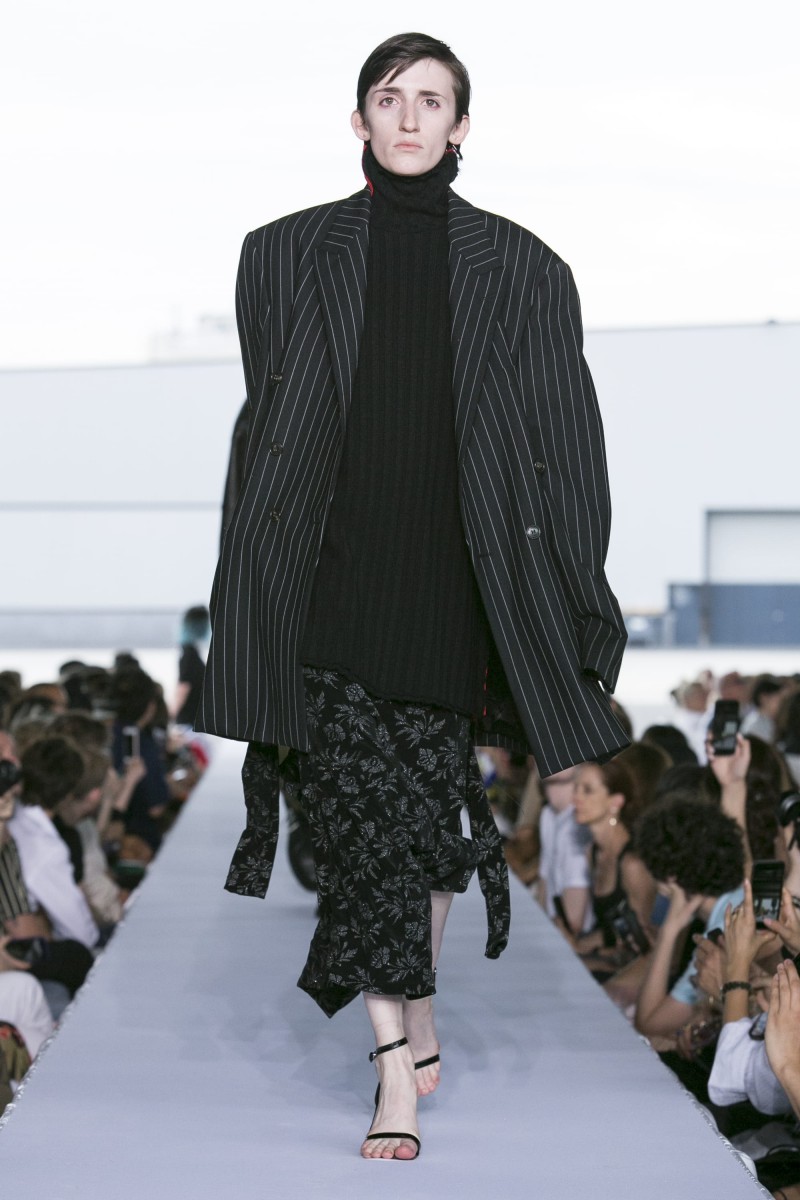
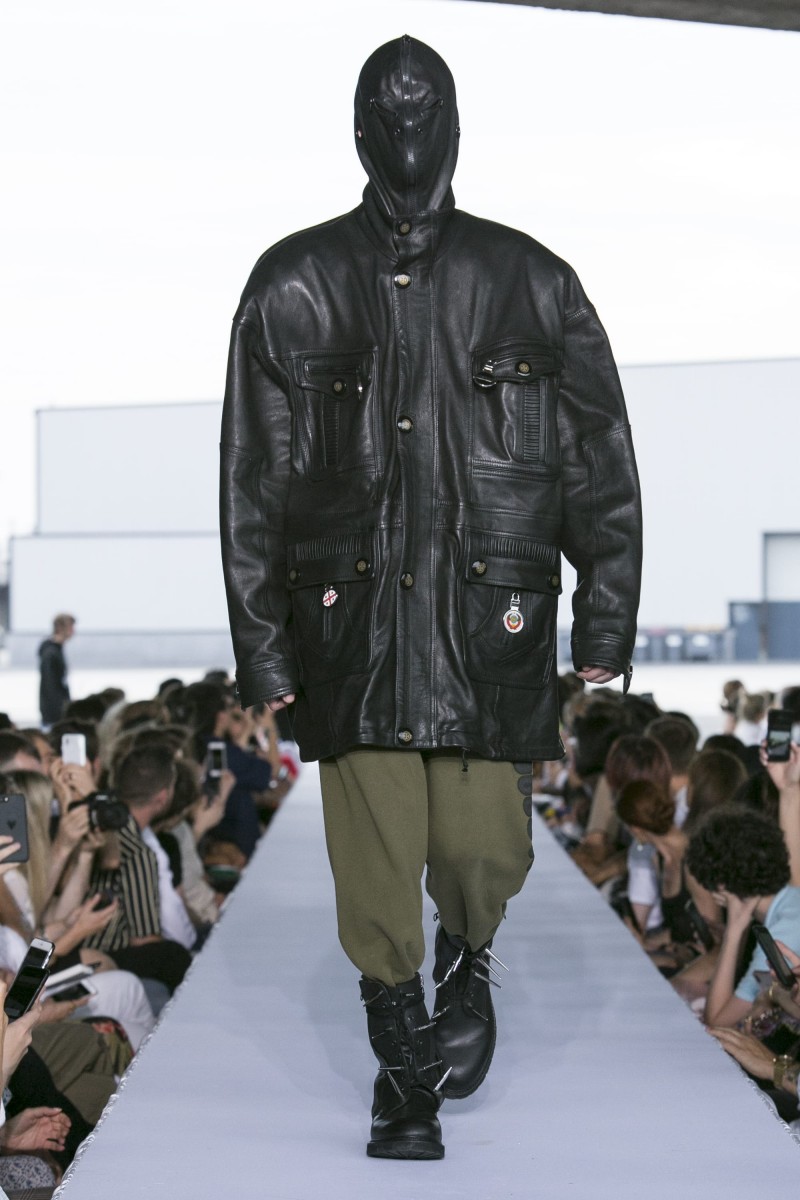
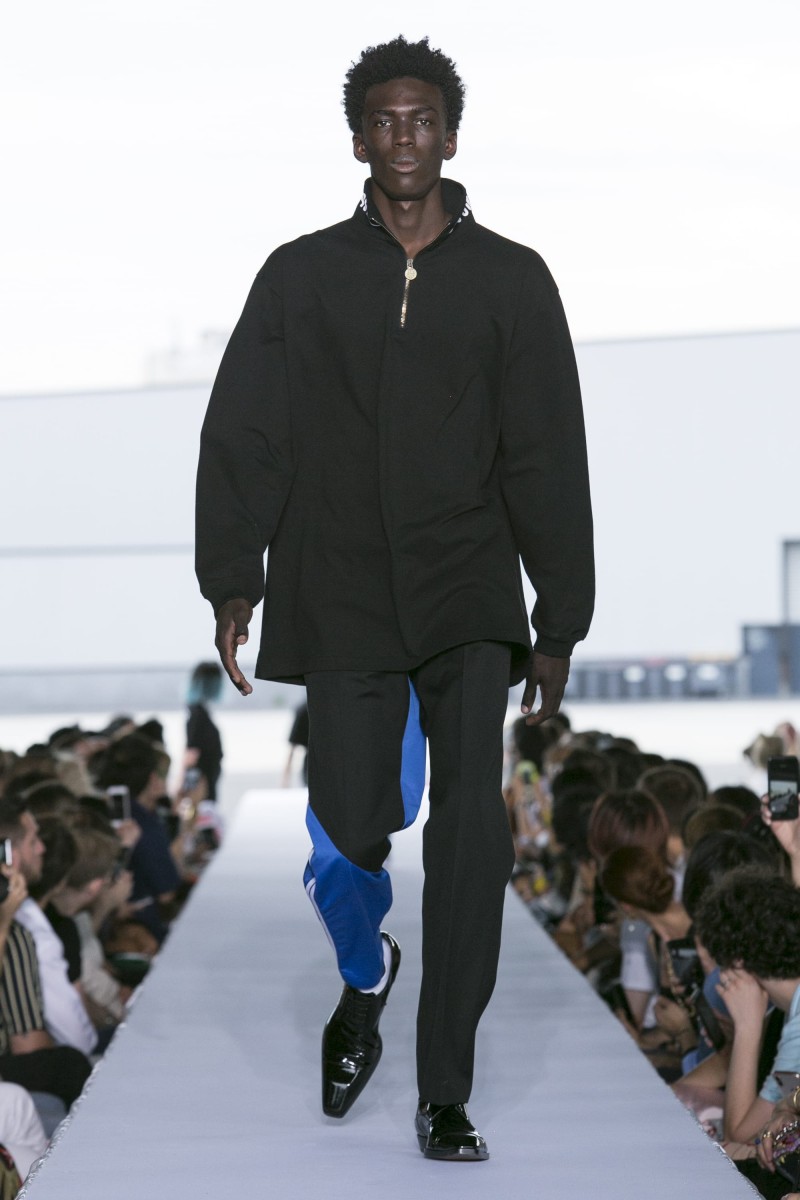
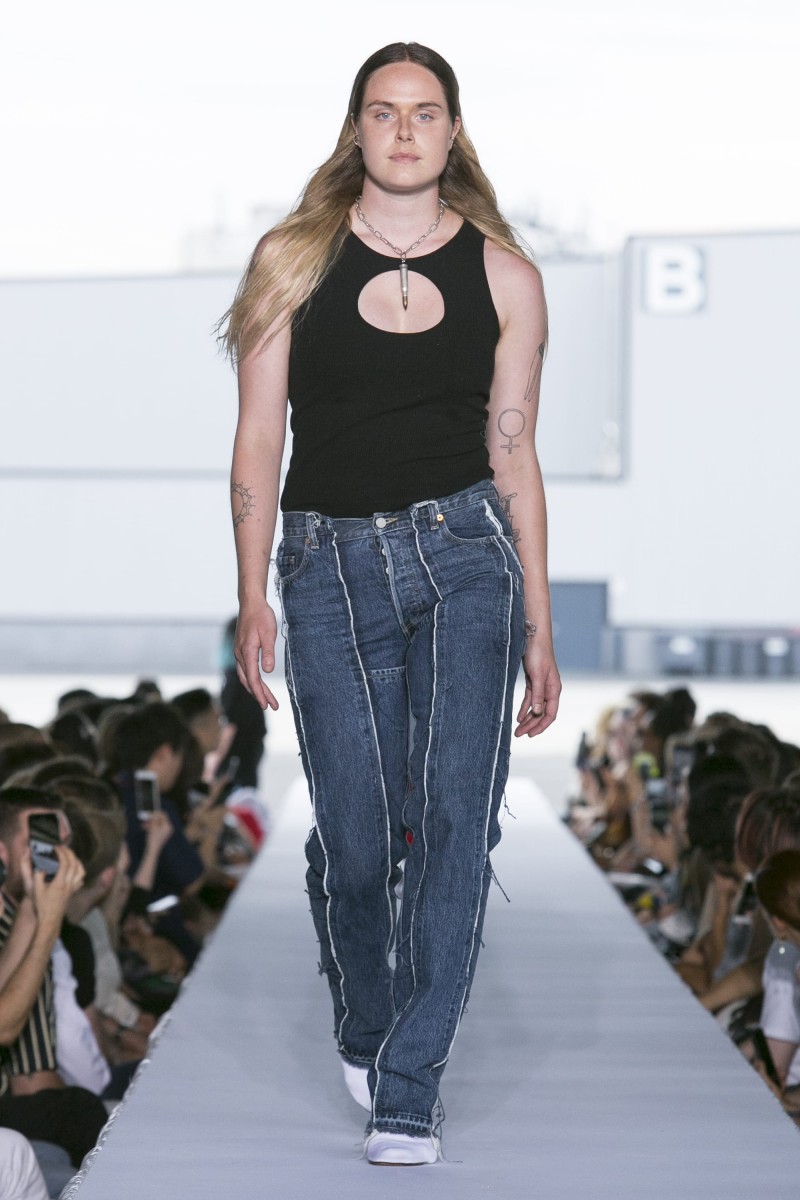
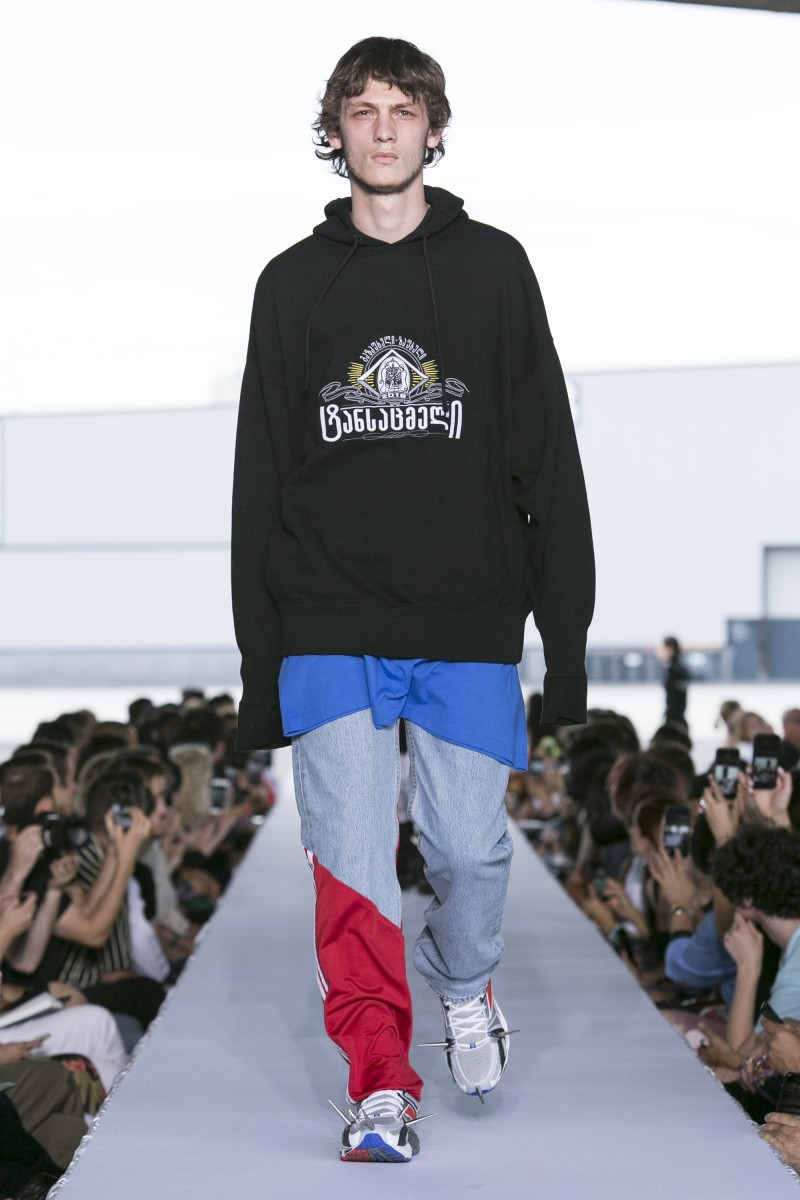
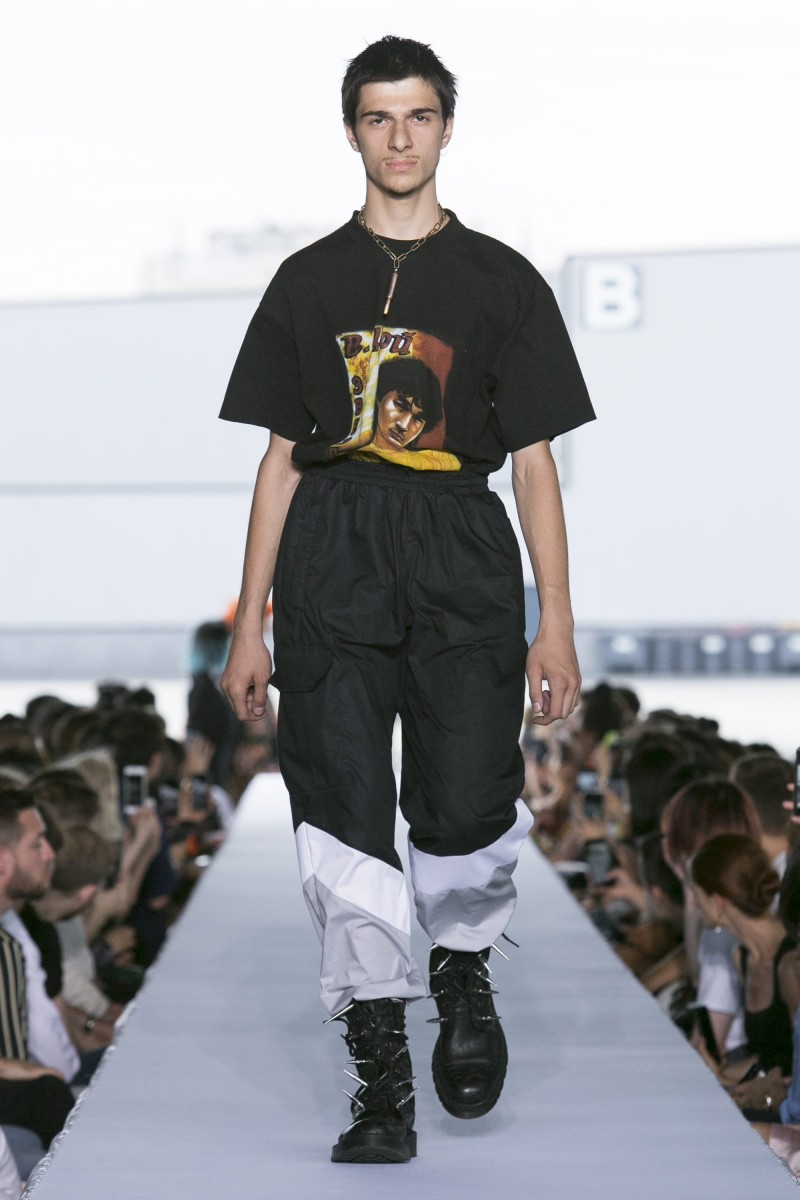
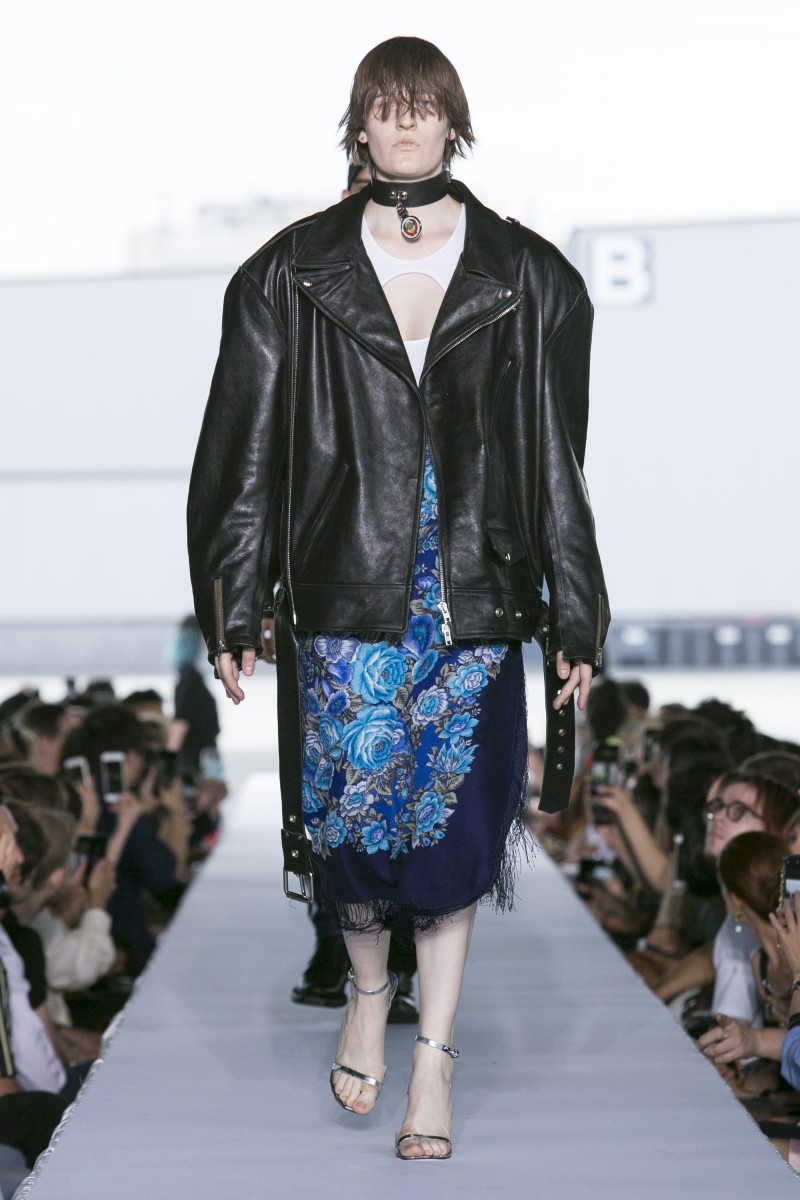
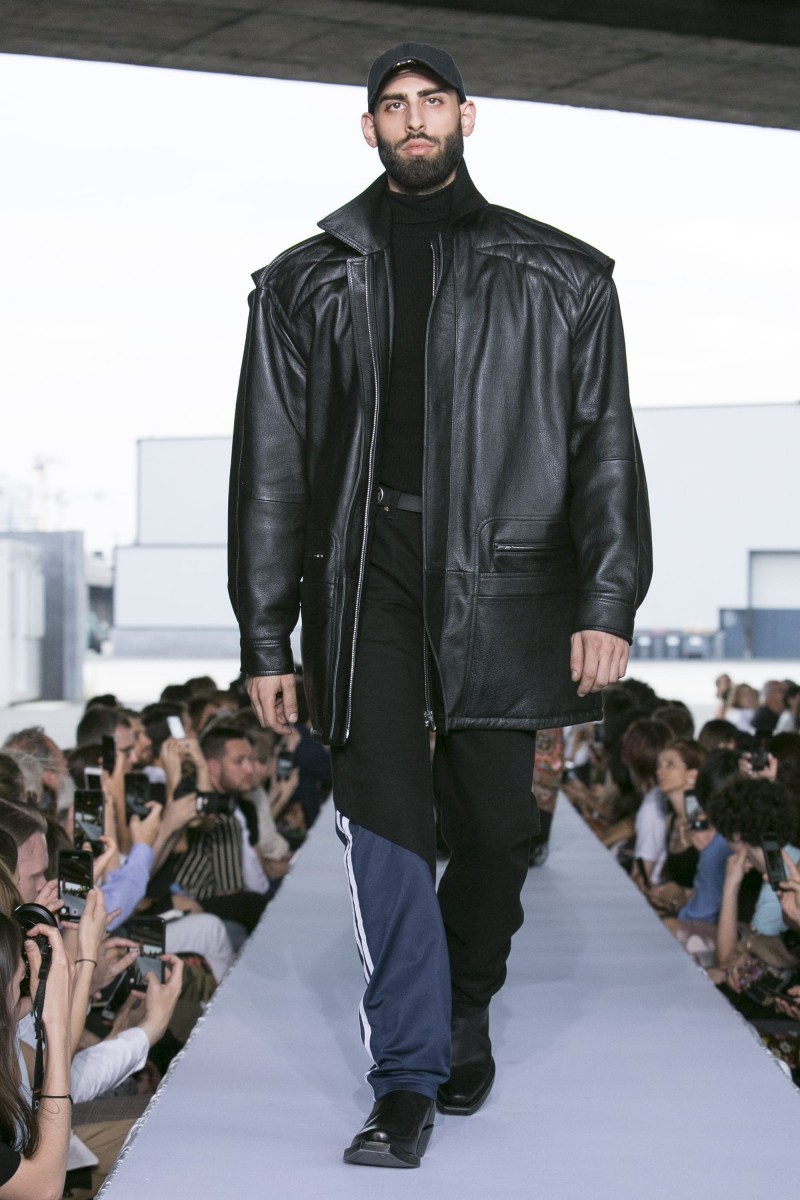
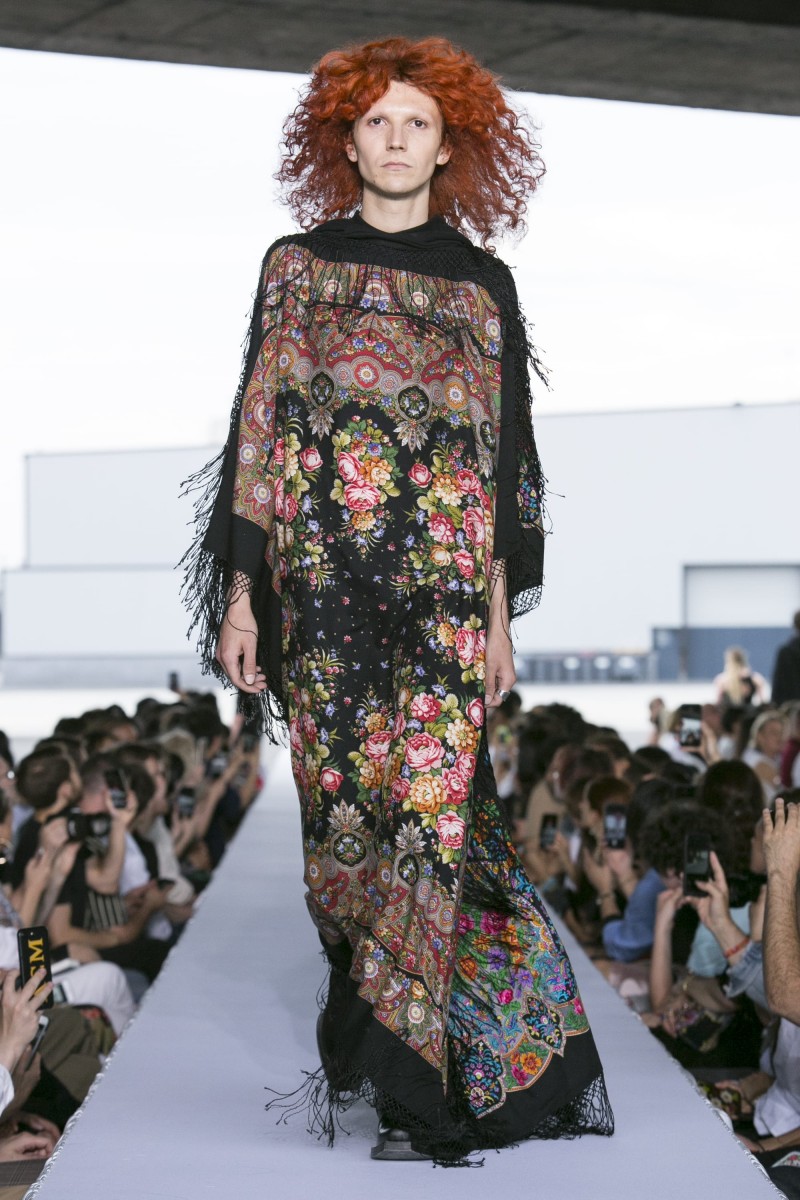
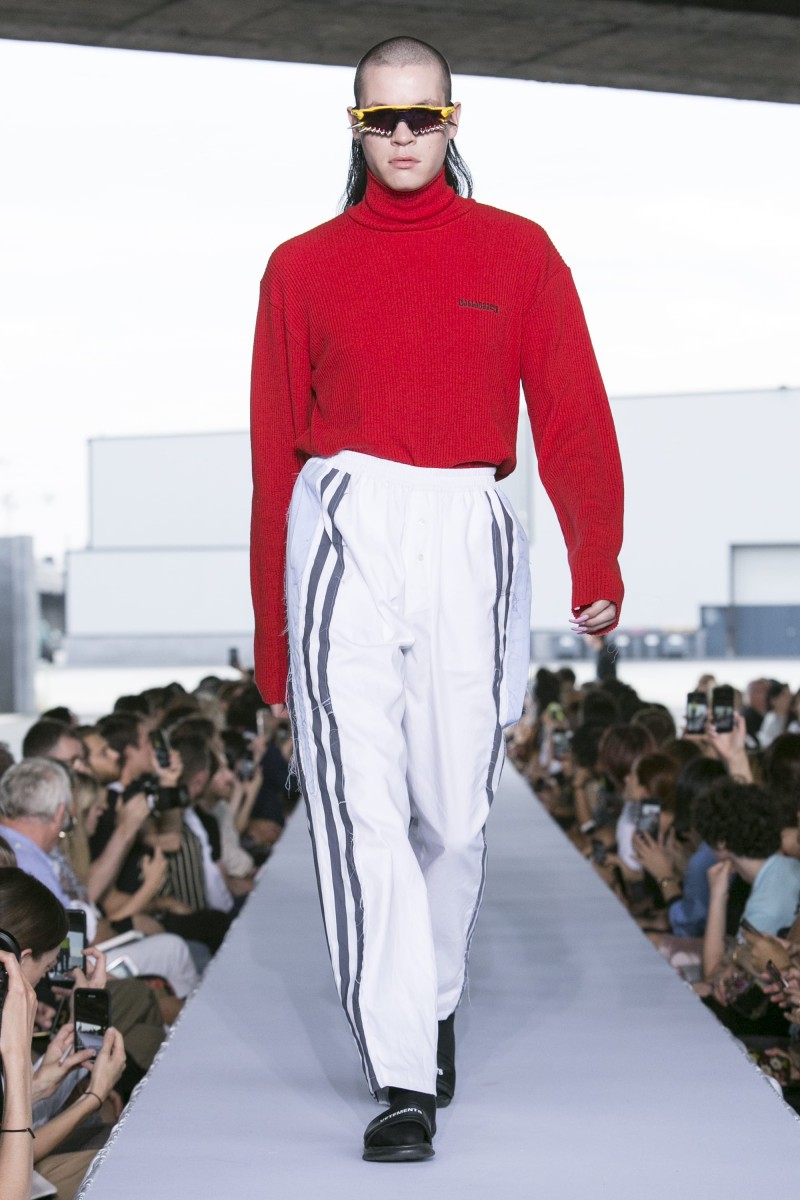
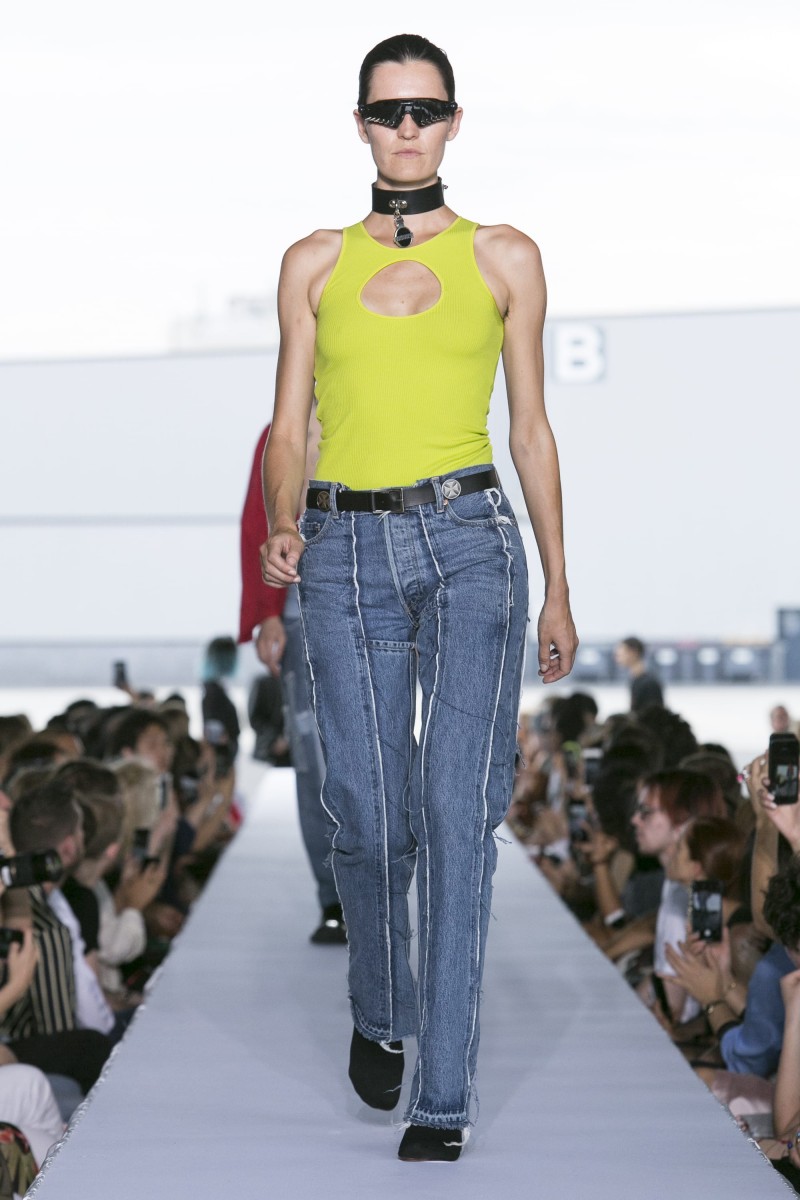
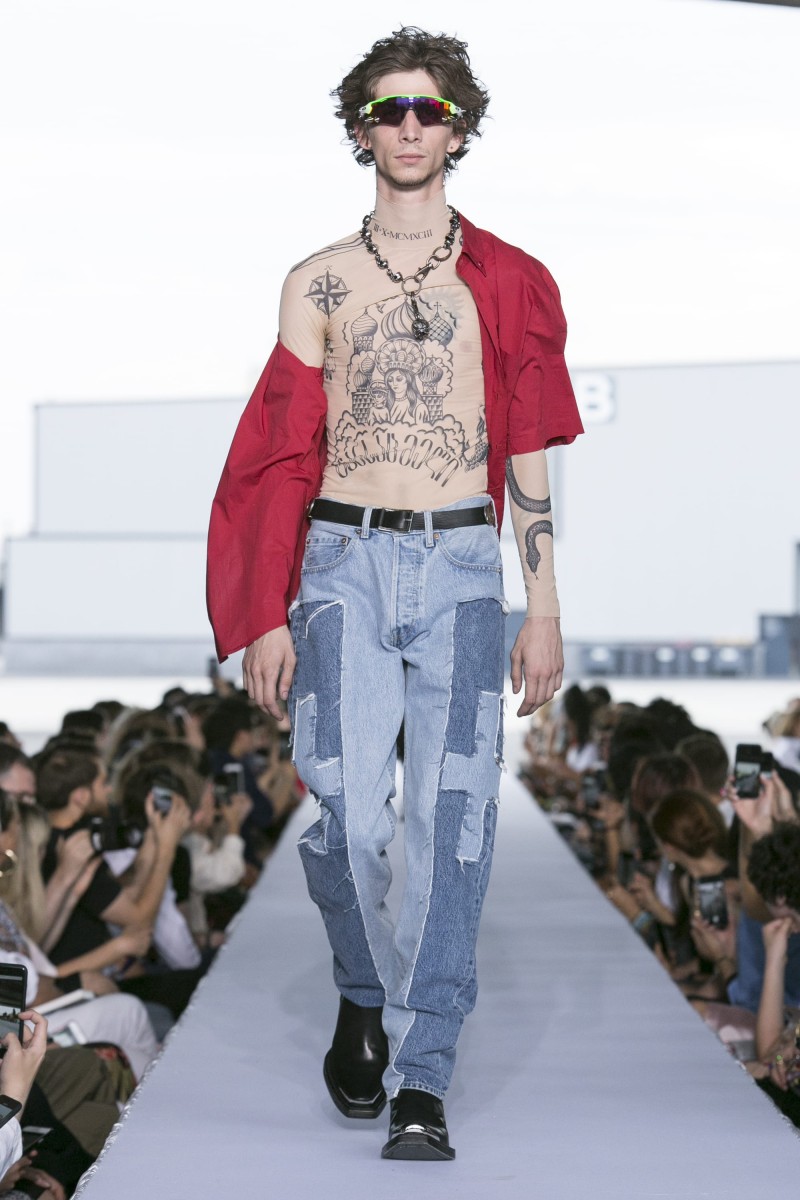
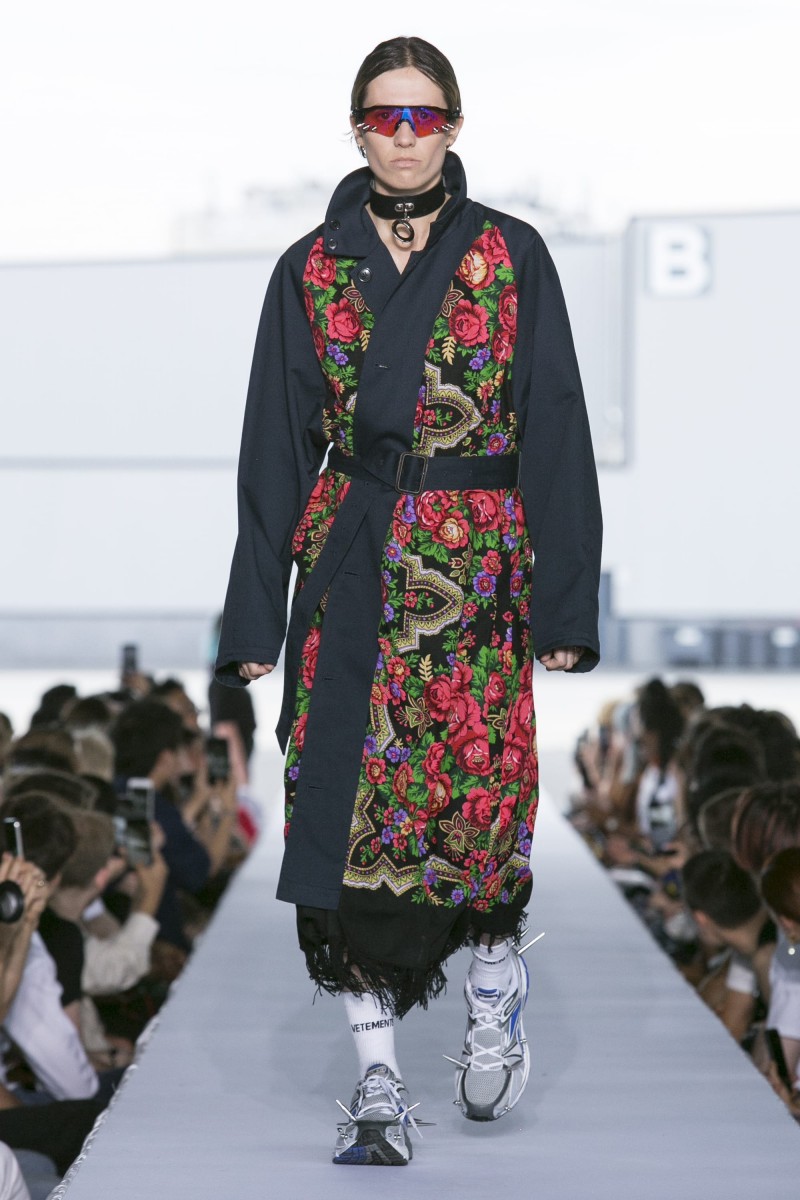
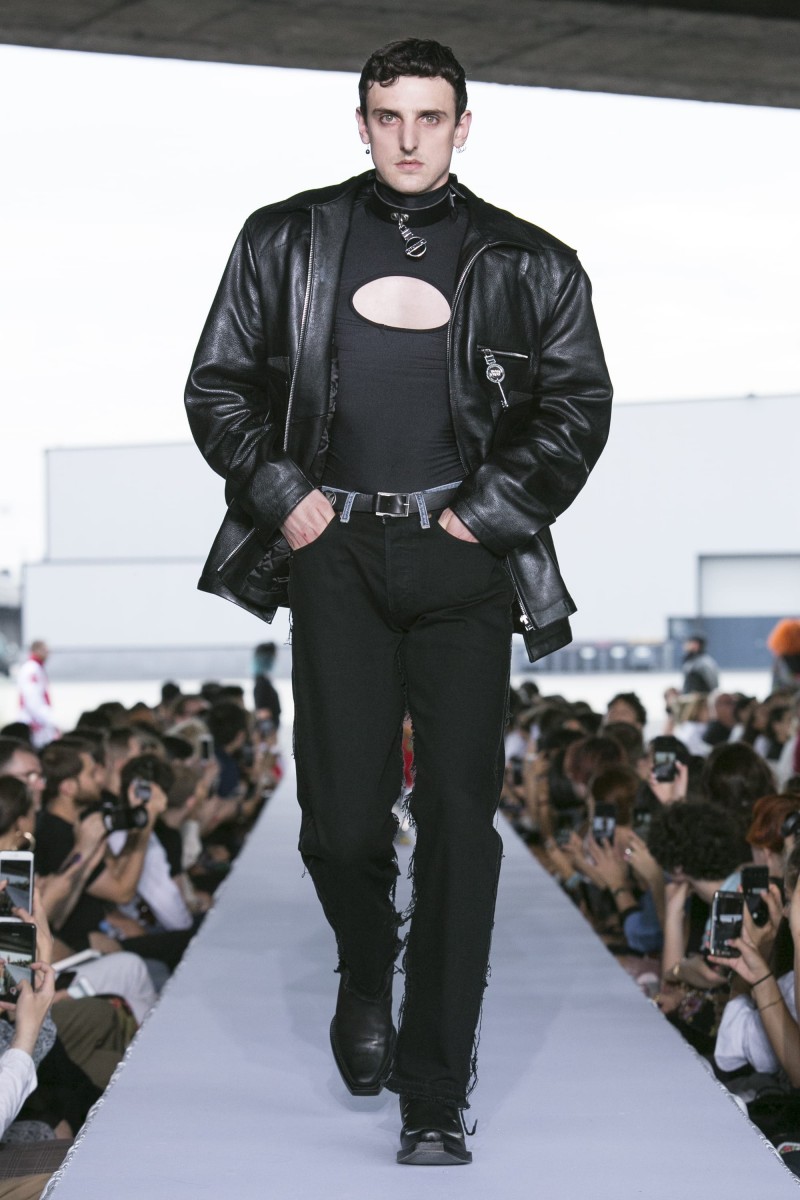
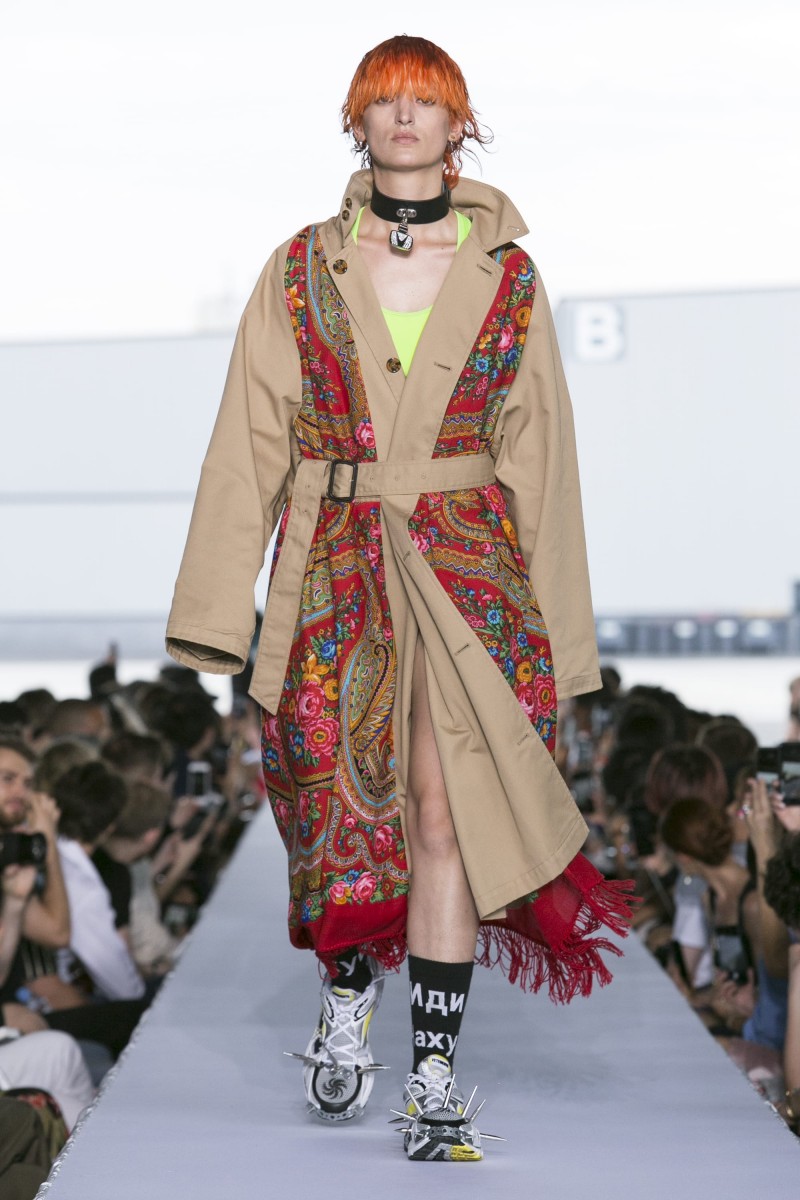
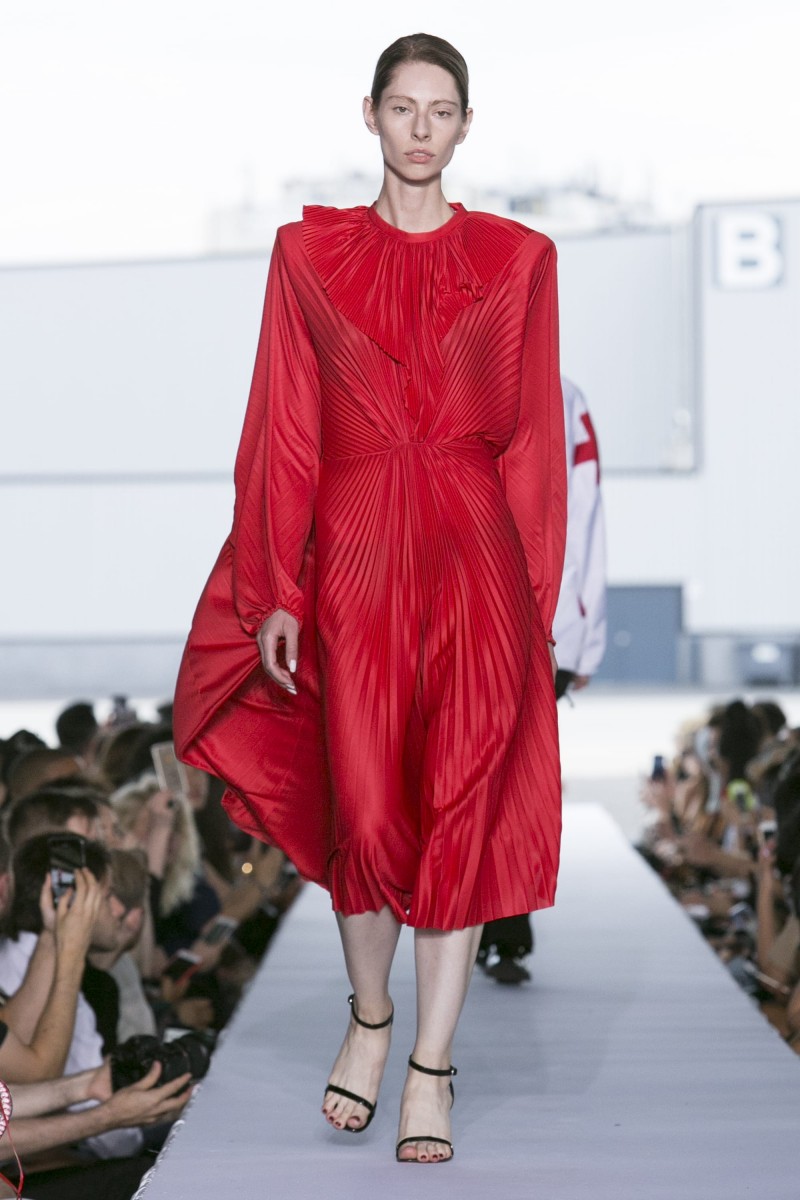
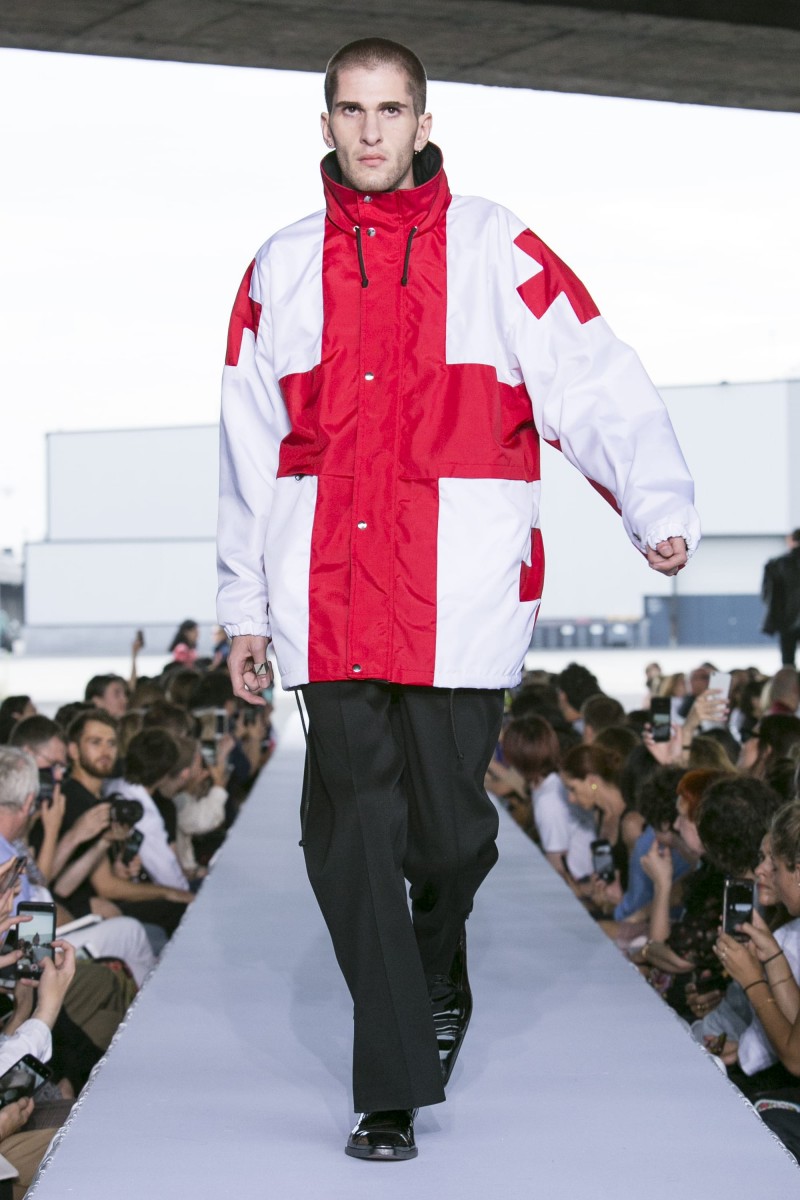
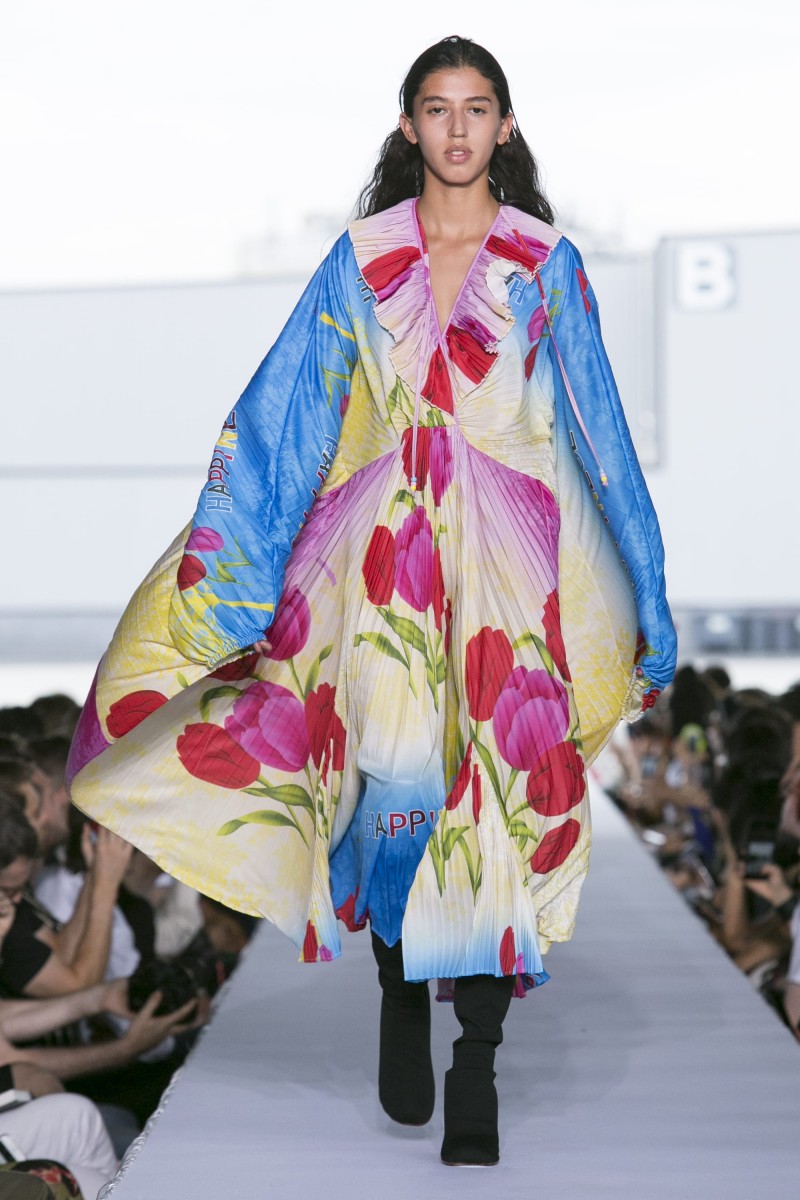
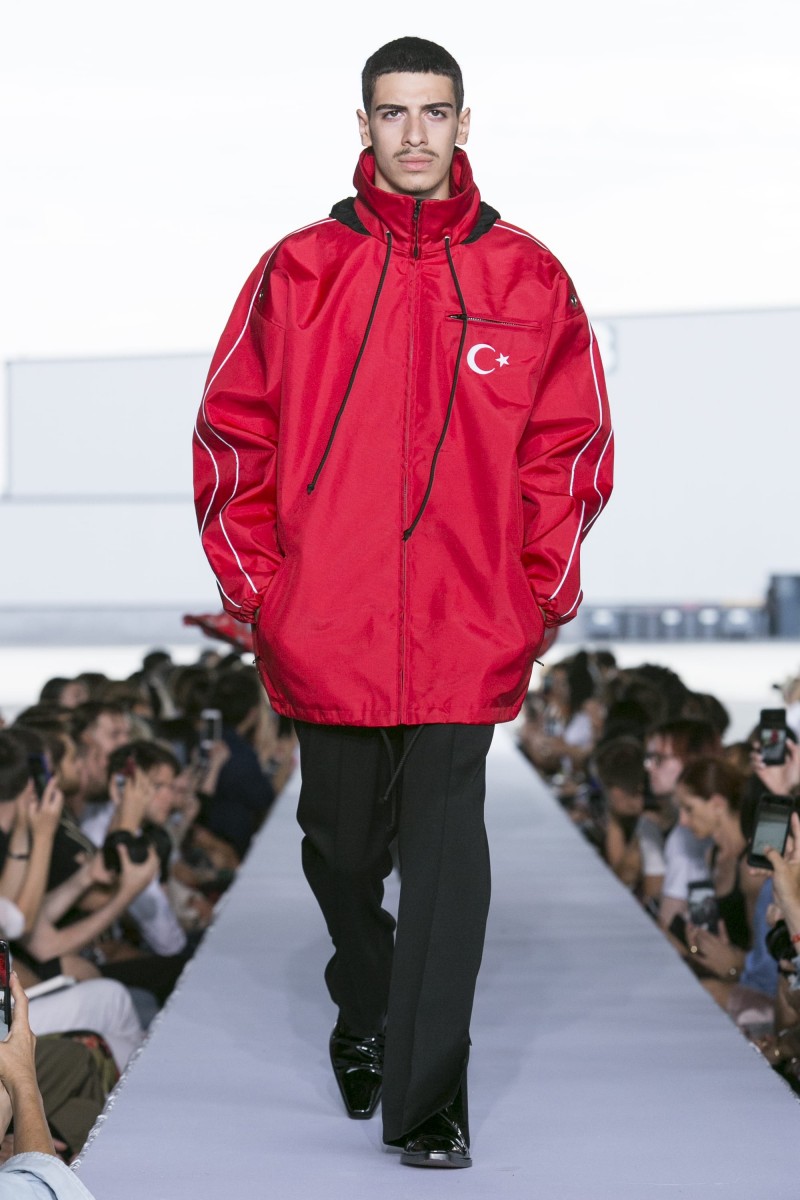
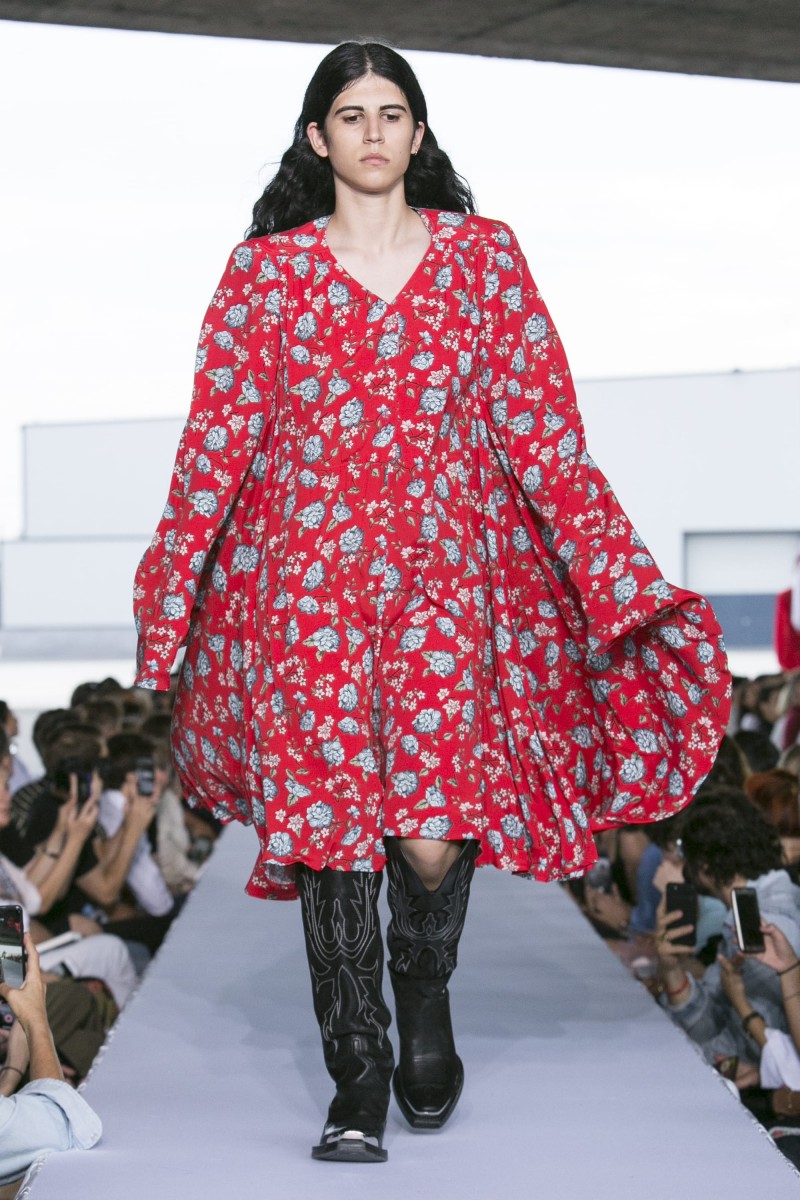
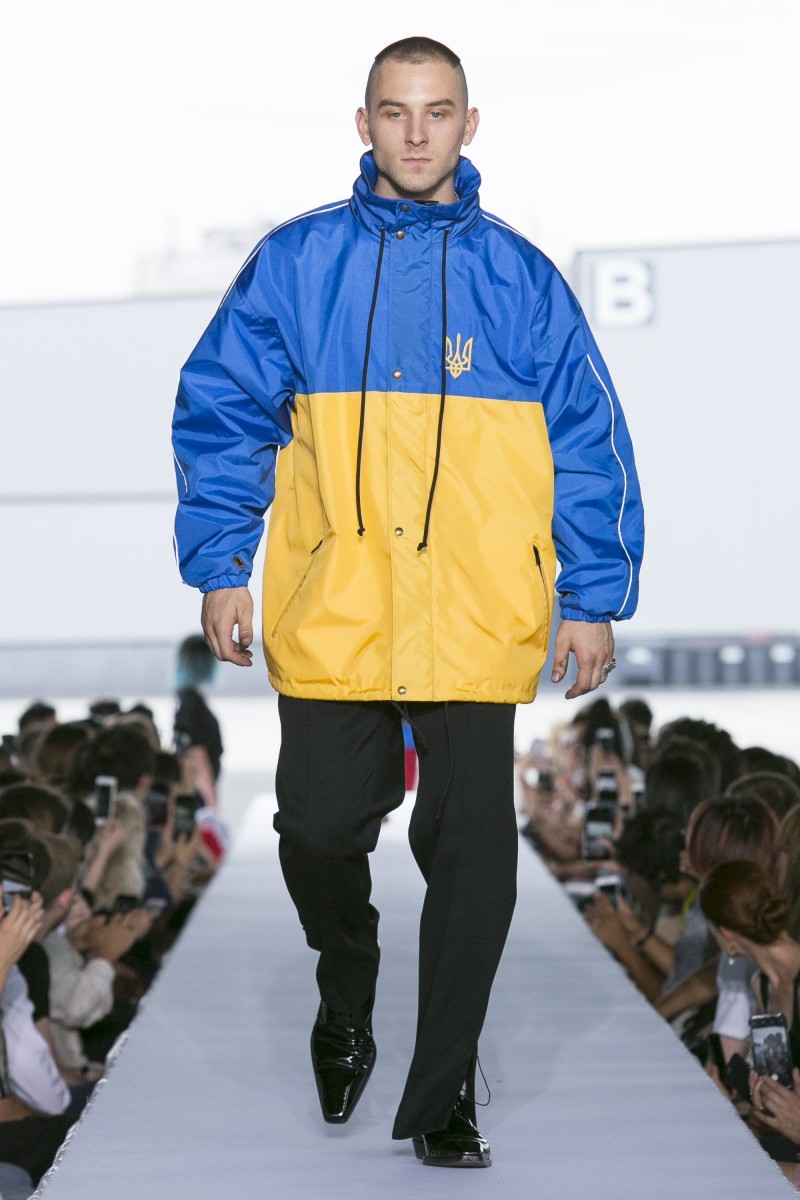
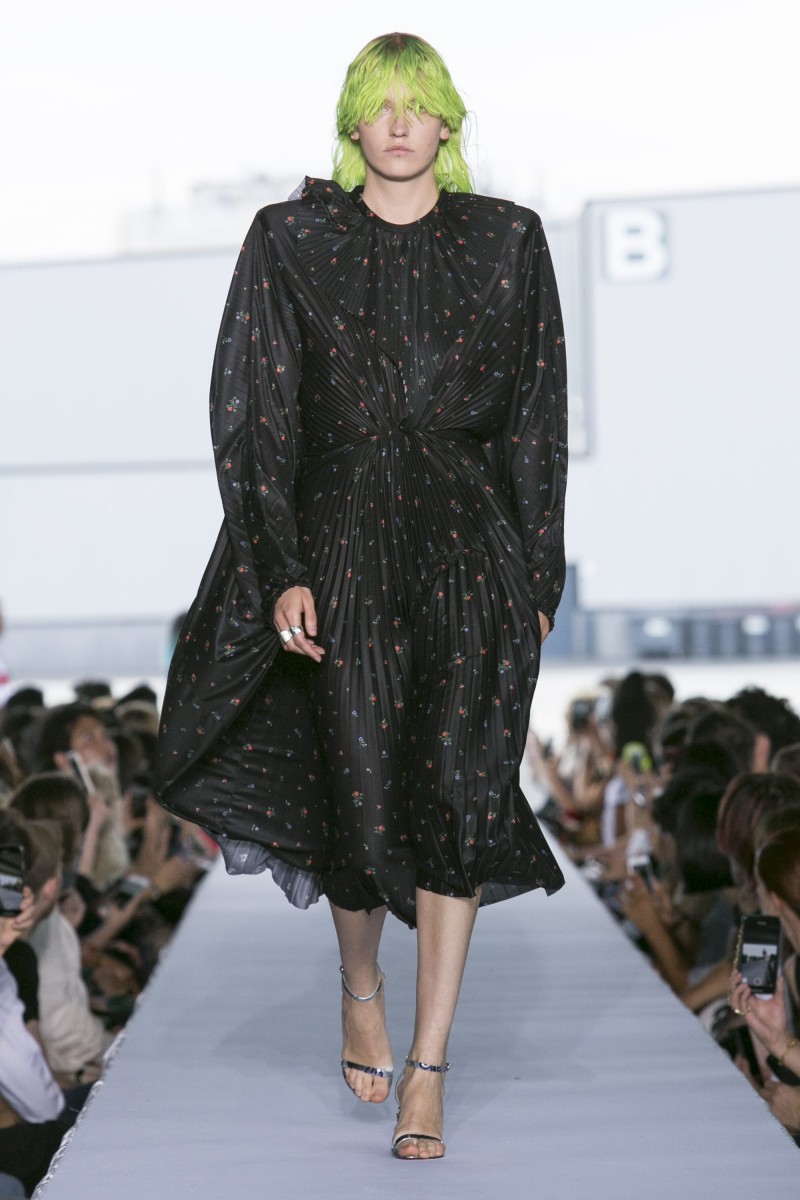
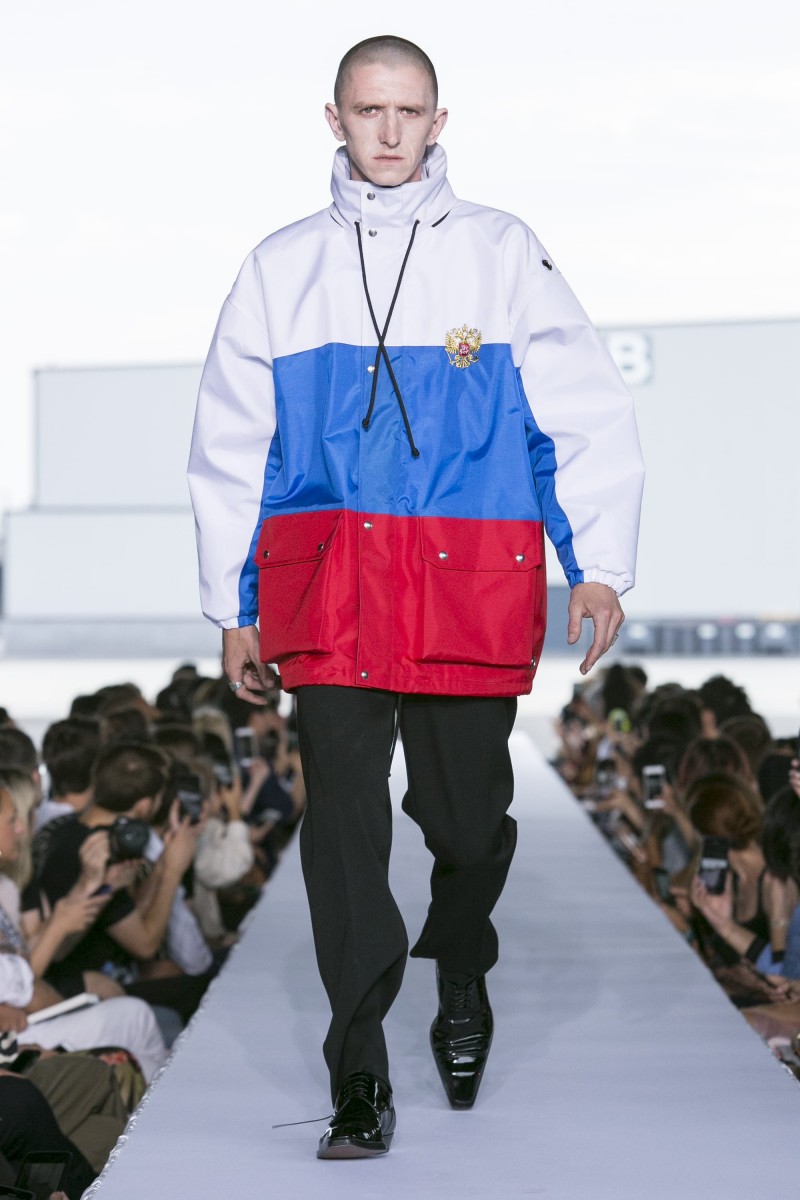
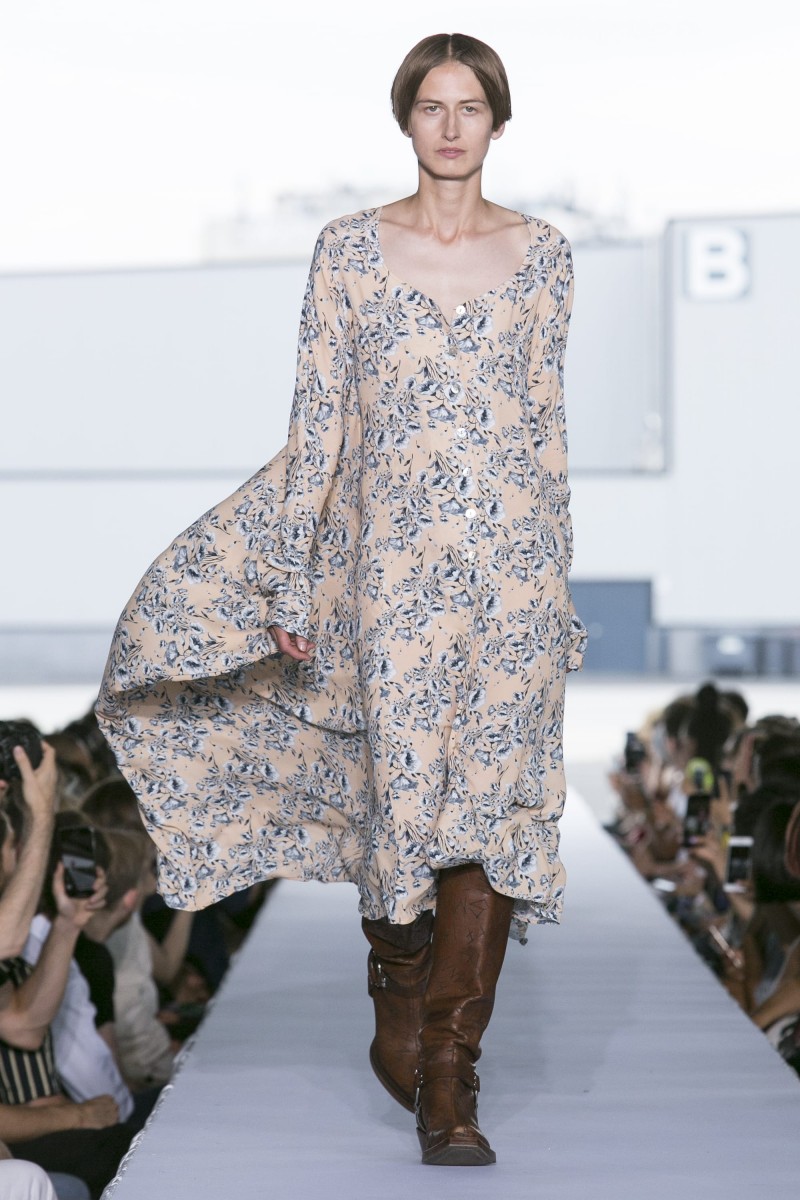
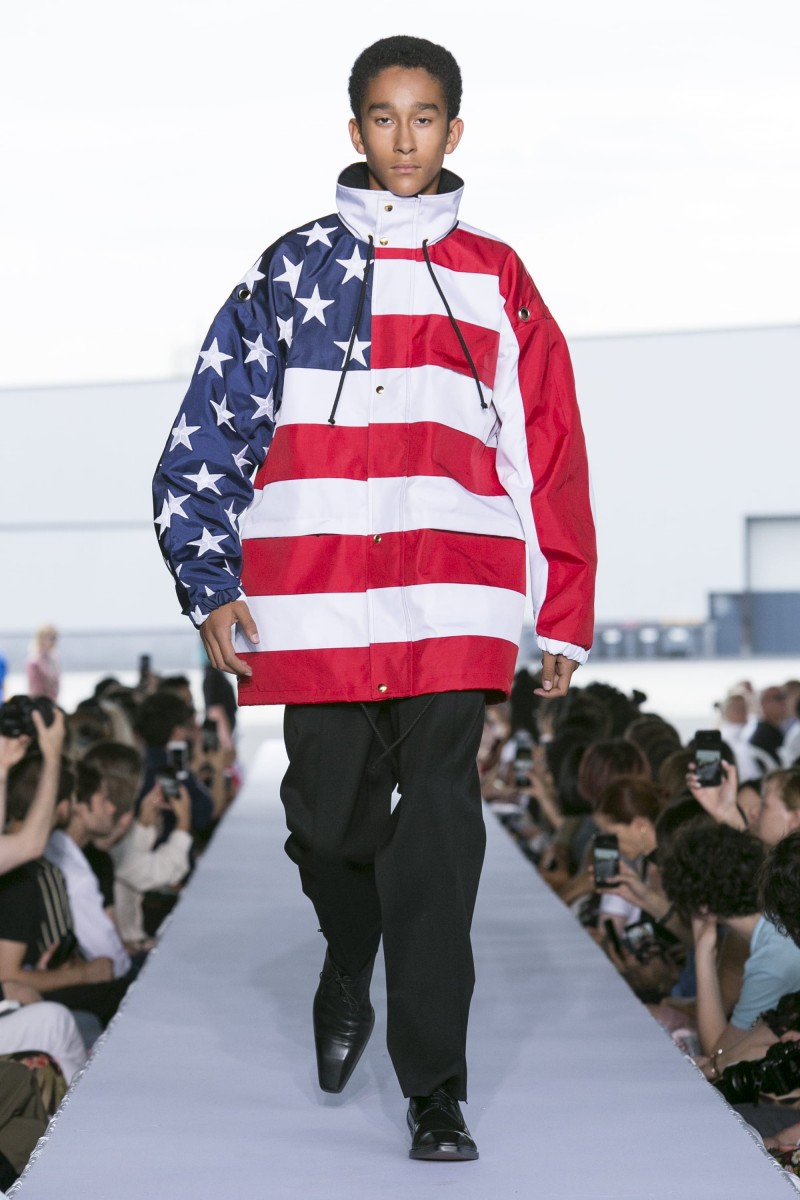
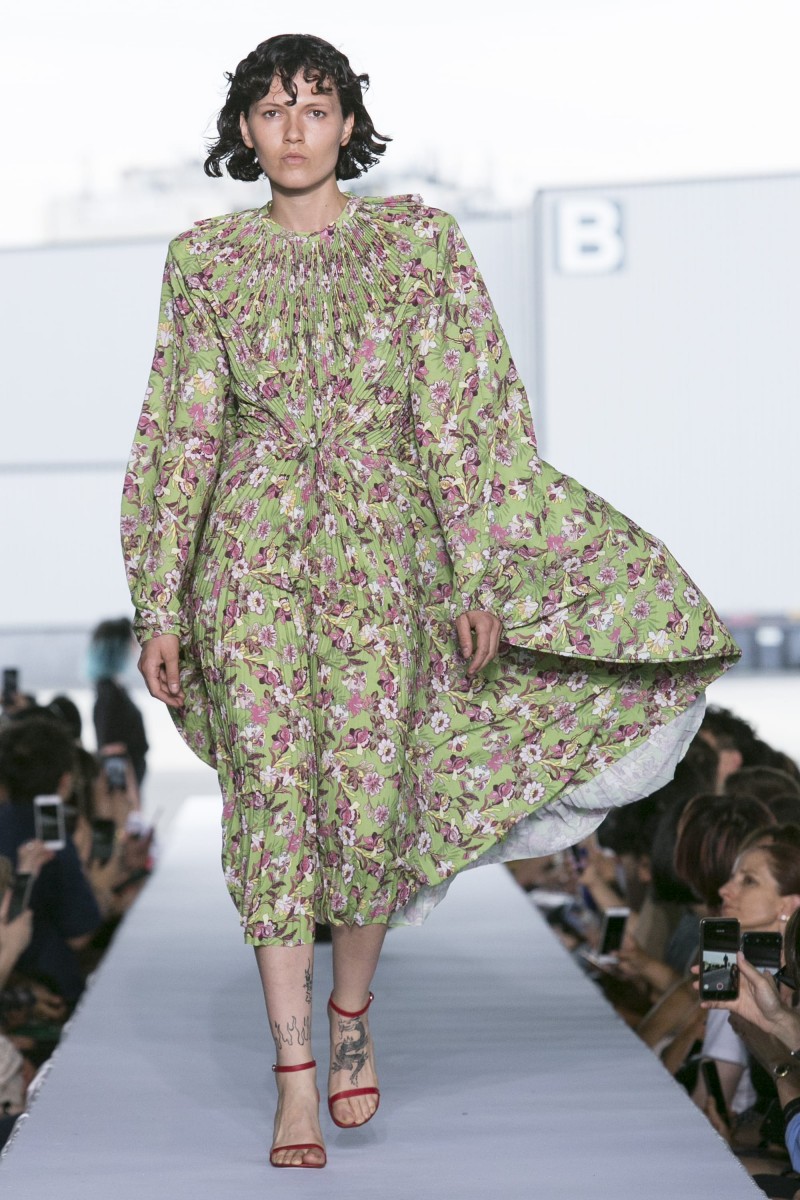
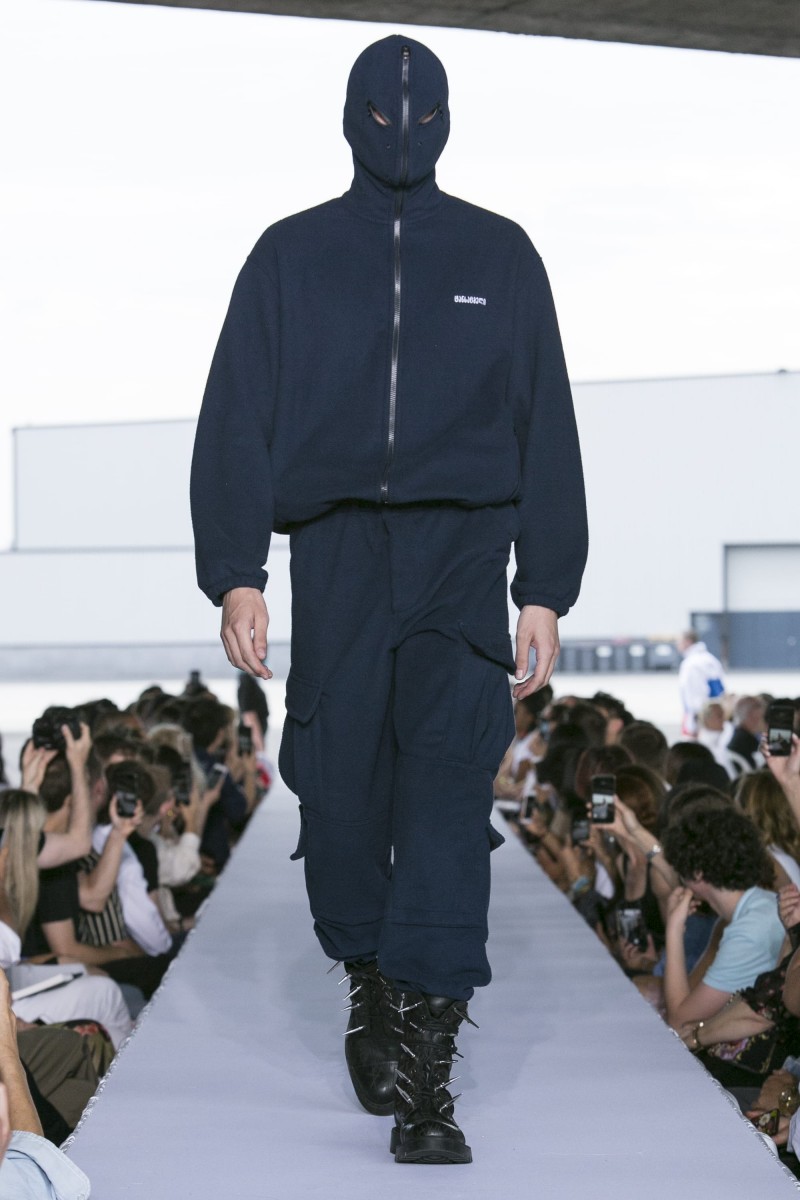
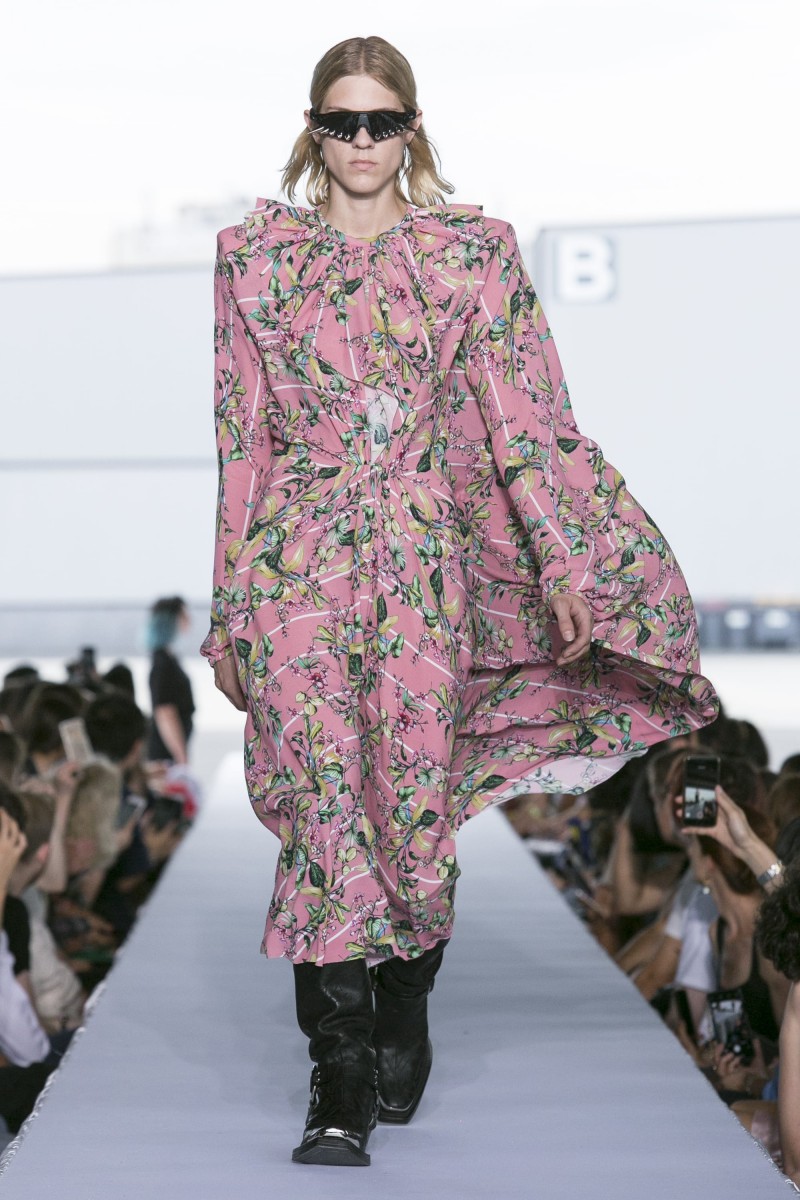
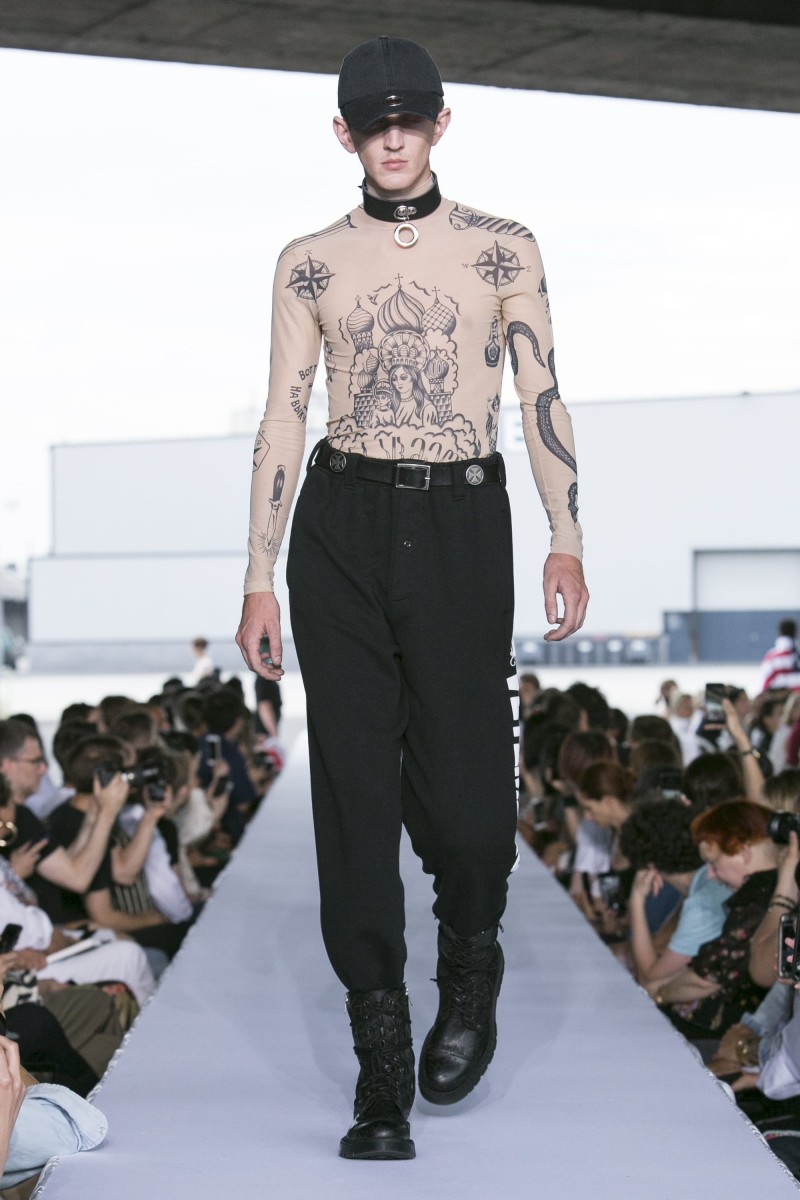
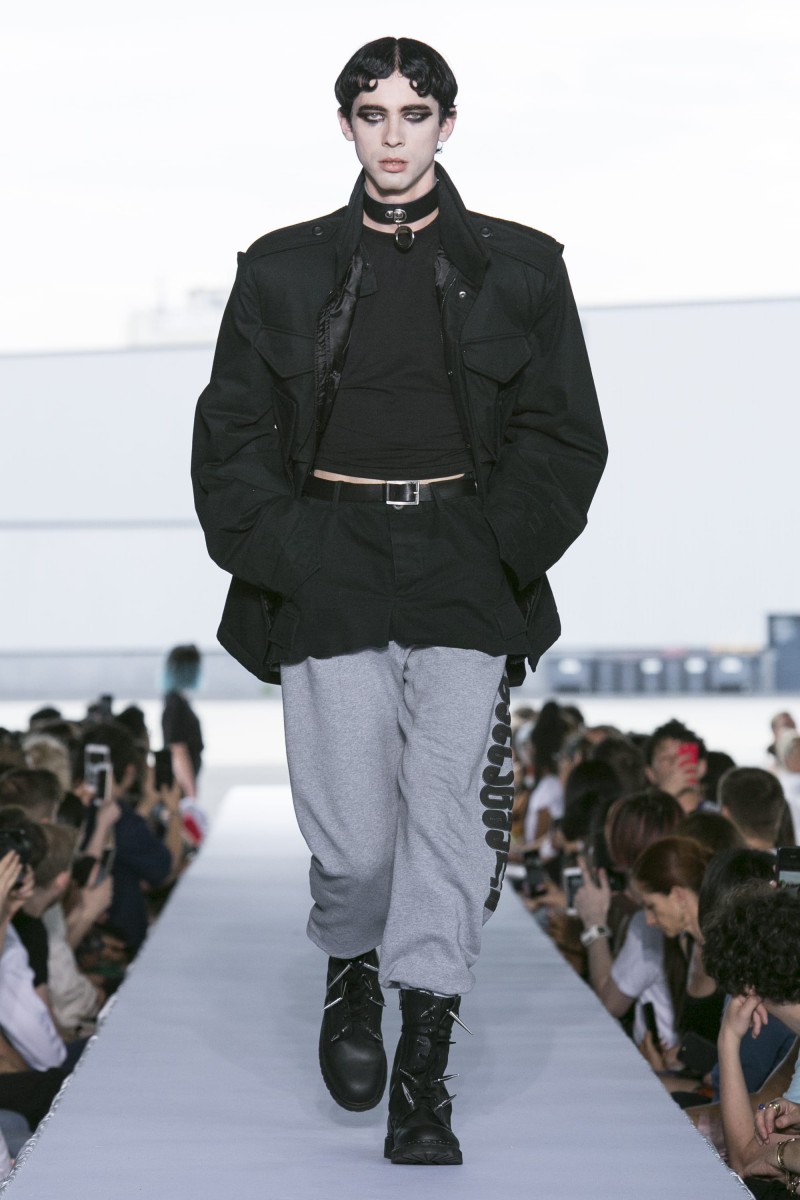
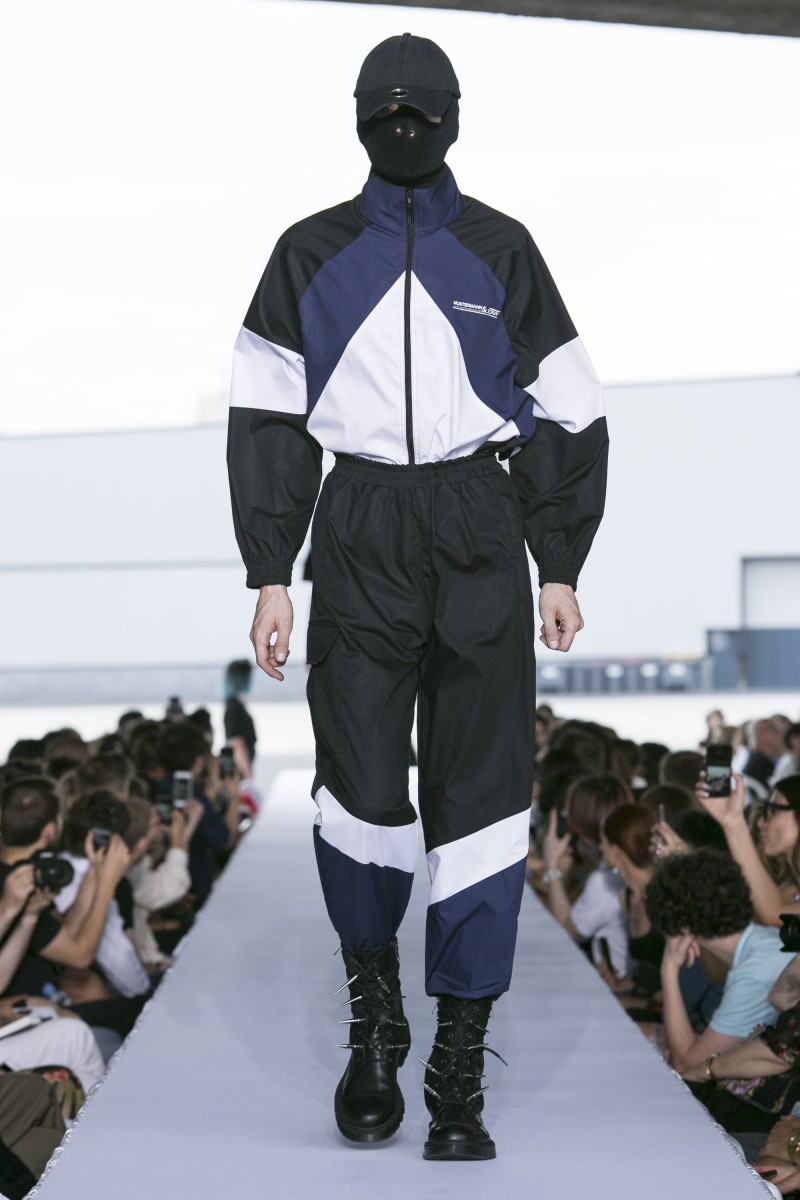
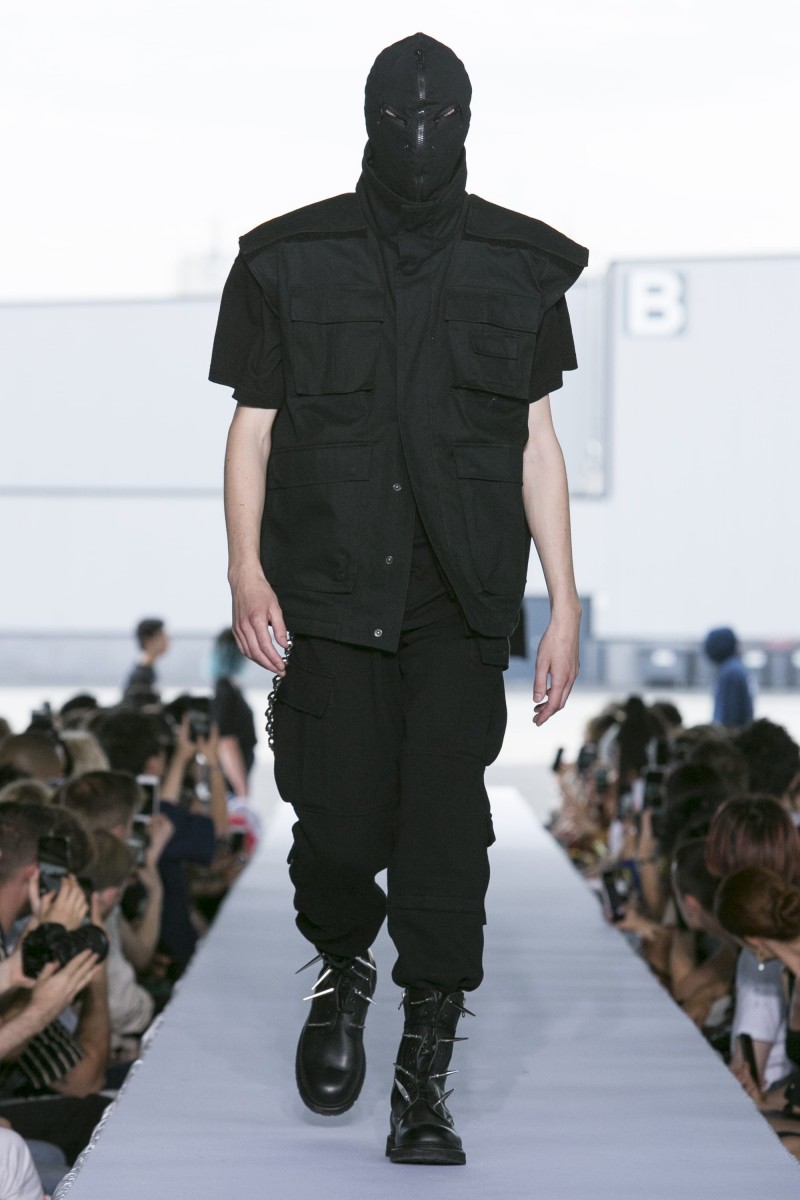
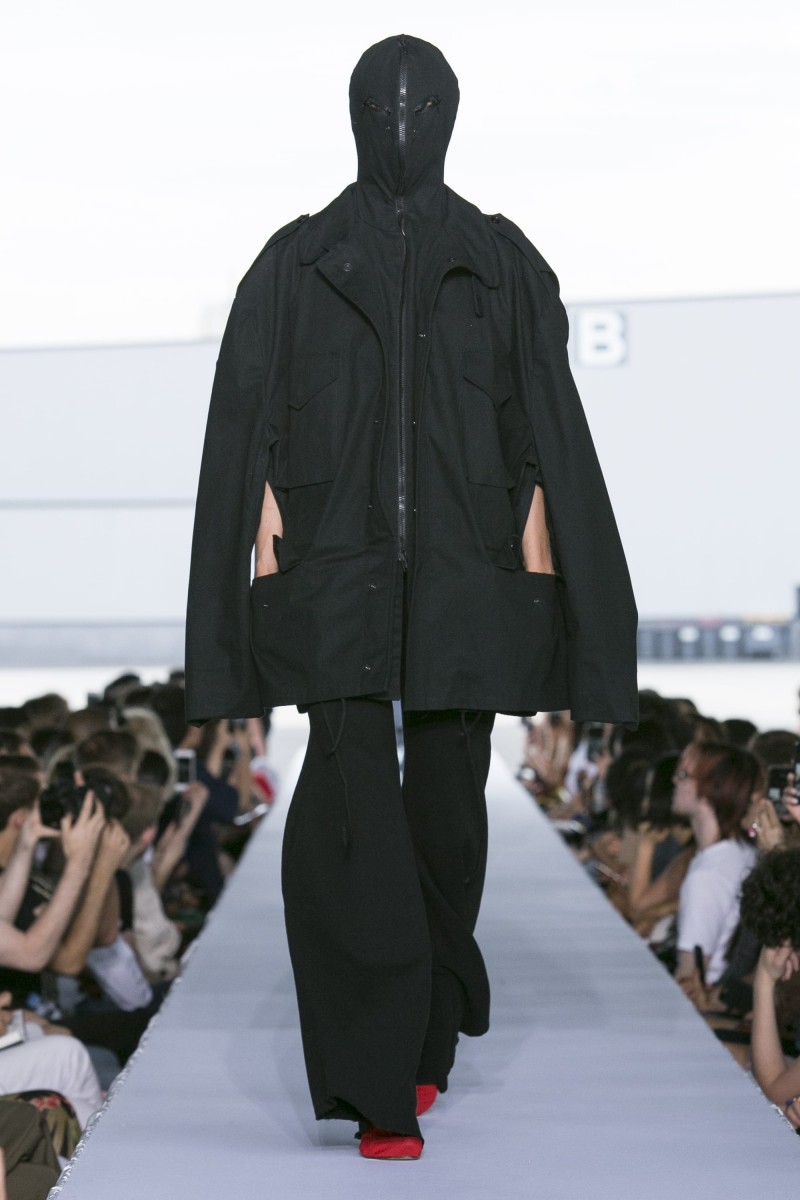
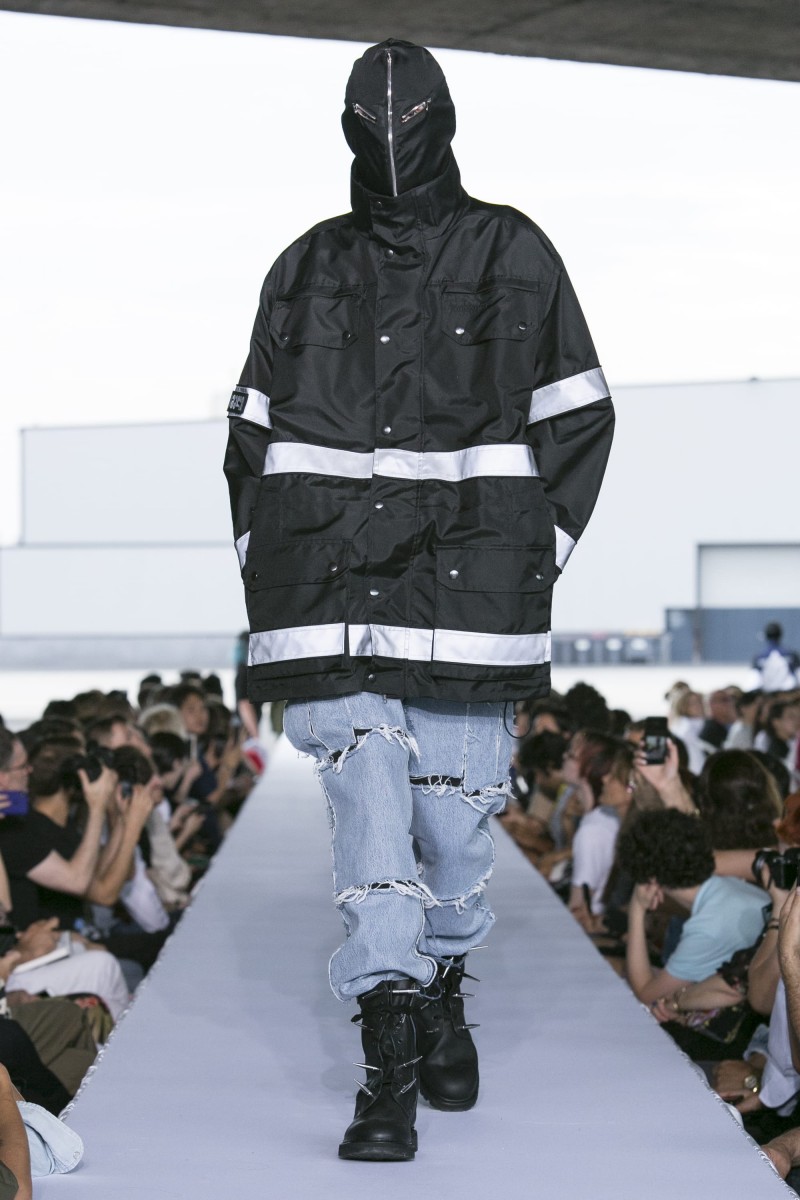
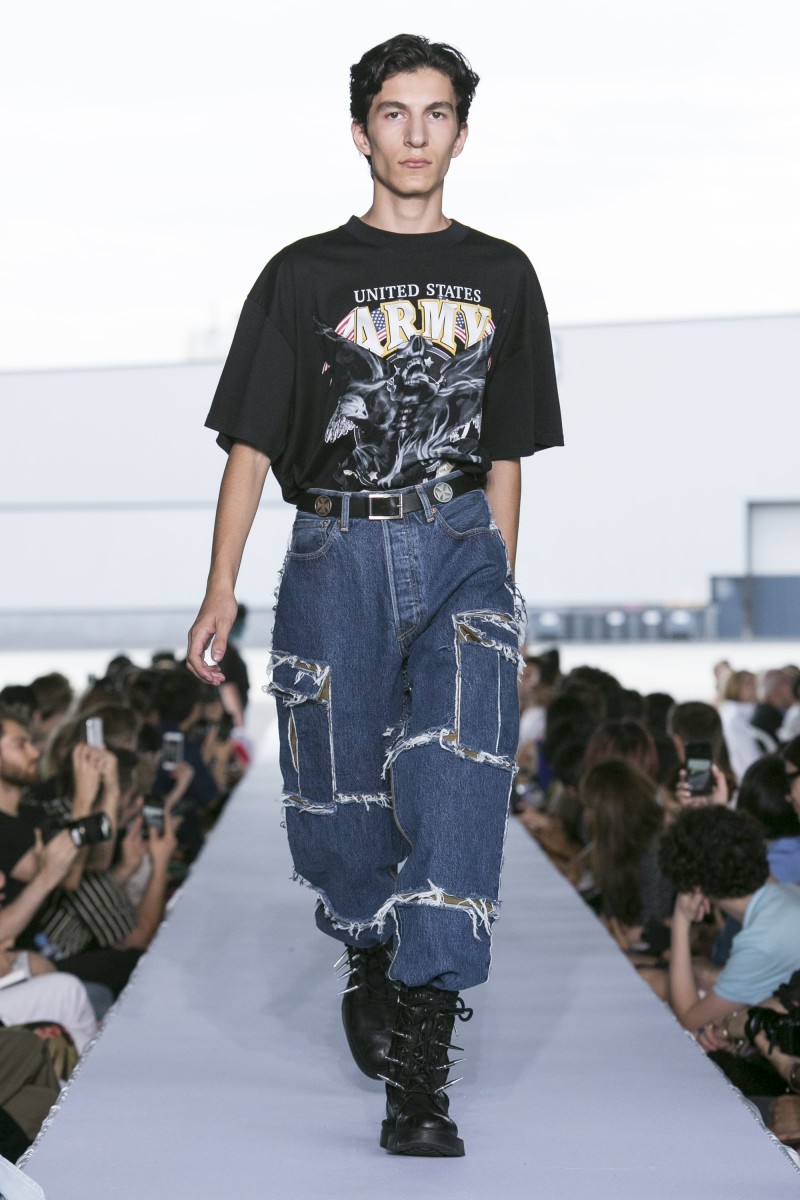
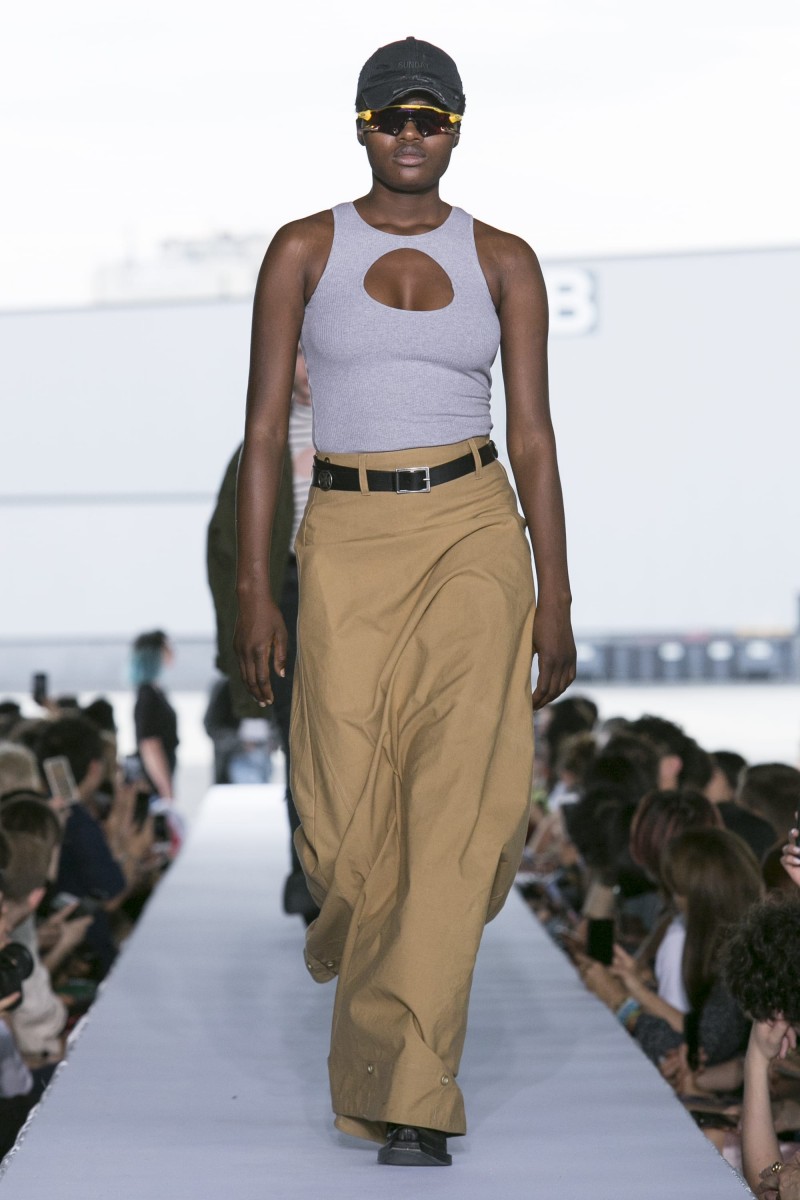
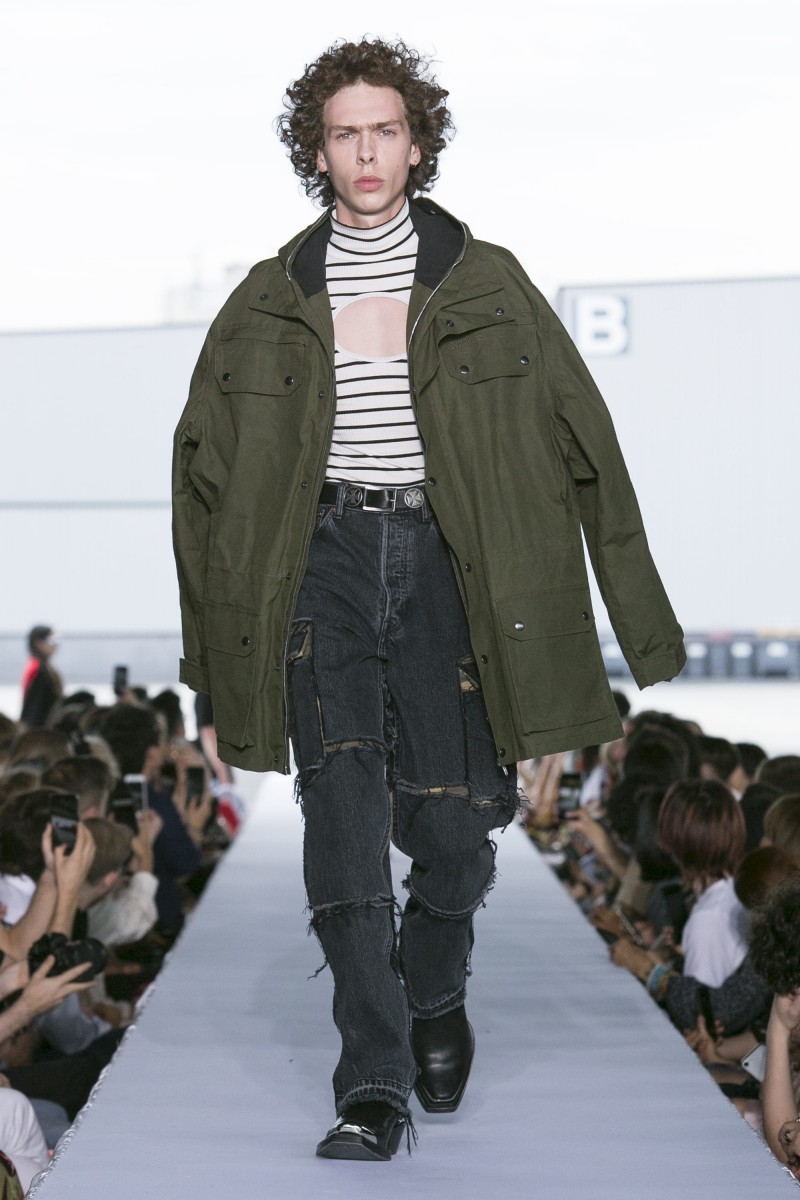
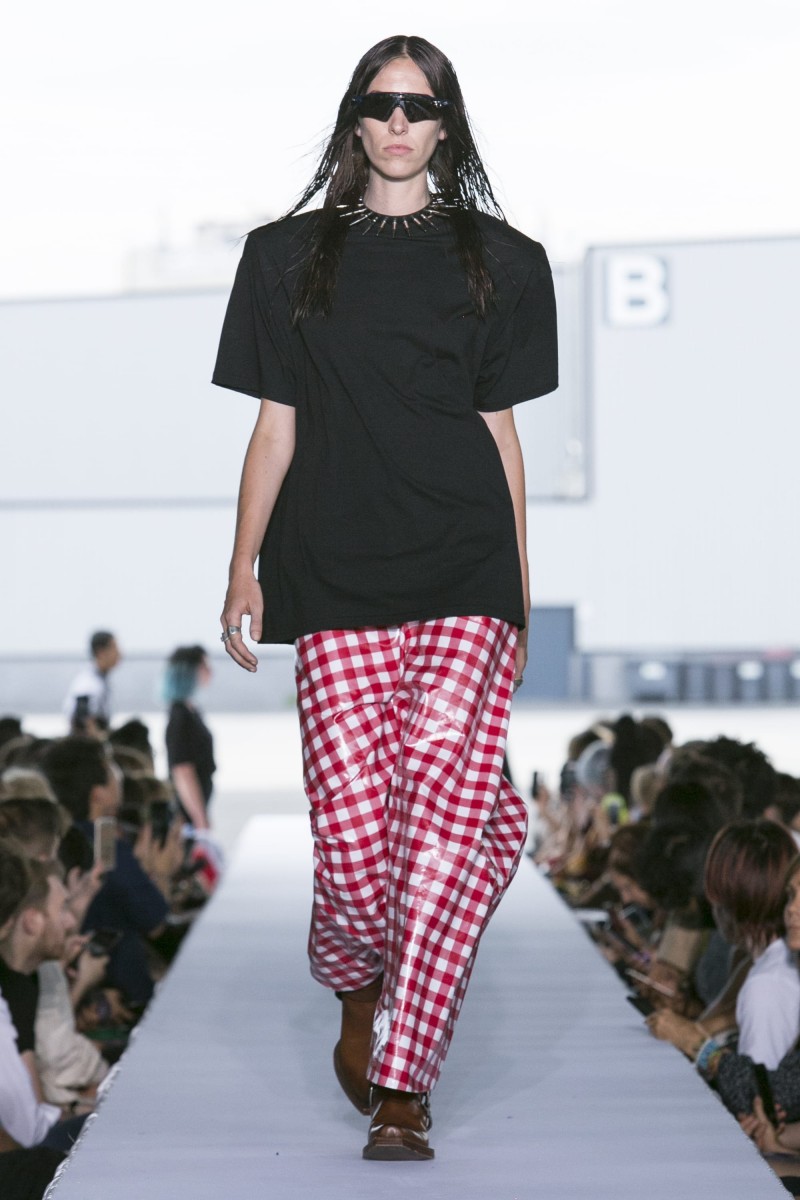
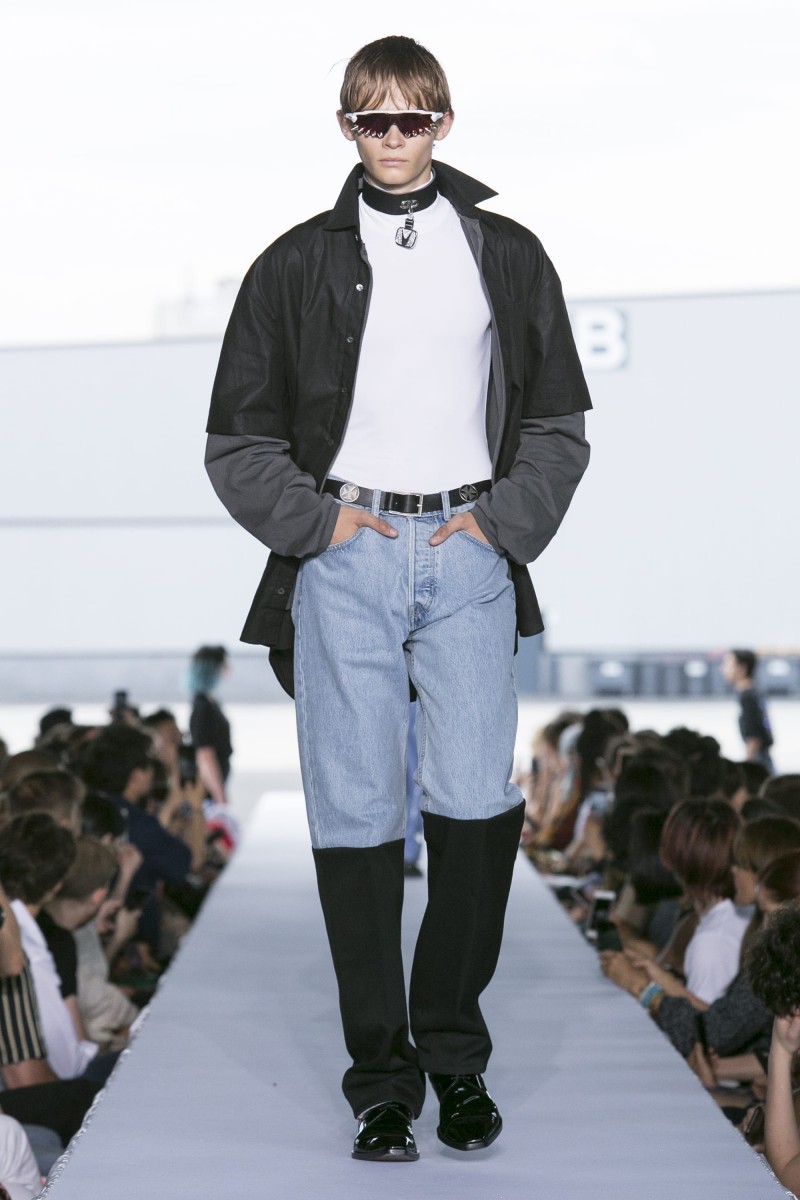
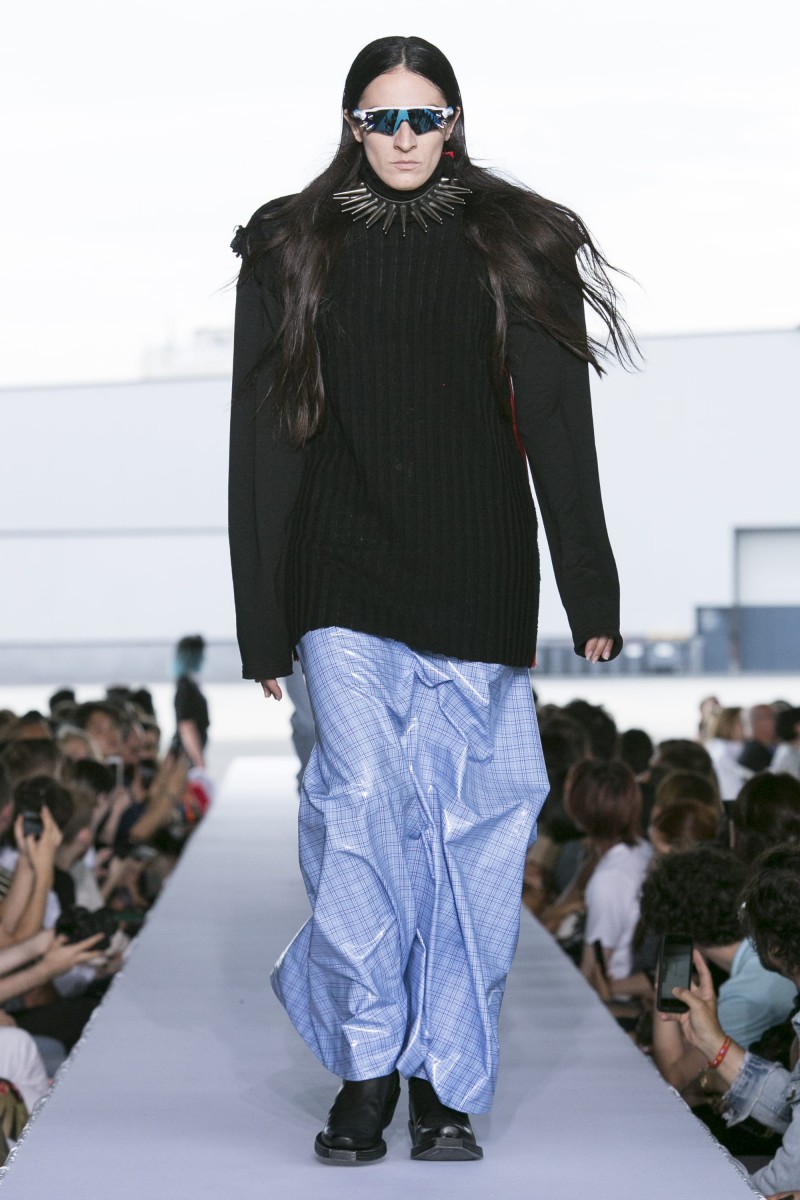
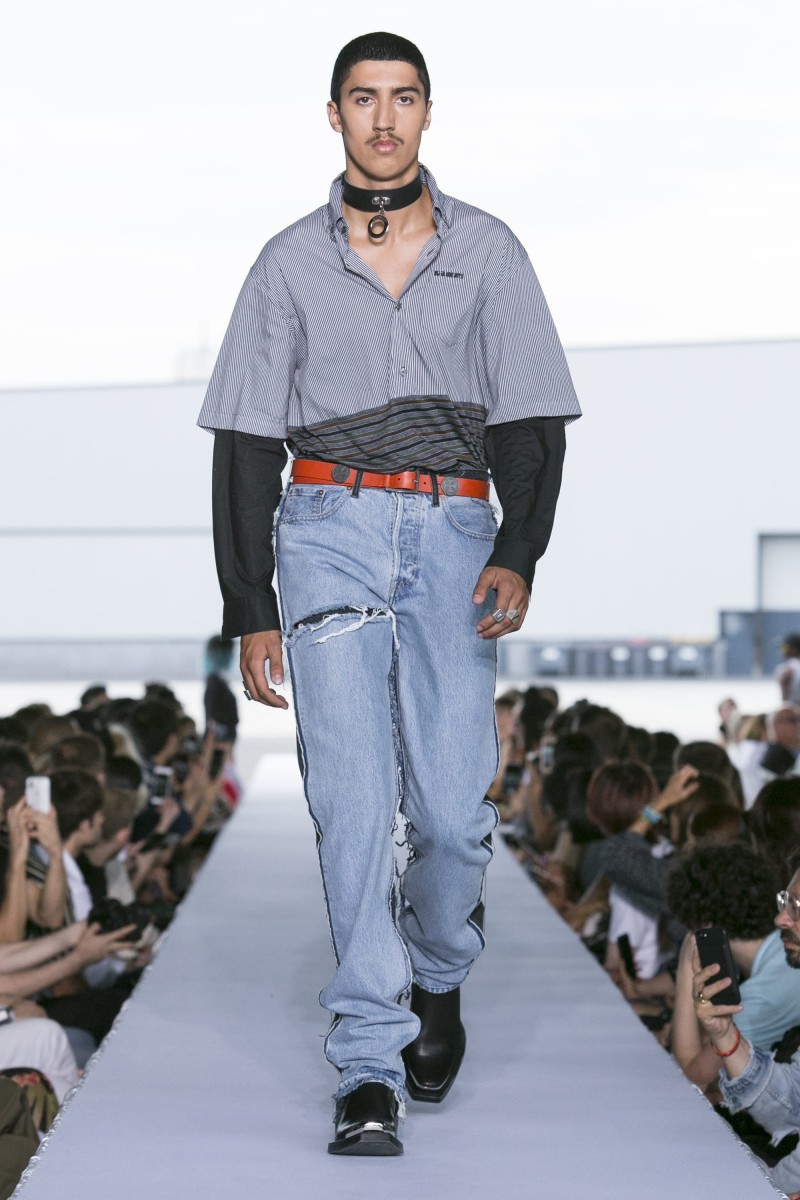
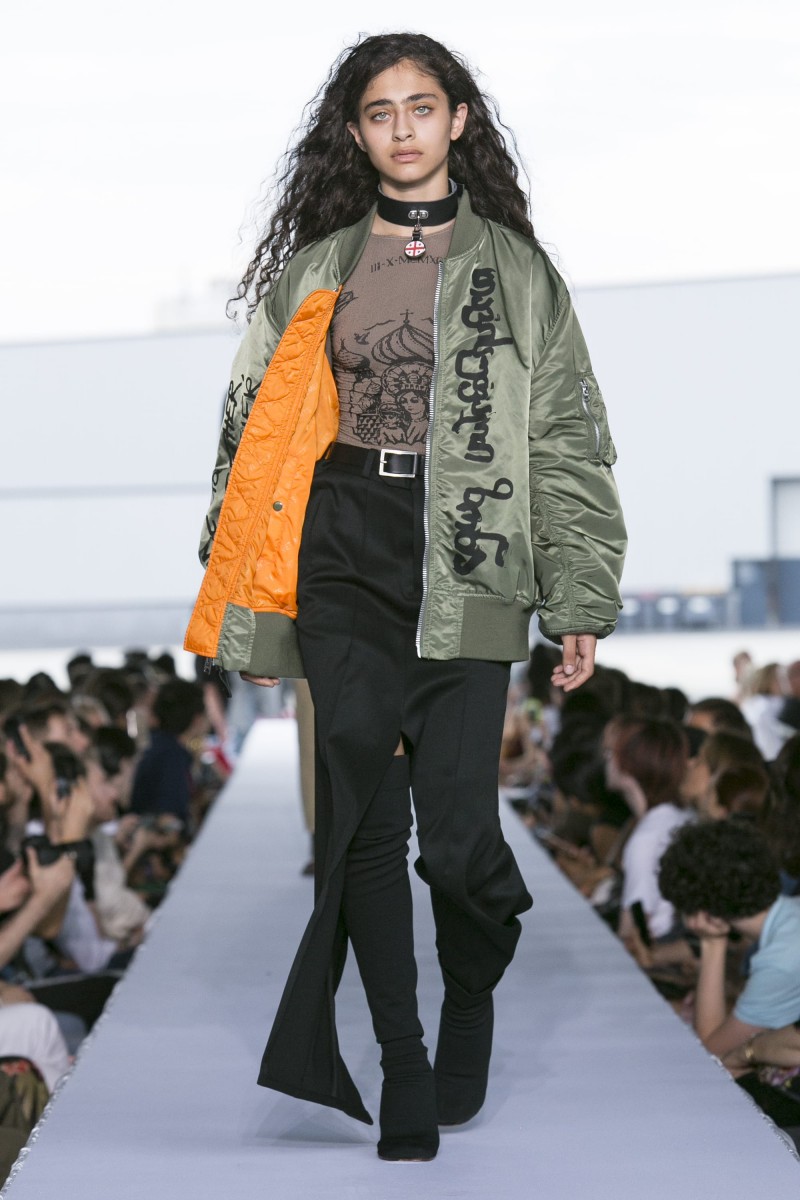
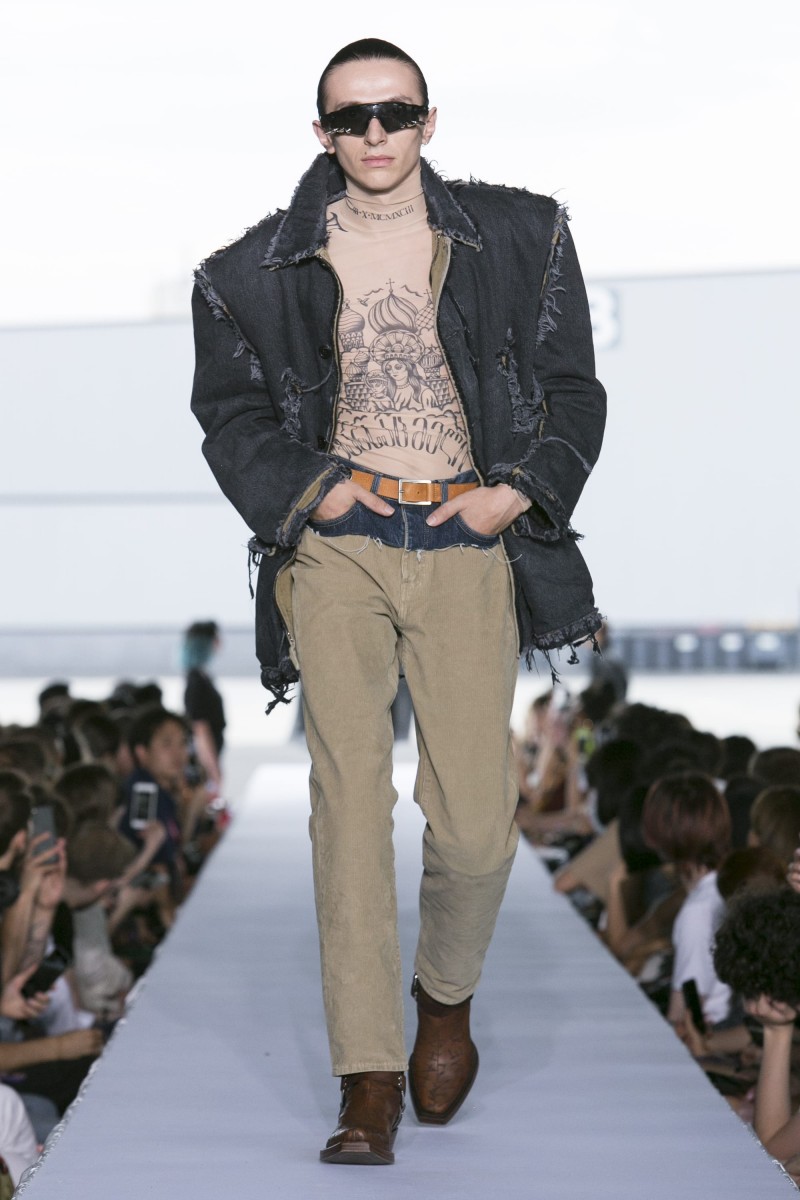
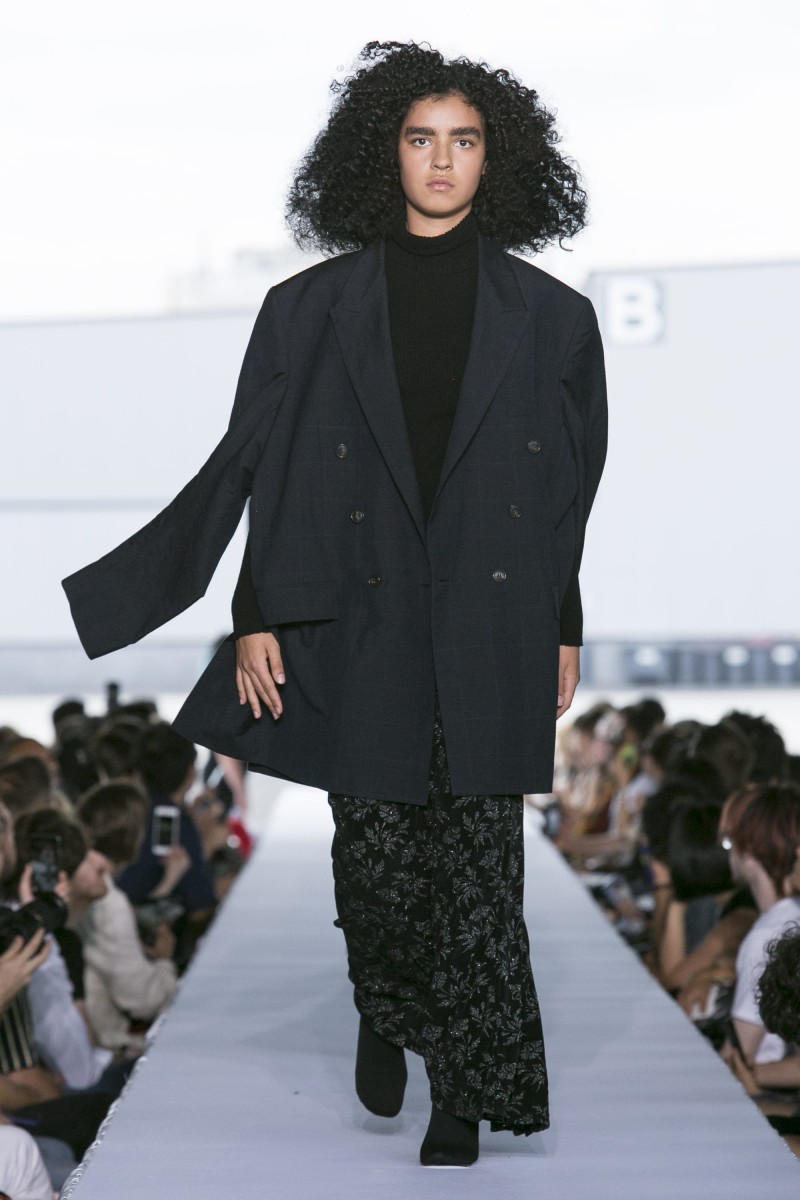
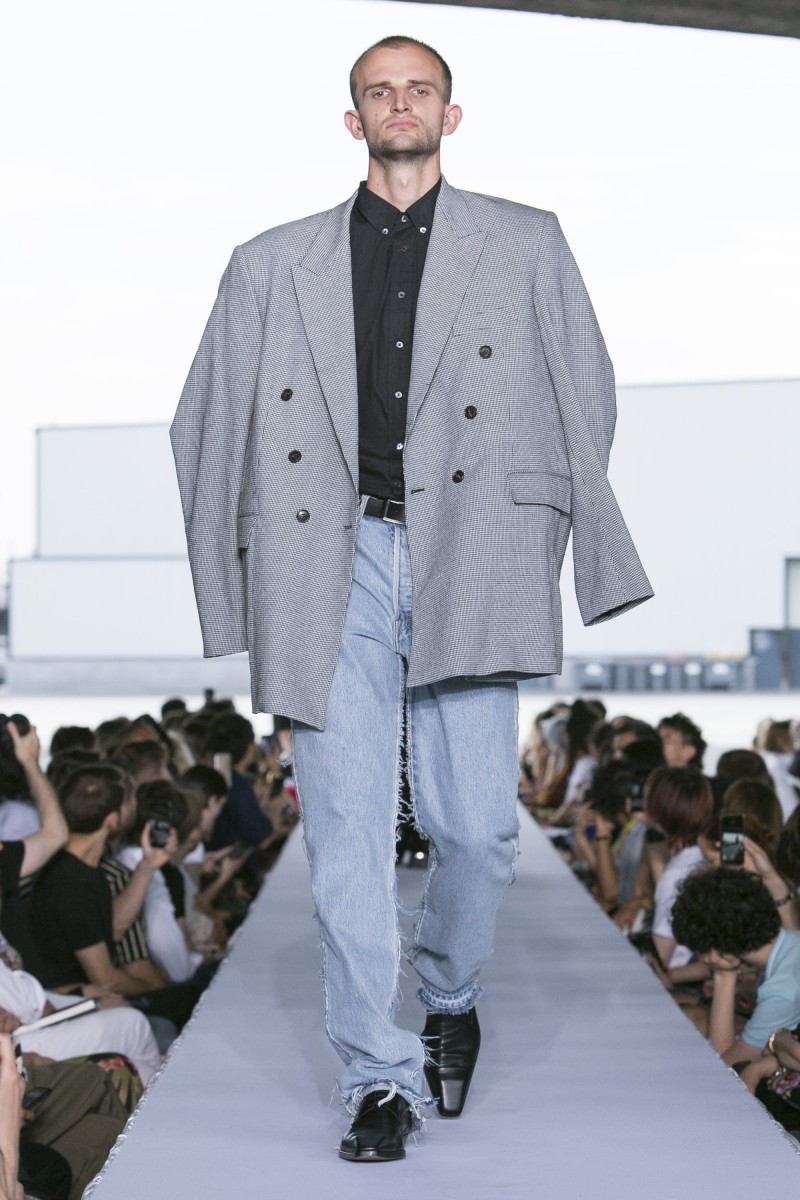
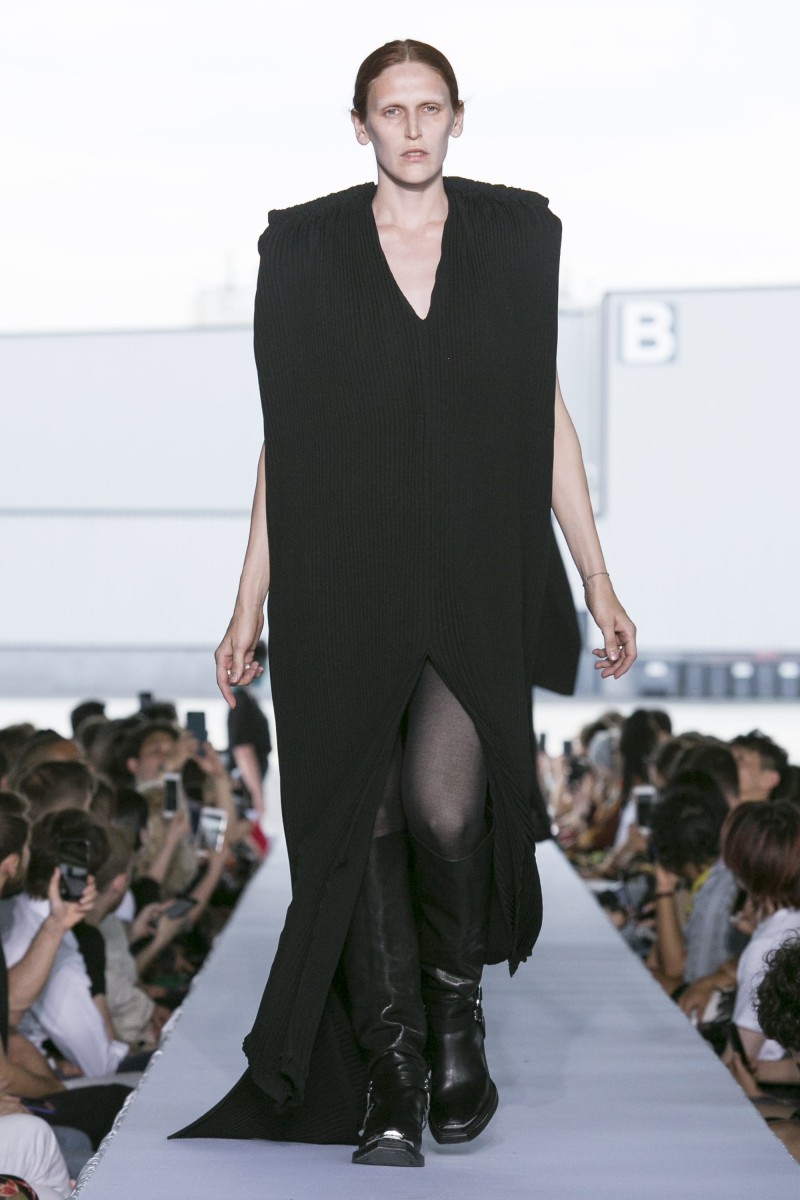
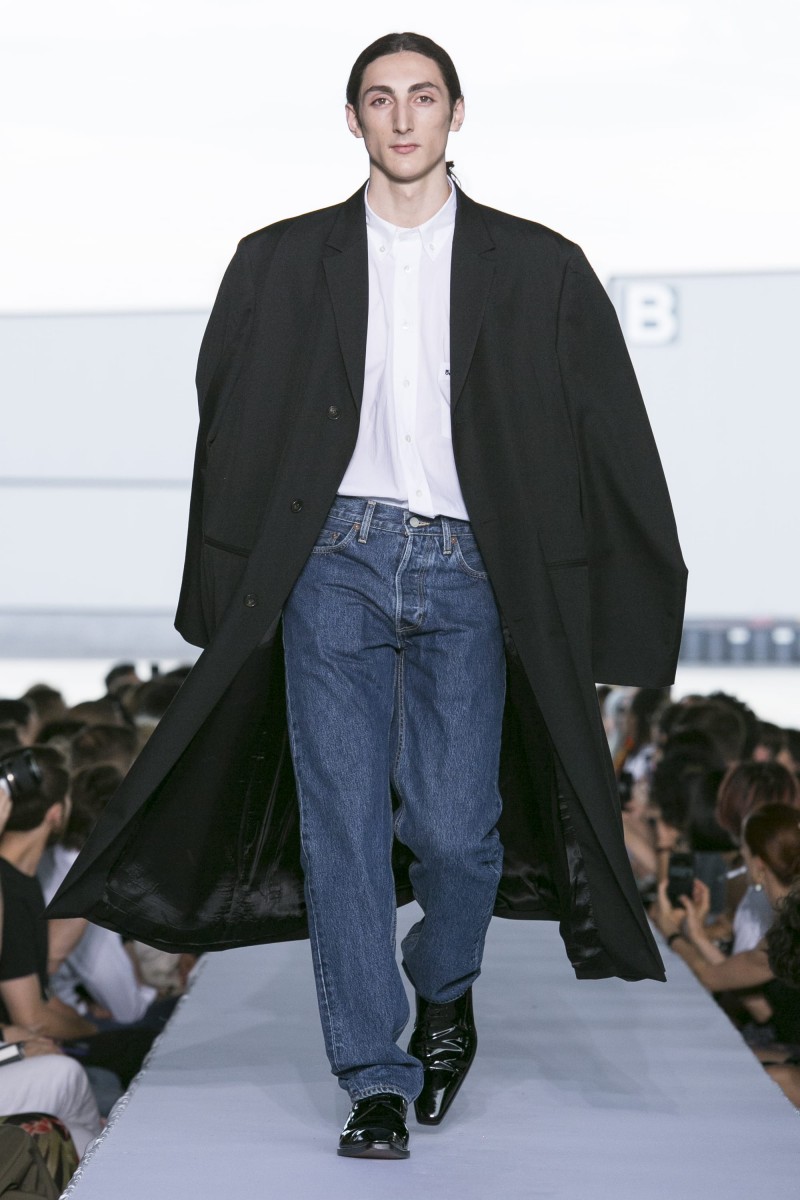
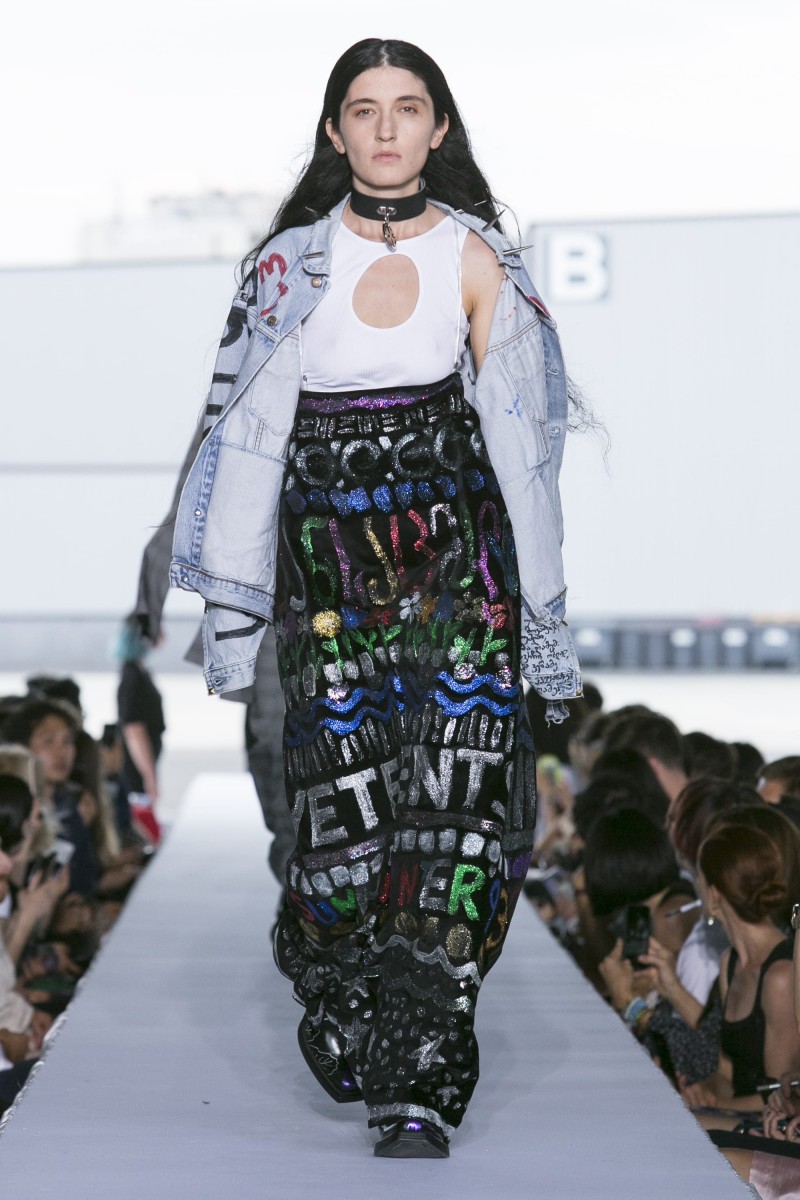
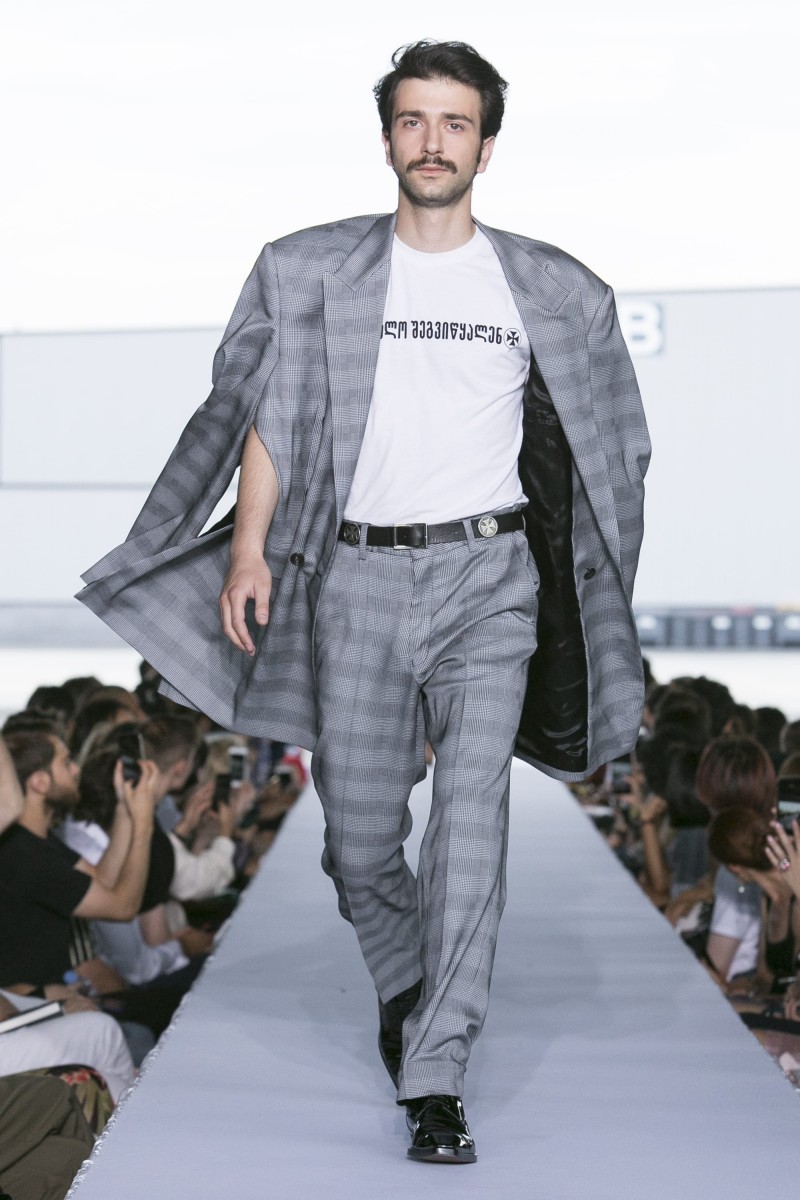
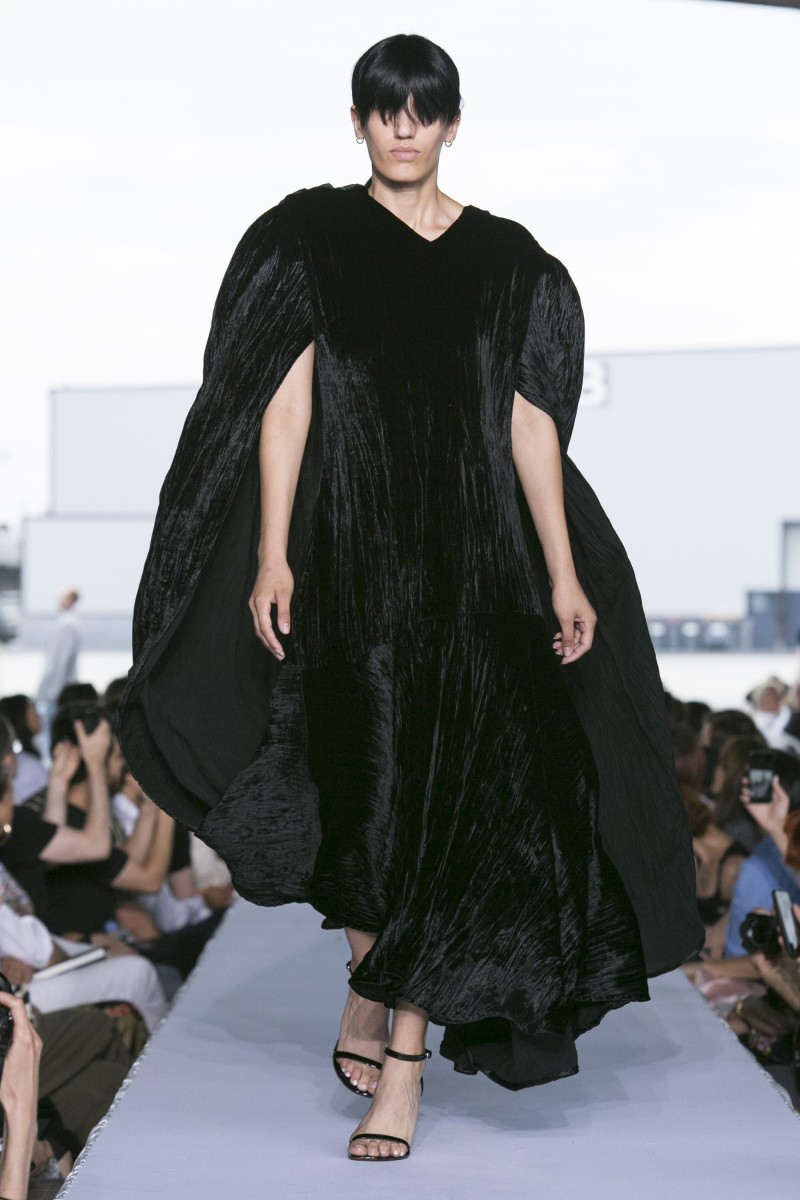
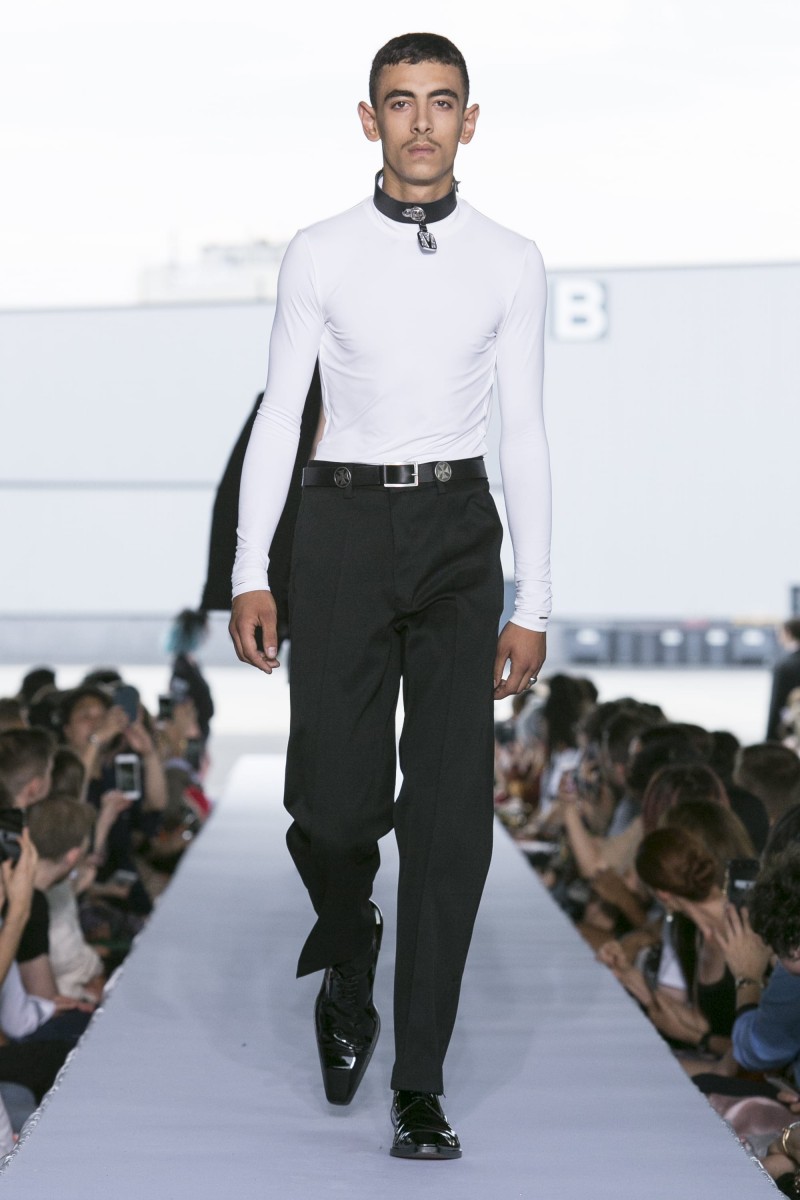
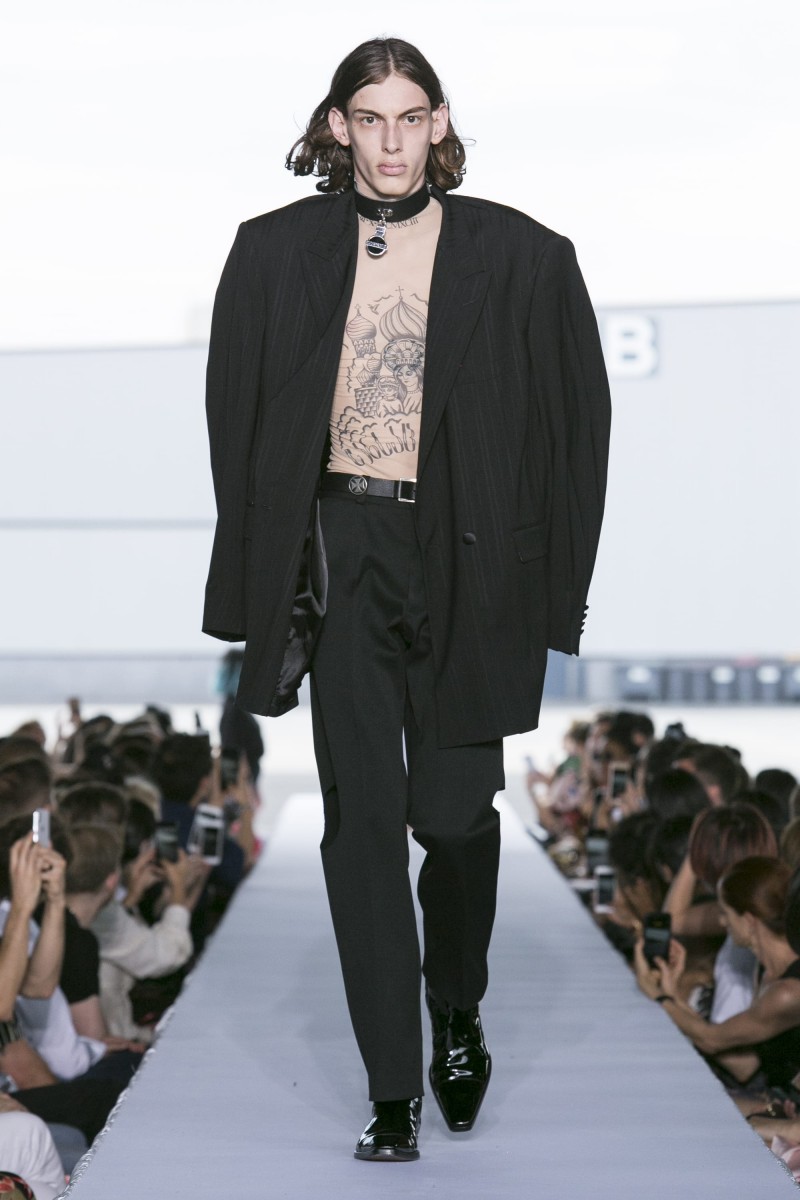
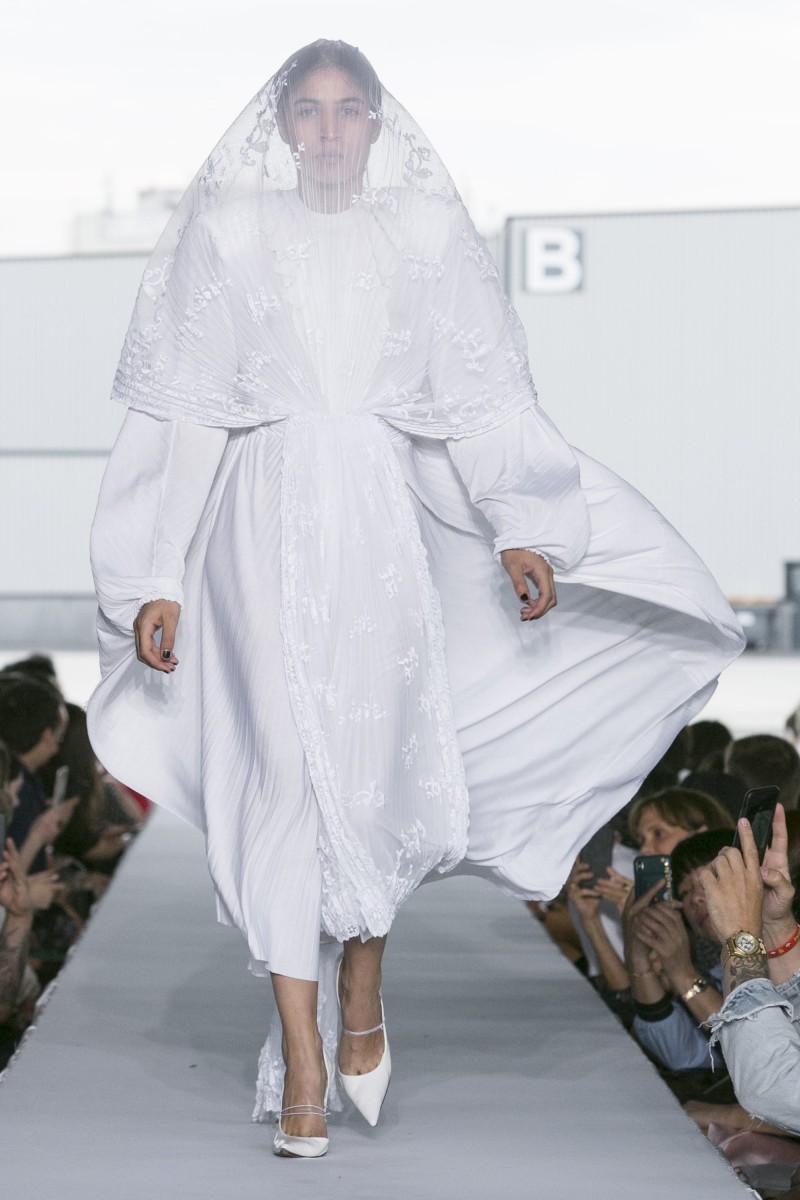
 Print
Print Email
Email